
Dear fellow Yidden,
I thought long and hard before starting this blog about a year and a half ago. Initially, I didn't want to do it. However, the choice was rather easy to make after all. Saving lives takes precedence over everything else. The Rabbi's didn't help; and so it always went because...
"Nobody Cared, Nobody Cried".
I wanted the Rabbi's and Gedolim to fulfill their duty and obligations. However, all my pleading fell on deaf ears. The victims cries went unheeded. Some contemplated suicide. And as days turned into months, months into years, years into decades - It became ever so evident and apparent that... - "Nobody Cared, Nobody Cried".
I implored on Rabbi's to intervene. I sent many victims to the Rabbi's who vowed they would help put an end to the abuse. But in the end the Rabbi's showed they worked for Satan and... - "Nobody Cared, Nobody Cried".
I had victims begging their Rabbi's and people they knew, to speak up on their behalf. And the script always repeated itself over and over again - the Rabbi's said they wanted to help - But it was all a big lie - and... "Nobody Cared, Nobody Cried".
And so the vicious cycle of violence and abuse continued unabated and unpunished. I begged the Rabbi's to speak out against these travesties. The victims nagged, urged, yelled, screamed, and cried to these Rabbi's all to no avail.
The Rabbi's couldn't care less and...
"Nobody Cared, Nobody Cried".
All the Rabbi's could manage was mustering up empty promises that kept yielding more broken hearts and causing further damage to survivors of abuse. It was crystal clear that the Rabbinical weasels intended to sweep this mess under the rug - and boy was it messy - and... "Nobody Cared, Nobody Cried".
It got to the point where many of the victims have now disowned their religion. They lost total respect and trust in Rabb's. All because... "Nobody Cared, Nobody Cried".
I shed many tears over this sad predicament. I implored upon almost anybody who I thought could help bring these child molester Rabbi's to justice. I sought and explored every imaginable solution to this disease. I begged the Rabbi's to jump in and help save these Jewish souls. But, as always...
"Nobody Cared, Nobody Cried"
The rabonim and gedolim were more worried about what chas vesholom people will think, and what society will do to them - if they ever found out about these evil pieces of drek who abused boys and girls; and those who enabled the abuse to flourish. And thats one of many reasons why...
"Nobody Cared, Nobody Cried"
And in the end - the true colors of these out of touch Rabonim prevailed. They showed how worthless they truly are. They conveyed to myself and the victims what all that Torah Knowledge does and doesn't do - What a big darn shame and disgrace - All Because... "Nobody Cared, Nobody Cried".
In closing - I wish all the Rabonim/Gedolim/Chamorim/Reshoim would have heeded our cries. I wish they would have stopped other people from getting hurt. In retrospect - I wish they would have cared. I wish they would have cried. After all was said and done... - "Nobody Cared, Nobody Cried"
Now, it's too late. The trust in Rabbi's has eroded. Their time to shine was there for the taking. They had their chances and opportunities. Now, they are as irrelevant as the dust on their borsalinos and hamburgs. Their time has come to be dismissed from their Rabbinical positions. These vultures need to step aside and hide in a pit just like Saddam Hussein did. They have stunk up the joint. They reek from evil. Time has slipped away. Go to your graves all you phonies. I guarantee I will not let up our fight. I will chase you and hunt you down - and expose you for the murderers and vile creatures that you all are. And once you're six-feet under, I'll call upon every victim and every soul you destroyed - to come and spit upon you in disgust. You singlehandedly gave new meaning to this poem by annie - "Nobody Cared, Nobody Cried".
Every Rabbi, Every Gadol, Every Jew - that hindered and interfered with the justice system and investigation - will be dealt with for all to see. Every Rabbi that ignored and was quiet - while victims were crying out for their help - will be handled appropriately - no matter how long it takes. Because you had your chances to intercede and end the slaughter - But in the end - it was quite obvious that "Nobody Cared, Nobody Cried".
EM
------------
 ------------------------------------------------------------------------------
------------------------------------------------------------------------------Nobody Cared, Nobody Cried
by annie
Just a little girl with hair of gold
Full of fun and laughter, or so I’m told
But her world was shattered time and again
And her heart was broken and couldn’t mend
Because nobody cared, and nobody cried
For the little girl with so much pain inside.
Nighttime stories with Uncle Ben
Like “Little Red Riding Hood,” but then…
The big, bad wolf he’d pretend to be
And ravish her body till she would bleed
And nobody cared, and nobody cried
There was nowhere to run, nowhere to hide.
Old Mister Brown, he knew her well
Knew it wouldn’t matter if she should tell
His tongue in places it shouldn’t have been
She felt so dirty, for she had sinned
But nobody cared, and nobody cried
And the little girl just crawled inside.
“Suck on this and I’ll give you a treat!”
Her dad had said on that lonely street
She did his bidding till he left one day
Used and abused then tossed away
He never cared, he never cried
For his little girl who just wanted to die.
A man named Marvin with her uncle Blake
And the little girl he decided to take
The terror filled her soul and heart
Till her mind and body split apart
But nobody cared, and nobody cried
As the little girl shriveled up inside.
Her step dad beckoned from the hall
He took her body and fondled and mauled
He told himself, “It won’t hurt much!
And look, she even likes my touch!”
And nobody cared, and nobody cried
For the little girl who was dying inside.
Then there was her uncle Ralph
Who kissed her hard upon the mouth
Caught by her mother who began to yell
“You’re just a slut, you’ll go to hell!”
She didn’t care, she didn’t cry
For her little girl that would rather die.
Others came and abused her still
Friends, neighbors, her grand-dad, Bill
The memories and tears she wrapped up tight
And safely tucked them out of sight
Because nobody cared, and nobody cried
For the little girl who was dying inside.
She knew heartache by day, terror by night
She couldn’t scream and she couldn’t fight
She hated herself so very much
And began to fear everyone’s touch
But nobody cared, and nobody cried
As the little girl just died inside.
by Annie























Rabbinical "Ban" on Hassidic Music Concerts
(IsraelNN.com) Hassidic music stars Avraham Fried and Yaakov Shwekey are to perform in Jerusalem before an audience of over 10,000 Thursday night - but leading hareidi-religious Rabbis Yosef Shalom Elyashiv, the Gerrer Rebbe and others say it's forbidden to participate or attend events of that nature.
Flashy posters all over Jerusalem and elsewhere advertise a high-powered Hassidic music concert scheduled for Thursday evening at Teddy Stadium. It features two of the genre's greatest stars, Fried and Shwekey, as well as guest appearances by Aharon Razel and the up-and-coming Elad Shaar. Called "L'Chaim in Jerusalem," the event commemorates the 40th anniversary of the reunification of Jerusalem, and will feature an extra-large orchestra.
A damper was placed on the event, however, in the form of a rabbinic ban appearing in the hareidi-religious press. The ban is signed by leading rabbis including Rabbi Yosef Shalom Elyashiv, the Gerrer and Bezler Rabbis, Rabbi Aharon Leib Shteinman, Rabbi Shmuel HaLevy Vozner, Rabbi Chaim Pinchas Sheinberg, and more. .
The Rabbincal statement reads: "We trembled at hearing about the terrible breach in our camp of 'music evenings' and 'concerts' in which musicians sing before men and women sitting together, Heaven forefend, and even not together. All Torah leaders have in the past clearly forbidden these events, even when men and women are separate."
The rabbis say the ban applies to men, women and children and of course the performers. Newspapers are not permitted to advertise these events, according to the ad, and musicians who sing "in front of men and women together" must not be invited to sing at other events.
A source close to one of the above rabbis told Arutz-7 he was unsure of the grounds for the ban. He opined that it could be because of the mixing of the genders outside the event, but added, "This is very puzzling, because why then is there a difference between performers - who are penalized only if they sing before a mixed crowd - and the general public, which is forbidden to attend under all circumstances?" Another source said that it was possibly the rock-and-roll atmosphere prevalent at events of this nature that might be the problem, though this was not mentioned in the ban.
One source said he believes one of the rabbis signed this ban several years ago, and that it was not presented to him again. Others expressed a lack of confidence in the entire system of "signed rabbinic decisions," in that it is not clear how the situation was presented to the rabbis. There have even been cases of rabbis who said their names were "signed" on various announcements without their permission.
"It is known that Rabbi Moshe Feinstein [the pre-eminent Torah authority in the U.S. in the 20th century - ed.] permitted events of this nature if the proceeds were for charity," a source close to one of the rabbis said, "as is the case in Thursday's concert, so I'm not sure how to understand this."
Producer Moshe Ben-Zimra told the NRG website in response: "Men and women will be totally separated at the event, including separate entrances, and everything is taking place under the supervision of great rabbis. I greatly respect the rabbis who signed the ban, but they were misled by their underlings whose purpose is simply to liquidate Hassidic music in Israel. The rabbis don't realize that this event is kosher and maintains the laws of modesty. Over 10,000 people have already bought tickets, and they can rely upon the Torah rabbis who support separate and modest events of this nature."
('derogatory speech, that is true')
(incest, sexual abuse, sexual assault, rabbinical sexual misconduct, sexual harassment)

Thou shalt not go up and down as a talebearer among thy people; neither shalt thou stand idly by the blood of thy neighbor" (Leviticus 19:16).
Letter to My Familyby annie
Dear family:Welcome to my little corner of the web. By now you may have all read each and every word printed on these pages. I hope you have...but more than read them, I hope you have really heard what I've said...taken it in, thought about it, applied to your own life what belongs to you, and gained some valuable insight from my experiences and disclosures.
I know that first of all you are angry because I have let the cat out of the bag. I have told family secrets and in your minds, they should be kept in the closet. That is not how I believe. Secrets don't do anyone any good. Secrets don't facilitate healing. Secrets only guarantee that the things done in secret will continue on through the generations. They guarantee help for no one, especially those keeping them.
I never have been one to keep secrets. I told people I was abused even while in my teens, perhaps even younger. I told my school counselor, I told a doctor, I told someone at church. Unfortunately back then people didn't know what to do about it so it was easier to just ignore it and hope it would go away. I didn't tell these people everything...only a little piece...perhaps to see what, if anything, they would do with it.
Then when I met my husband, I shared some of it with him because I had some real fears about getting married and having sex. Luckily, he knew how to help me through some of those fears and has stood by me as I've worked through other difficulties the sexual abuse and other abuses caused. He is so much of the reason I have made it this far.
As I encountered problems along the way, I also spoke with my pastor about some of it, but still we didn't know how to really work through it, and I would run (not go back or bring it up again) once I disclosed the sexual abuse, too. It was too scary for me and I had too much shame. I was sure others would find me repulsive when they found out. I am so glad I know better now...that I trusted someone with my past and let him help me through it.
So even though you may have thought all this was secret until ten years ago, you were wrong. Of course no one who reads these pages will know your identity except other family members unless you tell them. The other people who read these pages don't know me or who my family really is. So in some ways, your secrets are still secrets.
Now, what I want to say to you is this:
To my abusers that are still alive, and any other abusers I may not know of: I hope you will read this site and find out what abuse does to children. I hope you will let yourself begin to feel the pain inflicted on myself and others. I hope you will also get in touch with your own pain. I do believe that most people who abuse were themselves abused. I don't hate you. I don't want to see you punished. I want to see you helped. I want to see you find freedom and victory over the darkness and power of sexual abuse. I want you to care enough for your children and your children's children that you will stop if you are still abusing...and do that no matter what you have to do to stop it. I hope you will go to those you have wounded and seek their forgiveness, understanding that forgiveness is a process that takes time...and of course trust must be earned again. I hope you will see how much you betrayed those you abused, and how much you have taken from them.
To those who were abused and/or are being abused: I pray that you will find courage and strength in these pages. What happened to you should not have happened. It was not your fault, it is not normal, all men are not like that. You have nothing to be ashamed of and you do not have to keep the secrets any longer. Until you can end the secrecy and do what you can to stop the abuse, it will continue on through generations. Your children will be abused...their children will be abused...you will marry abusers, etc. It goes on and on. If you already have children, it is your obligation and responsibility to protect them. It is your responsibility to see that they are nurtured and cared for in a healthy way. It is your responsibility to see that they get the help and support needed if they have already been abused, and that they are protected from their abusers. And it is your responsibility to believe them and be on their side when they disclose abuse. Too many of us have been expected to take care of ourselves as children and have not had anyone stand up for us against our abusers. We've been blamed for the abuse and shamed into silence. Some have even been threatened. We must take the responsibility for the children God gives us to nurture them and protect them at all costs.
For too long I looked the other way. I felt helpless. Abuse and incest was expected in our family. We all talked about it, knew about it when it happened to another family member, but we never told anyone who could or would put a stop to it, never confronted the abusers...we just kept letting it happen. A family member would abuse, but the spouse wouldn't be told to supposedly protect her/him from being hurt, or some family members wouldn't be told because of what they might do to the abuser. There were always excuses that did nothing but let the abusers continue abusing the same person and then allowed them to abuse new ones. I can't do that anymore. It doesn't help anyone. When we know of abuse and do nothing, we then must share some of that responsibility with the abusers. We also bear some blame for the pain and destruction it brings to the victims. It's time to stop enabling those that hurt our children.
I want to say now to everyone in my family that has been abused since I have been an adult, I am sorry for my part. I'm sorry that I didn't speak up. I'm sorry that I didn't find some way to stop it and to help you. And for those that I did finally step in and try to help, I'm sorry I failed even in my weak attempts and didn't do more. I hope that if you come to the place of recognizing and having to deal with some of the after-effects of abuse in your life that you will forgive me and that I perhaps can be of some support to you in your healing process. I do promise you this...if you ever need me to be there for you, I will be there. I will believe you, I will support you, I will walk along side you no matter what.
If I can but save one person from going through what I've gone through, it is all worth it.
To those who accuse me of making up lies of abuse to get attention...There are a whole lot of things I'd rather do to get attention than trump up charges of being sexually abused. Is that something you would ever do? I had all the attention I needed, and positive attention, before I began dealing with my past. I had a successful job that I loved, I was involved in ministries I enjoyed, I was content as far as my public life went. Disclosing a past life filled with sexual abuse doesn't exactly bring a flock of people to your doorstep who are willing to listen to you and support you. The truth of the matter is that sexual abuse issues make a lot of people uncomfortable and more than likely they will distance themselves from the person who is struggling to resolve past issues. Look at what you all did. People don't want to face the ugliness of such a crime. They'd rather keep their heads in the sand if possible. This includes people who are abusers themselves, people who were abused but can't face it, the family members who for strange reasons choose to side with the abusers, and people who just plain don't want to be bothered with another's pain. When survivors begin dealing with their abuse, more often than not they lose their family of origin, just like I did. They also lose their friends that aren't willing to stand by them in their time of need. Sometimes they even lose their spouses who are unwilling to change abusive behaviors. Many times the friends and family can't handle it when the survivor gets healthier and begins to set boundaries or stops playing unhealthy, unproductive games in relationships. And besides all that, most survivors I know don't even want anyone to know because their shame is so deep. So this is a ugly lie that someone, including me, would do this to get attention. This is not the kind of attention any normal person would seek.
I do want to add however, that I was one of the lucky ones. I did have some wonderful people who were there for me through the whole process and still are. They are jewels in my life and some of them had to keep after me because I wanted to isolate because of the pain. Had they not pursued and kept in contact, I might not be here today. This was not expected at all by me. It took me by surprise that they were there and it showed me how much some people cared about me even though before I wouldn't have believed it.
To you that are upset about my poem, "Nobody Cared, Nobody Cried", and are threatening me....I'm surprised, hurt, and sad that you can read a poem that comes from the depths of my being, full of the pain of feeling alone, worthless, and uncared for, and not be touched by that pain. I would hope that you could put your own stuff aside for just a few moments, your fears of exposure, your guilt, your shame, whatever it is that drives you, and feel with that little girl and cry for her. It's sad that even now the words are proven true... You see that poem isn't about incidents of abuse. They were just events repeated over and over again that reinforced the feelings of being alone. The poem is about a little girl who felt like there was no one who cared. It's about a little girl who never saw a tear shed for her or with her. That little girl happens to be me and the feelings happen to be mine. To coin a family phrase, "Shame on you!" that you can't see beyond yourself to feel for another human being.
Annie
I welcome your responses and will even put them here.
--------------------------------------------------------------------------------
Family Responses
Response from annie's Mother
The other night as I was ministering in my gospel mission, I had an indian lady in her forties come in for the worship service. At the prayer request time she raised her hand and ask me to pray for her special needs. She said that her parents are both alcholics.And they make her life miserable.She said,"I believe in Jesus and I do not think he would want me to be around these people.I can't stand them.I told her it was her duty to minister to them.to tell them about the love of Jesus. And try everything in her power to bring them to the Lord. Then she said, I found out that I am adopted. I want to find my natural mother. These people who raised me are only my" adopted parents." I began to minister to her. The parents who loved you and chose you for their child. Supported you your whole life and still are. are the parents God wanted you with. Anyone can give birth. But it takes a mother to love and care and protect her child.It is the one who stays up at night rocking and singing to her child.The one who drys the tears.Ect. I tried to explain to her that maybe her mom was on drugs or an alcholic also.maybe a prostitute.Maybe someone who was mentally unable to care for a child. I told her to leave it alone.If God wants her to meet her birth mom he will let her mom start a search and she will find her. If this happens then you will know she wants you.Her reply was.I know God wants me with my birth mom.I am a Christian So he would want me to be with a Christian Mom. She has to be a christian.God would never "LET ME" be born to an unsaved woman. I am being abused by not knowing my real mom. We ended our talk in a few minutes.
But this got thoughts running through my mind. She is abused by not being able to know her real birth mom. When we mothers have children and do all we can for them to protect and love them.Then when they grow up the enemy puts it into their minds that they were abused.They did not get what they wanted from their parents. Money.New Cars .Ete.I also have an adopted girl. And Her birth Mom is just like my own child also.I love them both.I gave all my children great attention and my time and love.I never worked outside the home.Joyce used to tell me to go find a job.She did not want me home when she got here.I was a mom who believed my place was with my little ones. I never sent my daughter Joyce to church.I took her myself. I was probaly with her too much. But she was my life.
I want you who read this letter of responce. To know that I am a mother. Annie is My daughter. Her real name is Joyce. I loved and still do love her.I have never stopped loving her. I too am human and have feelngs.I have a heart.Yes,I spanked my child when she needed it. I would not let her run wild. Any Boy that touched my girl had to answer to me.I went with her on her dates.To make sure she was not raped or touched in a sexual way.I could not guard her twenty four hours a day but i sure tried.I raised her to be a Christian.When I hear or read these bad things she said happened to her.I can't believe it. She used to tell me everything.Why? Because I asked her.Some of the things she speaks of she had told me as a child. But the other things about my husband I did not know about; I always asked her,she always said,"No way Mother.He is not like that.I would have killed him.Even today when I think maybe he did. I want to dig him
up and drag him down the street. I would have beat the tar out of him then I would have turned him over to the courts.
Because I was shaken by all this and had a very ill man on my hands I found it all hard to cope with. I still can't sleep at night. I will never trust another man as long as I live. I have been hurt beyond repair. whether it is true or false. I do not know. But it has ruined me about ever getting married again. I want a man who is mine.Not my daughters. I ask,What about my healing? But there is none for me. My daughter legally changed her name.She got herself an adoped family. And that was the last I heard for 7 years. Someone is looking for their real birth mother . I laugh! I am a birth mother.I did not give my child up. She walked away from me. My heart is cold and grey.It is hardend like stone. I do not know what
to believe.
For all counselors who are reading this. Get your heart and head in the right place. You are destroying homes and familes. Is this why you all became counselors? I thought you were suppose to be healers of hearts and minds. I laugh at you all. I feel that through someone counseling my girl, caused our whole family to break apart. And my heart in broken. I cannot help or stop what my family member write or say. We are all wounded and bleeding. I ask "IS THERE NO END? NO WAY OUT! DIDI
Response from Uncle Ben
I guess that there is at least two kinds of ministers, those that try to help people, and those that try to hurt people. A minister that is trying to help people should be, and would be, very careful what he or she does, not to harm, or disgrace the people they are working with. They will use all means possible to help and not further harm them. A minister of good, cries when they have the slightest feeling that they may have hurt someone. There has been many many ministers that have given up their lives trying to help people, the greatest sacrifice of all. Does it take a rocket scientist to figure out what type of a minister it is that sets out to destroy an entire family?. What type of minister would go as far as using family members web pages which they had made for them to try and reach more people so they can further harm them? (By the way, the business page makes a direct link as to the identity of every one. OOPS)
You reference yourself as to being a minister, maybe it is time that you ask yourself as to which kind of minister you are, it sure isn't hard for us to figure out. Uncle Ben
Response from Aunt Billlie
I'll call you Joyce, As that was the name your Mother gave you. Backward my dead sisters name. It won the prize of prettiest name of the year. Your mother got lots of gifts for it. And it belonged to a very beautiful girl. When a person changes their name to joanne or what ever, It says I no longer want to be apart of this family again. And Joyce every thing is not sexual abuse. If you will allow me to say this with out offending you. Some of your friends, who were my friends too, used to tell me you were always after them, Boys I'm speaking of. That you were no angel. Part of growing up and becoming an adult is through experiences. Most children are curious, and search out, by trying out. Abuse comes in many forms. And what you Tried to do to our family is also a form of abuse. Every one was not an abuser. I realize you were sheltered. And maybe too much. But when a parent loves their child. They try to keep bad things from happening to them. You were very protected. By all of us. We were all so proud of you. Loved to hear you sing. Told every body what a gifted little girl you were. Then you took all the junk your mom and Minnie told you. And took it literally for truth and started your witch hunt. At the time, they were being funny. They did not know it would take root and grow into a monstrous lie . So some of it was your Moms fault. Sexual abuse, No. We were just normal people. No sexual abuse. No incest. And you would not have had some man to suggest this to you. you would not had to ask anyone if it happened. no details would have to be given by family. as you would know beyond any shadow of doubt. no one would have to tell you.
I have a family living with me. The father is now serving 7 years in prison for sexual abuse to his daughter. She is now 19. it happened when she was 12. She went to counceling. Still loves her father. And even went to counseling with him. She's a beautiful young lady. Has her life on track and leading a normal life. Doesn't try to belittle her dad. Instead tries to help him. Does not tell every one she meets. as she feels ,it's part of her past. and needs to be laid to rest. So they all can be a functional family. Instead of a cripple. As a christ filled person, you do not cause misery. you heal it. If you continually dwell on it. Then something is not right. No one hates you. Most feel sorry for you. That you would do this in order to get fame for your self and build a ministry on false dreams. AS you destroyed a family that once was very close. I've heard your siblings all talk, And you hurt all of them with this. And look at what it's done to your own health. So basically. Is it worth it. It doesn't matter about the rest of us. We all know the truth. But what you did and are still doing Is not right. You are still hurting innocent people. Well I hope this doesn't make you mad. we all still love you. But the closer we get to the end of time here. Wouldn't it be better to go out in truth. To make amends, instead of still reaching out to hurt. And yes I believe you had some hurts as a child. I believe you had broken dreams. But we all do. well I'm not writing to be mean. I just want you to step back and take a hard look at what you are doing. And ask your self, is ripping up peoples lives worth maybe losing your heavenly spot for.
Bring in the new year with a clean heart. New start. new hopes. and new dreams. There's not much time left. Some of the mark of the beast is already beginning. 666 on all the upc codes. the computer chips, already being put in our pets and even children. The cashless society. All are taking shape. So it's only a matter of time, to see just how good christians we will be, when asked to take the mark. Take care, love as ever Billie
Another Response from Saucy's(annie) Mother
I was Saucy's Mom. To me Saucy was the most beautiful child alive. The miracle was--that she was mine! Everyone, and I mean everyone loved Saucy. With her golden hair, blue eyes and skin fair and soft, lovely as a rose petal.
No, Saucy was not ugly nor was she fat. She was my perfect little girl. So full of laughter and song. And she seemed to have a memory a thousand miles long. She loved to climb to the cupboards top Jump and spin around like the world.
Oh how she filled our lives with pleasure and joy. People just wanted to hug her wherever we would go. Yes, she was our prize...I think the one who held out his chest the farthest was her Uncle Joe. But Saucy grew up to fast as all children do. Still in all, Saucy, as Rosemary called her, was a beautiful little girl to know.
So love yourself Saucy! Learn to be you. Then and now.
A BROKEN HEART. A NAME CHANGE.
A MOTHER'S LOVE ALL IN VAIN.
ALL THE WORK, ALL THE CARING JUST WASHED DOWN THE DRAIN.
THIS MOTHER'S HEART WILL NEVER STOP FEELING THE DARKNESS AND LONELINESS OF PAIN.
THIS MOTHER STOPPED LIVING NINE AND A HALF YEARS AGO.
WHEN THE LITTLE GIRL THAT SHE HAD RAISED AND LOVED SO VERY MUCH.
SAID, "YOU HAVE ALL ABUSED ME . NOW I MUST GO."
THE MOTHER WEPT AND CRIED BITTER TEARS THE DAY THE LETTER CAME.
CHUCKED FULL OF ACCUSATIONS & THINGS. SHE HAD NO MEMORY OF, BUT THE COUNSELOR HAD FILLED INTO HER MIND.
OH HE DID HIS JOB WELL.
IN DESTROYING A HOME. A FAMILY. A MOTHER.
THE TEARS HAVE NEVER STOPPED FLOWING. THE PAIN HAS NOT GONE AWAY.
NOW I AM OLD AND WILL SOON BE ON MY WAY.
WITH NEVER A SMILE NOR A HUG FROM THAT DAUGHTER I LOVED.
NEVER A DOOR SWINGING OPEN AND THE SOUND OF A SWEET VOICE SINGING OUT TO ME, SAYING, "MOTHER I AM HOME!"
OH I HAVE SEEN THAT PRECIOUS DAUGHTER A FEW TIMES HERE AND THERE.
BUT NEVER A SIGN THAT ABOUT ME SHE CARES.
SHE HAS GATHERED UNTO HERSELF A NEW FAMILY. NEW FRIENDS.
AND TIME MARCHES ON.
AND I DIE A LITTLE MORE EACH DAY.
I SOMEDAY WILL DIE AND GO TO MY GRAVE.
MAYBE SHE WILL COME THERE AND SHED A TEAR OR TWO.
MAYBE SHE WILL EVEN PLACE A ROSE.
BUT IT WILL BE TOO LATE.
WITH HER FINGERS SHE WILL NOT BE ABLE TO DRY MY TEARS.
THE WORDS SHE WILL SAY TO ME THEN,
THESE EARS WILL NOT HEAR.
THE WORDS WILL FALL UPON EMPTY SPACE.
I ALWAYS DREAMED OF HAVING A PERFECT FAMILY.
I TRIED OH SO HARD TO TEACH MY FAMILY TO LOVE EACH OTHER AND TO BE KIND.
TO NEVER CAUSE HURT TO ANYONE.
BUT A MOTHER CAN ONLY DO SO MUCH.
YES I GUARDED HER AND PROTECTED HER WITH EVERY WAY I COULD. SO DID MY MOTHER, MY BROTHERS AND SISTERS.
WE SOMETIMES OVER DID IT PERHAPS.
BUT WE NEVER WANTED HER TO BE HURT BY ANYONE.
BUT HURTS CAME, AS THEY DO TO EACH ONE OF US.
BUT TIME HAS CHANGED. SHE IS NO LONGER WITH OUR FAMILY.
AND ME? WELL I SIT AND CRY.
WHAT ELSE CAN I DO?
HER LETTER ABOVE HURTS US ALL.
SHE SAID THAT SHE WOULD POST OUR RESPONSE.
MAYBE MINE WILL HELP.
SOMEONE OUT THERE.
PLEASE HELP ME BEFORE ITS TOO LATE!
I WANT MY FAMILY WHOLE. TOGETHER LIKE IT USE TO BE. WITH THE LAUGHTER. WITH HER SINGING A SONG TO ME. WITH HER NAME CHANGED BACK LEGALLY
TO THE ONE GOD TOLD ME TO GIVE HER.
THAT NAME WAS HAND PICKED BY HIM. I WAS NOT EVEN A CHRISTIAN. BUT HE CAME TO ME AND GAVE ME THAT BEAUTIFUL NAME. ONE OF BEAUTY AND SONG.
SIGNED BY A WEEPING MOTHER.
P.S. THIS POEM LETTER IS NOT MEANT TO HURT OR OPEN UP OLD WOUNDS. IT IS ONLY A CRY FROM ME SITTING HERE IN MY WORLD OF LONELINESS. MOTHER
My comments:
For those that would read this and think someone planted memories in my mind, let me assure you, it isn't so. I am not some weak-willed, weak-minded person who can be given suggestions and believe them. And for the record, the whole reason I entered therapy was at the suggestion of my pastor who knew of my past abuse. I was struggling with a number of problems, including severe depression, and I no longer had the emotional energy to keep it all stuffed inside anymore. So he recommended someone he knew and trusted, and after unsuccessfully working through it by myself, I finally began seeing him and after a time told him of my past. It is very common for families to blame the therapist. It is a way of denying what happened and of escaping the responsibility of past actions.
Yes, I do keep at a distance, and this poem I think shows why. I have to, because when I became the most vulnerable, let my feelings out about my childhood and the wounds I received, I was further hurt and pushed away by unbelief, no support, and continued words inflicting more pain than I could endure. So the only way I can now survive is to protect my heart from further pain. I test the waters to see how much of 'me', the real me, a person can handle or wants in their life, and I act accordingly. Those I am closest to are those I can be totally honest with, those that can accept me as I am now and as I will be tomorrow...those that believe me and know me to be an honest person, and those that believe in me. Closeness is a two-way thing. You can't just accept parts of someone and reject other parts and be close. You can't be close to someone who you can't believe or who doesn't believe you. And you can't get very close to those that don't appreciate what a person is willing to give.
All I can say about this part of the above poem is that even after being rejected after disclosing family secrets, and being devastated, more so by the way I was treated after than from the initial abuses during childhood, I have reached out to try to re-establish some semblance of a relationship, and feel frustrated because it seems to never be enough. Instead of feeling like there is gratitude for the times I do get together, or for other little things I try to do, I am faced with criticism for what I don't do, or for it not being enough.
For those parents that may be reading these pages....what your children and adult children need is your support. They need you to listen to them, believe them, be there for them (giving them space to work through their feelings if they want or need it), admit your mistakes and wrong-doings openly and honestly without excuse, and simply be sorry and do what you can to right the wrongs. You can't go back and change the past. That is not expected and certainly impossible. Punishment is usually not desired if the wrongs were committed by family members or other loved ones. Those survivors I know that were abused by family, especially parents, only resort to wanting to see them punished when they continue to refuse to admit what they've done and continue abusing them in return through words and actions. Righting the wrongs is simply (at least in my case) acknowledging what happened, being repentant, and being there... even if it means being there during the anger stages. When someone deals with the past, it is like any other grieving process. There is denial, grief that often turns into depression, anger, acceptance, forgiveness. It all takes times. It is painful to have to go through these steps with someone you have wronged, and far too many are unwilling to go there. But the rewards of going there will be a true relationship that will be stronger than ever.
More responses from Mother:
I JUST HAD A FLASH BACK OF STRANGE HAPPENINGS IN OUR HOME AT 231 E BELMONT AVE. WHERE WE LIVED AFTER MY HUSBAND AND I MARRIED IN 1958. WE RENTED A VERY LARGE HOME AND MY FRIENDS AND MY HUSBANDS BROTHER MOVED IN WITH US TO SHARE EXPENSES AS IT WAS A LARGE HOME. IT WAS ALSO A STRANGE SPOOKY HOME.
AFTER WE HAD ALL MOVED IN, MY FRIENDS HUSBAND STARTED SEEING DEMONS. HE WOULD GET SO SCARED. HIS WIFE WOULD RUN INTO OUR ROOM AND GET ME UP TO GO PRAY THE DEMONS OUT AND TO CALM HER HUSBAND. THEN SOME THINGS STARTED GOING MISSING. THEN I STARTED HOLDING PRAYER REVIVAL MEETINGS IN OUR HOME AS I AM AN ORDAINED MINISTER. THERE WOULD BE ANYWHERE FROM 25-30 PEOPLE AT THESE MEETING ON THURSDAY NIGHTS. ONE NIGHT ONE OF THE MINISTERS TOLD ME SOMEONE WAS KNOCKING ON THE DOOR. I STARTED TO THE DOOR. I COULD SEE THE SHADOW OF A MAN STANDING ON THE PORCH DRESSED IN A TRENCH COAT. I OPENED THE DOOR, HE WAS GONE. I WENT BACK TO THE PRAYER ROOM. THE MINISTER SAID THE MAN HAD COME IN AND GONE UPSTAIRS. HE IS A DOCTOR. "IS SOMEONE ILL UPSTAIRS?. I SAID NO ONE IS UPSTAIRS. WE ALL RAN UP STAIRS TO SEE THE MAN. NO ONE WAS THERE. BUT ONE OF THE WINDOWS WAS OPEN. NO WAY HE COULD JUMP DOWN. IT WAS THREE FLOORS UP. SO WE PRAYED. WE ALL ANOINTED EACH ROOM AS WE PRAYED.
THEN AFTER, WHEN EVER I WOULD GO INTO TAKE A BATH. I WOULD HEAR A LITTLE GIRL TRYING TO OPEN THE DOOR AND SHE WAS CRYING, "MOMMIE HELP ME!" I WOULD OPEN THE DOOR BUT FOUND NO ONE. I WOULD GO FIND MY PRECIOUS DAUGHTER. "WHAT DID YOU WANT ME FOR? I WOULD ASK. SHE SAID. MOTHER I DIDN'T WANT YOU. IT WASN'T ME" THIS KEPT UP EVERY TIME I WAS IN THE REST ROOM. THEN ONE NIGHT I HEARD HER AGAIN SCREAMING "MOMMIE HELP ME! I LOOKED OUT. NO ONE. I CALLED DOWN TO MY DAUGHTER ARE YOU all right? YES MOTHER. SHE WOULD SAY. I ASK MY HUSBAND IS SHE REALLY OK. HE SAID "YES. SHE IS HERE WITH ME" AFTERWARDS I ASK MY DAUGHTER. TELL ME THE TRUTH HONEY, DID YOUR DADDY TRY TO HURT YOU OR PULL YOUR PANTIES DOWN AND TOUCH YOU IN YOUR PRIVATE PLACES?" SHE GIGGLED AND SAID, "MOTHER, HE IS NOT LIKE THAT.
I BECAME VERY WORRIED, I KNEW THEN THAT SOMETHING BAD HAD HAPPENED TO A LITTLE GIRL IN THIS HOUSE. BUT WHAT? WHERE WAS HER MOMMIE. THIS LITTLE GIRL ALWAYS CALLED HER MOTHER MOMMIE. NOT MOTHER LIKE MY CHILD CALLED ME. SO I SAID, I SET YOU FREE MY CHILD IN JESUS NAME BUT IT CONTINUED SO ONE DAY I SAID PERHAPS WHAT I SHOULD NOT SAY. "ENTER INTO MY BODY MY CHILD. YOU WILL BE SAFE. FROM THEN ON WHEN I WOULD SLEEP, SOMETIMES IT WAS LIKE THE HEAVY WEIGHT OF A MAN WOULD CLIMB ON TOP OF ME AND TRY TO KILL ME. I HAD A HARD TIME BREATHING. I WOULD STRUGGLE TO WAKE UP. IF I DID THEN I WOULD BE FREE. THEN ONE MORNING IT HAPPENED AGAIN. I TRIED TO SCREAM FOR MY BROTHER IN-LAW TO COME HELP ME BUT IT CAME OUT IN ANOTHER
LANGUAGE. I MANAGED TO CRY OUT "JESUS! "AND IT LEFT ME. NOW WHAT I AM WONDERING ABOUT IS," COULD IT BE THAT PERHAPS THE SPIRIT OF THAT PRECIOUS LITTLE GIRL ABOUT THE SAME AGE AS MY DAUGHTER ENTERED INTO MY DAUGHTERS BODY. SO SHE WOULD BE LOVED AND CARED FOR BY ME AND MY HUSBAND? COULD IT BE THAT SHE COMPLETELY TOOK OVER MY DAUGHTERS BODY AS SHE BECAME A TEENAGER AND EVEN MORE AFTER SHE REACHED ADULT HOOD. IS THIS WHY MY DAUGHTER CHANGED AND IS REMEMBERING ALL THE RAPE, MOLESTATION'S, ECT.?. AS A MINISTER I HATE TO THINK THAT BUT IT IS POSSIBLE I KNOW. WAS THAT CHILD'S NAME ANNIE? I WISH I KNEW HOW TO CHECK THIS OUT. JUST WHO LIVED IN THAT HOUSE BEFORE US? WHAT ALL HAPPENED THERE? AFTER WE LEFT, ONE OTHER FAMILY TRIED TO LIVE THERE BUT IT DID NOT WORK OUT EITHER. THAT HOUSE THEN WAS TURNED INTO A HAUNTED HOUSE AND WAS LISTED AS SUCH ON THE HOUSE UNTIL IT WAS TORN DOWN. "FOOD FOR THOUGHT." BEFORE I BECAME A CHRISTIAN I WAS A FORTUNE TELLER AND WAS PRACTICING HYPNOSIS.
I WAS SPEAKING TO THE DEAD SPIRITS ECT... SO EVEN IF I AM A MINISTER AND WE ARE TAUGHT AGAINST THESE THINGS. EVEN SO I CANNOT DENY THAT THESE THINGS CAN HAPPEN. IT IS NOT DEMONS. A DEMON IS A FALLEN ANGEL. A SPIRIT OF A DEAD PERSON IS A SOUL. SOMETIMES AWFUL THINGS HAPPEN TO PEOPLE WHILE THEY ARE ALIVE ON EARTH AND THE ANSWERS ARE NEVER FOUND OUT UNTIL ONE ENTERS ANOTHER HUMAN BODY AND SEARCHES TO REVEAL THE ANSWER. IT CANNOT REST SO TO SPEAK UNTIL IT FINDS AND REVEALS THE TRUTH TO SOMEONE AND THEN IT CAN REST IF THAT PERSON FREES IT. I KNOW THIS IS TRUE. I LIVED A LIFE BEFORE MY SALVATION WHERE I DEALT WITH THESE THINGS. IT WAS VERY SCARY AT TIMES AND MANY THINGS HAPPENED TO ME. WHEN I RECEIVED JESUS INTO MY HEART I TURNED MY BACK ON THE OTHER THINGS. THERE IS THIS NATURAL WORLD BUT THERE IS A SPIRIT WORLD ALSO. DIDI
From Saucy's Son
Should Saucy Forgive and Forget?
I thought that it might be nice to hear an insider's (outside) perspective. As neither the abuser nor the abused, I have a different perspective that is not tainted with pain or self-preservation. Yes, I'm Saucy's Son, so I have a lot of the inside information, and if you want, you can believe that I am biased. Maybe in some ways I am biased, but for the most part I believe that I am not. I have, countless times, had to ask myself whether or not I believed that my mom was doing the right thing or not. In some cases, we disagreed in part, but overall, I have chosen to give her my support. These are my reasons.
1. I have seen the way my family deals with abuse. At one point in time, I was aware of a particular family member being abused by someone who was living in their house. According to family gossip, he was sexually abusing her, and still allowed to live there. It seems that everyone knew, but nobody was doing anything. At the time, I was twelve years old, so I guess that I figured that the adults would do something, but they didn't???
Now, this part is hearsay from my mom--the prior wasn't--according to my mom, family members would sit around and say, "Oh, the poor _abuser_, you know, he's a man, he just can't control himself. You know men, everything is controlled by their you-know-what." (My thoughts on this as an adult--"Yeah right, and ten year olds can be so seductive to grown men...As a man, this makes me sick!!! To think that the men in my family are held to such low standards)
2. My family has very redneck roots. With that is a "blood is thicker than water" mentality that can be a strength, but it can also be a weakness. When "What happens in the family stays in the family," becomes a philosophy even when someone is being abused, then it is only a weakness. "Blood is thicker than water," is only good when it means that if your niece is being abused--even if she lives in another state, that you go to protect her, not protect the family member that is doing the abusing. So, while I respect my family's philosophy "Blood is thicker than water," I feel that their follow through of the philosophy is misdirected.
The other aspect that I must disagree with the philosophy is that I have often seen how other family members have literally TOLD my mom to leave the dirty laundry in the dirty laundry basket (to keep things hidden), and not to be spreading this stuff to people other than family members. And the philosophy to "forgive and FORGET." This brings me to my next point.
3. My mom has constantly been bombarded by people telling her to keep her mouth shut, to "forgive and FORGET," and they have even tried to quote "Forgive and Forget" as being something from the BIBLE. Now, I'm going to school to be a Pastor, and I would like it if someone would please show me where the verse is. Every single verse that I know of in the Bible about forgiveness has to do with the person repenting first.
Think about it. When we pray to God, we say "Forgive us our sins..." In essence, we're repenting. When the people asked Peter in ACTS, "What must we do to be saved," Peter told the to "Repent." When Jesus commanded how much to forgive your brother when he sins against you, he said this:
"If your brother sins, rebuke him, and if he repents, forgive him. If he sins against you seven times in a day, and seven times comes back to you and says, "I repent," forgive him." (Luke 17:3-4, NIV)
Another Teaching in Matthew 18:15-20 states:
[1]If your brother sins against you, go and show him his fault, just between the two of you. If he listens to you, you will have won your brother over. But if he will not listen, [2]take one or two others along, so that 'every matter may be established by the testimony of two or three witnesses.' If he refuses to listen to them, tell it to the [whole] church; and if he refuses to listen even to the church, treat him as you would a pagan or a tax collector.
So, those of you that want to spout what a good Christian does--READ THE BIBLE--
If my mom had done the very thing just commanded, all these family affairs would have been dragged before an entire church, to be judged by an elder board, and if those in the family that were abusers didn't repent before the whole church, they would then be treated like pagans and tax collectors. So, I think my mom was doing the Christianly thing, though if anything, she's letting people off a little too easily--at least scripturally speaking.
Point being--My mom has done a pretty good job at showing love to the family, even to those that did abuse her. I know that one of her highlights over the last eleven years was that her step-father was honestly trying to meet with her and confess his sins and finally be forgiven for what he had done so long before. This may upset those of you that want to live in denial of any abuse, but it's the truth. My Grandfather, her step-dad was a man I loved dearly. I wish that I could still go out bowling with him. Just because he did some things wrong in his past, does not make him any more evil than the rest of us. Every man and every woman has the potential to abuse the very ones they love the most and neither you nor me are any exception. Our addictions, most often, hurt the ones we love most whether that be our spouses, our children, or our closest friends--those are the ones that we have the power to hurt, and those are the ones we often DO hurt. When we are addicted to alcohol, lust, pornography, or sexuality, we hurt those we love the most, most, and some of us even abuse those closest to us because of our addictions.
This has happened in this family time and time again, but instead of confronting each other and dealing with it (which I admit is hard), we have all too often tried to pretend that it has never happened. While "forgiving and forgetting," might help you get along, it is not a productive philosophy for relationships. Some people who were, say, Holocaust survivors, will never have the opportunity to reconcile with their former Nazi abusers, and in this case, they must "forgive" in a sense--or rather they must give the "vengeance" over to God, who declared, "Vengeance is mine saith the Lord..." But when you are living side by side with someone, someone who is your brother and not an enemy, for true forgiveness to take place it is a two way street. The offender must repent, and the offended must then forgive in order for reconciliation to take place. This is what I often call the difference between forgiveness and reconciliation. Whether the offenders think so or not, my mom has forgiven them--in this sense, but in order for a healthy relationship to occur, there must be reconciliation, which requires both repentance and forgiveness. Without these two things, the offense will always hang as an invisible wall, separating people from each other. Kevin
------------------------------------------------------------------------------
Characteristics Observed in Male Survivo
by Ken Singer, LCSW
Denial of Vulnerability
Difficulty recognizing that what happened was sexual abuse. High need for control in interactions with others. May appear stubborn and rigid for control in interactions with others and frequently engage in power struggles, or seem passive, codependent and conforming. Both are protection from feelings of vulnerability.
Confusion Regarding Sexual Orientation
Orientation is exhibited in many ways. Some men claim heterosexuality but are sexual with other men. Some homosexual men question their orientation and wonder how they might be different had they not been abused. Other men may not engage in any sexual behaviors with males or females and are unable to determine their sexual orientation.
Confusion of Emotional Needs With Sex
Needs for nurturance may be identified as sexual. Many needs may have been met through the sexual abuse and sex continues to be viewed as the only way to be cared for. Real relationships with other men and women are often seen as threatening and sexual behavior may actually be one of the few ways to relate superficially and still have some needs met. Societal norms encourage men to equate sexual prowess with personal value and discourage direct expression of emotional needs. Some men become "Don Juans" or give the impression they are "superstuds" as a way of proving to themselves and the world that they are not gay or weak because of their victimization histories.
Gender Shame
Confusion and anxiety regarding masculine identity. Extremely uncomfortable around other men. Does not like to be touched by men and often avoids situations where he may be seen unclothed. Because he does not feel part of the group, he is often isolated with few male friends. Shame is especially powerful regarding feelings about masculinity. "Real men" don't get abused, they can protect themselves. Internalized male models are shaming or nonexistent. May exhibit more feminine characteristics as an attempt to separate from negative masculine image or to avoid identifying with the male abuser.
Multiple Compulsive Behaviors
Sex, food, chemicals and work are examples of common compulsive behaviors used to satisfy an internal drive to continually push oneself to avoid feeling pain and to meet dependency needs but is not productive or helpful.
Physical and Emotional Symptoms
Hypertension and frequent chest pains. Recurring dreams or nightmares of being chased or attacked, choked or stabbed. Difficulty urinating in public restrooms. Depression and anxiety.
Pattern of Victimizing Self or Others
Most victims do not become offenders. Many dysfunctional behaviors may be seen as an attempt to feel more powerful, punish oneself or numb the unwanted feelings connected with the abuse. This may involve passive-aggressive behaviors or subtle put-downs. Some men, act out by exposing, obscene phone calling or voyeuristic activities. Anger toward self can involve suicide attempts or putting oneself in a high risk situations which could lead to injury or death without actually attempting suicide. Victim may react to a current situation as if it were similar to the childhood abuse experience. Victim feels powerless and cannot see the current situation for what it is. Coping mechanisms mimic survival means used during childhood. May actually become involved in abusive relationships as an adult that are in many ways similar to the childhood sexual abuse experience.
Boundary Transparency
Unrealistic fear that others can see their failures and vulnerability. They fear they can do nothing to protect themselves. This inability to protect self and feeling unsafe can result in difficulty establishing even minimal trust. Other reactions include anxiety, rage and withdrawal. May have a history of boundary intrusions other than sexual abuse, especially physical and emotional abuse.
Chaotic Relationships
Many difficulties around intimacy, autonomy (self-sufficiency) and commitment to a relationship. Extreme and intense swings in needs for closeness and distance with others. The need to be cared for and have dependency needs met is in conflict with fear of vulnerability and re-victimization. This behavior repeats the victim-perpetrator experience with the partner when that person alternately becomes a perpetrator and a protector.
Poorly Defined Sense of Self
Self protection has resulted in submersion of self with little internal locus of control. Behaviors are similar to codependency. Importance placed on attempts to avoid feelings of confusion and vulnerability.
Myths About Male Sexual Abuse
by conference
Adapted from a presentation at the 5th International Conference on Incest and Related Problems, Biel, Switzerland, August 14, 1991.
Myth #1 - Boys and men can't be victims.
This myth, instilled through masculine gender socialization and sometimes referred to as the "macho image," declares that males, even young boys, are not supposed to be victims or even vulnerable. We learn very early that males should be able to protect themselves. In truth, boys are children - weaker and more vulnerable than their perpetrators - who cannot really fight back. Why? The perpetrator has greater size, strength, and knowledge. This power is exercised from a position of authority, using resources such as money or other bribes, or outright threats - whatever advantage can be taken to use a child for sexual purposes.
Myth #2 - Most sexual abuse of boys is perpetrated by homosexual males.
Pedophiles who molest boys are not expressing a homosexual orientation any more than pedophiles who molest girls are practicing heterosexual behaviors. While many child molesters have gender and/or age preferences, of those who seek out boys, the vast majority are not homosexual. They are pedophiles.
Myth #3 - If a boy experiences sexual arousal or orgasm from abuse, this means he was a willing participant or enjoyed it.
In reality, males can respond physically to stimulation (get an erection) even in traumatic or painful sexual situations. Therapists who work with sexual offenders know that one way a perpetrator can maintain secrecy is to label the child's sexual response as an indication of his willingness to participate. "You liked it, you wanted it," they'll say. Many survivors feel guilt and shame because they experienced physical arousal while being abused. Physical (and visual or auditory) stimulation is likely to happen in a sexual situation. It does not mean that the child wanted the experience or understood what it meant at the time.
Myth #4 - Boys are less traumatized by the abuse experience than girls.
While some studies have found males to be less negatively affected, more studies show that long term effects are quite damaging for either sex. Males may be more damaged by society's refusal or reluctance to accept their victimization, and by their resultant belief that they must "tough it out" in silence.
Myth #5 - Boys abused by males are or will become homosexual.
While there are different theories about how the sexual orientation develops, experts in the human sexuality field do not believe that premature sexual experiences play a significant role in late adolescent or adult sexual orientation. It is unlikely that someone can make another person a homosexual or heterosexual. Sexual orientation is a complex issue and there is no single answer or theory that explains why someone identifies himself as homosexual, heterosexual or bi-sexual. Whether perpetrated by older males or females, boys' or girls' premature sexual experiences are damaging in many ways, including confusion about one's sexual identity and orientation.
Many boys who have been abused by males erroneously believe that something about them sexually attracts males, and that this may mean they are homosexual or effeminate. Again, not true. Pedophiles who are attracted to boys will admit that the lack of body hair and adult sexual features turns them on. The pedophile's inability to develop and maintain a healthy adult sexual relationship is the problem - not the physical features of a sexually immature boy.
Myth #6 - The "Vampire Syndrome"—that is, boys who are sexually abused, like the victims of Count Dracula, go on to "bite" or sexually abuse others.
This myth is especially dangerous because it can create a terrible stigma for the child, that he is destined to become an offender. Boys might be treated as potential perpetrators rather than victims who need help. While it is true that most perpetrators have histories of sexual abuse, it is NOT true that most victims go on to become perpetrators. Research by Jane Gilgun, Judith Becker and John Hunter found a primary difference between perpetrators who were sexually abused and sexually abused males who never perpetrated: non-perpetrators told about the abuse, and were believed and supported by significant people in their lives. Again, the majority of victims do not go on to become adolescent or adult perpetrators; and those who do perpetrate in adolescence usually don't perpetrate as adults if they get help when they are young.
Myth #7 - If the perpetrator is female, the boy or adolescent should consider himself fortunate to have been initiated into heterosexual activity.
In reality, premature or coerced sex, whether by a mother, aunt, older sister, baby-sitter or other female in a position of power over a boy, causes confusion at best, and rage, depression or other problems in more negative circumstances. To be used as a sexual object by a more powerful person, male or female, is always abusive and often damaging.
Believing these myths is dangerous and damaging.
So long as society believes these myths, and teaches them to children from their earliest years, sexually abused males will be unlikely to get the recognition and help they need.
So long as society believes these myths, sexually abused males will be more likely join the minority of survivors who perpetuate this suffering by abusing others.
So long as boys or men who have been sexually abused believe these myths, they will feel ashamed and angry.
And so long as sexually abused males believe these myths they reinforce the power of another devastating myth that all abused children struggle with: that it was their fault. It is never the fault of the child in a sexual situation - though perpetrators can be quite skilled at getting their victims to believe these myths and take on responsibility that is always and only their own.
For any male who has been sexually abused, becoming free of these myths is an essential part of the recovery process.
Stages of Growth for Male Survivors
by Karen Lison, MA
- I cannot manage my pain alone. I must seek help
- I acknowledge that something terrible happened. I know it is not my imagination; I was a victim of child sexual assault.
- I begin to recognize my feelings. There may be sadness, anger, fear, guilt, and shame. I allow myself to experience them all.
- I discuss the abuse thoroughly with my therapist. I completely re-experience and begin to deal with feelings appropriate for each incident of abuse that I can recall. I share feelings of shame with my survivors group.
- I begin to realize that I was probably acting appropriately at the time the abuse occurred. (That is, my reactions were appropriate; the abuse was not!)
- If there was a part of the molestation that was pleasurable to me, I am coming to terms with the fact of that pleasure and I am dealing with the guilt surrounding it.
- I perceive the connection between my molestation and my current behavioral patterns and relationships. I am beginning to develop some control over that connection.
- I recognize that I have a choice as to whether or not I confront my perpetrators.
- I am beginning to understand what I desire from relationships as I learn to trust my perceptions.
- I am able to enjoy intimacy.
- I develop a sense of self and my self-esteem has increased.
- My resistance to talking about the abuse (although not necessarily the details of it) has diminished.
- I realized that I have a choice as to whether or not I forgive my perpetrators. I have forgiven myself.
- I am in touch with past the anger, that detached from yet so that it is not a constant part of my feelings and a negative influence on my other feelings, my functioning, and my relationships with others. I no longer live in the past. I'm living the present and welcome the future with all its fears to, imperfections, and unpredictabilities.
Through the Pain
by Kevin K. Nelson
There’s no denying it…life is filled with pain. Some of us have had so much pain that we are overwhelmed by it. The thought of trying to work through the pain, to face the realities of what has happened, may make us feel like shutting down and giving up. However, there is hope. There is a way to work through pain and to come out the other side healthier, stronger, and—perhaps—even able to help others through their own pain, but…you have to face it.
When faced with pain, at first it seems easier to ignore it, but when that doesn’t work—when it looms over our head like an ominous shadow—our first instinct can be to try to run away from it and hide. Some people even try moving to another state just in order to escape their pain. However, no matter where we run to, our pain follows us. Things that have happened to us in our past affect how we live our lives, how we develop friendships, how, or whether or not, we trust people, and even how we relate with our spouse. There is no escaping pain no matter how hard we try.
Unfortunately, since we can’t escape pain, our failed attempts may leave us feeling hopeless. We don’t see a way out of our pain, and eventually, we just want to give up, because that feels like the only option that we haven’t tried. We may even contemplate suicide as a way to escape the reality of our seemingly destroyed lives. So, it is here, at these moments, where pain will either make us or break us. If we continue to try to run away from the pain, or give up even trying, then it will continue to haunt us and leave us in hopelessness. However, if we face our pain…if we can come to accept the past for what it is—the past—then there is still hope for tomorrow.
When I lost an engagement that I had shortly after I graduated from High School, I never got over the pain of that loss. In fact, one of the things that irked me the most was when people would tell me to “just get over it.” For awhile I did try to “get over” her by being angry with her for breaking her promise to me, but that got me nowhere except into more pain. There was no escaping it. So, finally, I was forced to face the reality: The woman that I lost had been an important part of my life, and my relationship with her has forever shaped my life into something different than what it would have been had I never met her. There is no “getting over” that. There is no changing my life back to the way it was before I met her. I loved her as much as any man can love a woman, and I lost her…the loss and the pain are now both a part of who I am. However, by accepting both of these things…by accepting how they have shaped my life…it no longer seems overwhelming. It is a part of me, but it is not all of me. The dreams that we had of children and grandchildren will never come to fruition…but now I have new dreams. I have faced the reality of my past, accepted it, and now look to a new future.
Looking to the future is not pretending that the past never happened; it is accepting the past for what it is…a part of us, a part that we cannot change, and a part that has affected every aspect of our lives. We must also remember, though, that our past is not everything. Your past has helped to shape you, but now you have a choice. You can choose to let your past rule your life, or choose to let God mold your life into something beautiful. If you are willing, God can use the pain from your life—not only to strengthen you—but also to give you the opportunity to help others through their own pain.
Common Recovery Questions
by annie
There are a number of questions that are repeatedly asked by survivors and families of survivors and I would like to take some time to address some of those here. I will occasionally add more as they come to mind, or as you ask them.
Why must I go back and rehash the past?
My first questions back to this are,
- Is the past haunting you?
- Do you at times have unwanted scenes flash before you, or visit your dreams at night?
- Are you afraid of certain people in your life?
- Do you have a satisfying relationship with your spouse, children, parents, siblings, and have friends as well?
- Are you comfortable with and enjoy your sexuality?"
These are just a few questions you may want to think about if you are in the decision process about entering or not entering therapy or a support group. If you answered yes to the first three and no to the last two, then you have before you a major reason to take a look at your past, with help, and face whatever is there.
Some people believe erroneously that we get some pleasure out of rehashing the past and bringing up old issues that we should just keep buried. Others believe bringing it up only causes more pain and heartache. So what do we do?
Many of us who were abused in childhood live in what we call 'denial'. That means that we either don't remember what happened on a conscious level, or we remember but believe it was no big deal, that it was 'only me', or that it happened so long ago it makes no difference now. But denial is deadly. Denial is what allows others, and even our own children to also become victims, often by the same perpetrators. Denial is what allows us to 'know' something may be going on, but we never check it out. Or it causes us to ignore the cries of other victims or even to lash out at them, calling them liars, troublemakers, or blaming the abuse on them. Denial keeps the cycle of abuse going. Denial keeps us from really seeing the damage abuse causes in our own lives and in the lives of others.
I was one of those who didn't see the damage in my life, although I knew I had been repeatedly abused and raped. Some others saw it, but not me. I knew I had problems, but didn't understand why. Once I saw the correlation between sexual abuse and my symptoms, the journey toward healing began. The denial didn't just disappear. I still had much work to do to stop minimizing what happened to me, to stop blaming myself for what happened, to end the shame, begin trusting others, and making other changes in my life that resulted from my old coping mechanisms.
Do I have to remember things I've repressed or blocked in order to heal?
This is something I struggled with, too. I've always had a lot of big gaps in my memories, and what memories I had were partial. I've had family members talk about things that happened to me and I've even accused them of lying at times because the memory is simply not there for me. I really thought that in order to heal, I'd have to remember at least more than what I did. But what I saw and learned through my own experience is that I didn't have to remember in order to heal.
I know some survivors who only have a 'feeling' they were abused with maybe some flashbacks. Some just have the symptoms but no memory of abuse, and maybe some gaps in their childhood. Others remember everything and always have. Others began having memories return, usually precipitated by some major event like the death of their abuser or being raped, having a baby, or their own child reaching the age at which their own abuse began. Some knew on an unconscious level, but it didn't reach their consciousness until their own child was abused. Some continued having memories return for a year or more, the worst being the last memory to return. Our stories and experiences are many, but we shared one thing in common. We all had many of the same symptoms or problems in our life, and we could all face those problems and begin the work of changing and healing.
What seems to me now to be most important is being aware of those areas we are not functioning in a healthy way and to making every effort to change those areas so that we become all we can be and were meant to be.
The symptoms and after-effects of being a victim of childhood sexual abuse can paralyze us emotionally. We may be plagued with phobias, addictions, inability to trust, or we may be promiscuous and/or fear and run from an ongoing sexual intimacy with our partner. Our spiritual lives may feel empty and dry no matter what we do to change it. We may seem angry at the whole world, or never able to feel or express anger. There are many ways abuse affects our lives, and becoming aware of the way it affected mine was the first step toward recovery. Once we are aware, then we can get help to gain the tools or skills we need to change and become healthy individuals, free of all those symptoms and after-effects.
If you aren't aware of how abuse has affected your life, you can look at the Symptoms and After-Effects page on this site. I would suggest you rate each symptom as it apples to you. Decide which ones are most important to begin working on. After working on these areas for awhile, rate yourself again and see how much you have improved.
How Long Does It Take to Heal?
That is, I believe, up to you. What I'd ask you is this:
"How long are you going to allow your abusers and your past to control your life?"
Every day that you work on freeing yourself of the chains of your past is one day closer to wholeness. Healing takes as long as it takes. There are some factors involved such as:
- How old you were when you were abused
- Who the abuser(s) were (father, mother, brother, sister, uncle, friend, stranger)
- How long did the abuse continue
- Were your parents or other important people in your life supportive
- Were you believed
- Did you repress the abuse or parts of it
- How long till you began recovery
- How much support do you have now
- Is your spouse, or those closest to you, supportive
- Are you still a victim of some kind of abuse (spousal abuse)
- Do you have addictions to drugs or alcohol
I think you can see from this list just off the top of my head that there are factors involved that can either help you in your endeavor to heal, or fight against you. I believe one important rule for all survivors to do is not compare ourselves to anyone else. We are all unique and it really doesn't matter how long it takes us to heal. What matters is that we begin the journey. And in reality, healing will take a lifetime. Even when you have walked through the major steps of healing, there is always going to be areas to grow in. That is true for everyone, abused or not.
Will I ever 'arrive' and be normal?
This is one I hear a lot, but it has also been the most difficult to answer to everyone's satisfaction. First you have to define what "normal" is. It's like we see ourselves in a race and at the end is the finish line. If we reach it and get to the other side, then we will be "normal". I see, instead, a path, and that path is our life. This path is filled with curves, hills, plateaus, stretches of grassy, level ground, others rocky and difficult. The question isn't when do I get to the end, but am I going to keep moving ahead in spite of what lies there.
I am confronted with choices along the way. Some choices have to be made over and over again as I confront different issues that arise.
Will I stop and stay where I am and rest for awhile? There are times when a break is needed. You may have been through an onslaught of returning memories, or an occasion is coming that demands your full attention. Whatever the reason, breaks are okay for a short times and can be helpful. I've read about one person who devoted one or two days a week to therapy issues and the rest of the week she focused on the kids, work, and other important tings in her life. I think personally this is a good idea. We can easily become consumed with abuse issues, and at times, that may be unavoidable. But for the long term, I think it is healthy to plan for times of fun and relaxation alone and with your loved ones. You don't have to live, eat, sleep abuse in order to heal. In my case, I think the first year of being in therapy was devoted to just that. I was isolated and severely depressed before I entered therapy, and the first steps I had to take took all the energy I had. But after a time, things settled a bit and I could begin having a life alongside of recovery. Will I stay forever and become stagnant? I have seen those who took a break and didn't come back. Hopefully someday they will come back, but it's sad that they couldn't see the light at the end of the tunnel, or see that by continuing to walk through the pain, would also bring them on the other side of it. To make sure you stay on course, one idea is to have someone you can trust and be accountable to that will encourage you to hang in there. Once when I wanted to quit, my husband asked me if I really thought I was ready or if I was running from something. That made me stop and think about my reasons, and I decided I needed to continue for awhile longer just to be sure. You might make a contract with yourself to not miss counseling appointments, or support group times. Once you miss, it makes missing the next time even easier. Forcing yourself to go each week will ensure that you are getting support and the encouragement you need to continue moving forward. Along with that, make a pact with your counselor or group facilitator that you will not simply quit coming, but will discuss it with him/her first in person to look at your reasons, assess where you are in your recovery, and set some goals for yourself so that you don't simply stop growing and healing. Will I go back to what was because at least that was familiar or the pressure is too great? Unfortunately, I've seen some go back. It just seemed to difficult to continue on and have to fight the family, or the spouse that was abusive. This, to me, is the saddest choice someone can make because going back means losing all the ground gained. It means turning your back on yourself and truth. It often means going back under the control of those who abused you.
I understand the pressure to do so from family and friends. I've been there. I understand how awful it is to lose family members because you choose to get help and overcome the effects of abuse in your life. I understand the need for family in your life, even if they are very unhealthy and abusive. I know what it is like to weigh the cost and wonder if it is worth it. But we also have to look at the other side of it. What is the cost of going back. The cost may be the continuation of the cycle of abuse in your family. If your family was/is incestuous, there are probably other children still being abused. If you have children, going back may mean risking them to abuse.
It is too easy in our present pain to forget the pain we suffered beforehand that brought us to this place to begin with. This is where our supporters come in. We really need to surround ourselves with safe, trustworthy friends and family who can help us think things through honestly and clearly. Those times of longing for family we've lost will lessen, we'll get our second wind and be able to handle life again if we can just hang in there another day. My counselor told me one day that things are never permanent in relationships. I could get my family back. But I didn't believe him. Yet, here I am, years later, and my family is back, at least most of them. Some relationships are better, some strained, but we're working on it. The important thing is that I didn't have to go back to the way I was in order to get them back. They slowly came back into my life and I don't have to pretend. I can be me. I can be true to myself.
Going back is not necessarily going back into a family system that is unhealthy and abusive, it may simply be slipping back into the "bliss" of denial and deciding to not think about or look at the issues any longer.
I haven't made progress for so long, and in fact, it seems I'm going backwards at times. What is wrong with me?
I think all of us at times reach what we call a plateau. I don't know if this is our minds way of forcing us to take a break, even though we continue going to our group or counselor, or if it's a way of gaining strength for whatever is to come next. But I think it is important to continue doing what we've been doing, assuming we've been working on our stuff. Before long, you will see yourself making progress again. Just as I don't understand the plateaus in trying to lose weight, I don't really understand these plateaus other than I'm not the only one who has had them. I believe it is also important to note that sometimes we are making progress, just not the huge leaps and bounds we may be desiring. Sometimes we discount small victories or small steps we've taken toward healing.
The feeling of losing ground or going backwards is not all that uncommon either. I've been there, too. It seems like the same old stuff is coming back up to haunt us. We'll think or say, "I thought I already dealt with that, why do I have to do it all over again?" The best answer I've heard for this is that recovery is like the layers of an onion. This may be some issue you thought you were done with, and you probably were done with a potion of it. But chances are you are dealing with a deeper level now, and may in the future find another level yet untouched. Don't be discouraged when this happens. Instead realize that you are still moving ahead and at some point you will see the entire picture and look back on just how much there was to face and heal from. When you really look at the damage abuse does, you see that every area of your life is touched by it. It's like the fingers of a cancer that spreads throughout the body, until every cell is infected. Abuse affects your mental, physical, emotional, spiritual parts, so it is no wonder that with each instance of abuse, there are layers to be uncovered, looked at and healed.
Will it ever end?
Yes and no! If you mean will the memories stop, will the effects be conquered, will I be free from the abusers and the past and be able to live a healthy, functional life, then I say a big, YES! As long as you continue facing your past and changing those areas of your life that need changing, and allowing the grieving process to go the entire distance, you will come to a place of acceptance and find yourself free of the control your past has had on your life.
But, if you are asking will I ever get to a place where I won't have any more issues to work on, then I'd have to say, NO! Because we live in a world of people who have a free will and can use that free will to hurt others, we will most likely always have new issues to face and deal with, and it won't always be easy. Life is full of tragedy.
I personally don't believe being sexually abused is the worst thing that can happen to me that I have to recover from. I can think of many worse things...my own child or grandchild being sexually abused, or worse being murdered... the death of my spouse or children or others close to me... becoming a quadriplegic myself or it happening to someone in my family. For me, any of these would be worse, and if I live long enough, I will probably have to face some tragedy that will grieve me deeply and I'll have to face it and make the necessarily changes in my life just as I've had to do in my abuse recovery. But God has given us the ability to recover whatever comes our way and has placed people here that can help us if we will allow them to.
I want to leave you with something that has helped me through recovery, and still helps me because I know there are still areas I need to change in and still issues I will no doubt have to face at some point...
If we have a negative outlook about recovery, that is probably how you will see it throughout the years and it will make going to groups, or counseling appointments, or journaling your feelings a drudgery, and you probably won't see it through to completion. But if you can see recovery as a positive in your life and begin to look forward to what new insights will come your way next week when you go to counseling or group, or as you take some time to journal, that will do a lot to smooth the path before you and assure you will continue on. It's like a big puzzle, and each insight you gain, each memory you receive, each dot you connect, is one more piece to the puzzle of your life. I also like to think of it as an investigation. We are investigating and uncovering our past to shed light on our current problems so that we can get the right weapons (or skills and tools) needed to conquer those problems.
The other way I see it is that abuse is like a cancer. The longer it is allowed to stay in our body, the more likely it is to spread throughout, making recovery that much more difficult. And when the surgeon goes in, sometimes he gets it all, sometimes he can't. Then other means are used, like chemotherapy, which is a painful, long, fatiguing ordeal, or radiation. The more it has spread, the less our chances of a complete recovery. But when he is operating on us, we don't want him to stop till he has gotten all he can possibly get. He may even have to go back in and do more later. If he left some cancer in our bodies, then we may feel better for awhile, but it's still there and will affect another part of our bodies soon. Abuse recovery is like that. The more we can allow our counselor to help us expose all the infected areas, and the more we cooperate by going through the pain of exposure and emotional surgery, so to speak, the better the outcome. So hang in there. Keep working with your supporters and counselor and believe me, you will get better and you will never regret the time, money, and energy you spent getting there.
Get Out of the Distorted Thinking Trap
by annie
"Oh no! I must have done something wrong and now I'm really in trouble. I wonder if I said something wrong in our staff meeting today? Did I send all those letters he told me were important? I thought I got them all typed and mailed. What could it be? Why does he want me to be sure and stop in at the office tomorrow? There was something in his voice. Now wait a minute! All the other times I thought there was something I’d done wrong, it ended up being nothing. Maybe this time it will be the same. But what if...?"
Well, I did go to his office, which ended up in my being treated to lunch. This time my boss knew I was going to be facing a difficult time and just wanted to let me know he was there for me.
Does this sound familiar? I ran across a list of distorted thinking patterns, some of which are drawn from the fields of cognitive/behavioral therapy, and found I have been through all of them to some degree. I have revised the list and included ways I've tried to change that you may find helpful. Don’t be discouraged if you see yourself in many of these patterns. Instead, use this information as a tool to help isolate problems in your own thinking, and work on changing one at a time. It may be helpful to process these with a professional therapist. I personally believe that recognizing these thinking patterns and changing them is vital to our emotional recovery. How many do you relate to?
The Blame Game
"The Devil made me do it!" Others are responsible for how you feel and act; or, my own pitfall, I take responsibility for how others feel and act. Both are damaging to relationships and emotional health. The way to beat it: Take responsibility for your own feelings and actions and hold others responsible for theirs.
Black or White—All or Nothing
One mistake and you feel like a total failure; you trust someone completely or not at all; you are either all bad or all good. To change this type of thinking: Discover there is a big, new gray world out there. You and I are a mixture of good and bad, and more in-between the two. It’s okay to be good at some things and not-so-good at others. We can learn to trust in degrees, a little at a time, until trust is earned. We can explore other options in any given situation, not just either/or.
Overgeneralization
"All men are abusers." To combat this type of thinking: Explore where the generalization comes from and think to yourself, "Just because all the men I grew up with abused me doesn’t mean all men are abusers." Give yourselves truthful messages about it.
Mind Reading
"He should have known I was upset." You pass someone in the store and she doesn’t acknowledge your presence. You think to yourself, "She is mad at me about something," and drive yourself crazy trying to figure out what you did that caused her to be mad at you. (One time someone thought this about me. The truth was, I didn't even see her there.) Changing this may sound simple, but it takes continuous, conscious effort. Say what you mean, and mean what you say; say it, don't just think it and expect someone to know. Take what others say at face value. Don't try to read between the lines or read into what was said something that may not have been there at all. If you question something someone says or does, ask them straight out and believe what they say in return. Also, learn to give the benefit of the doubt.
Filtered Thinking
Your boss compliments the way you handled a customer, then hands you the letter with the minor mistake. When you leave, your thoughts are consumed with the mistake and you're sure he's mad at you. You don't even remember the compliment he gave, let alone those in the past. You berate yourself for being too slow, not proofreading well enough, and you feel like a complete failure. To change this thinking: Make a conscious decision to commit the positive messages to memory. (I have to write them down.) When you find yourself feeling negative about a situation, go over the actual words spoken—all of them—and take them at face value without interpretations.
Catastrophizing
The "What if?" Game: "What if my husband gets in a car accident today? He did look at me differently and came back to give me another kiss before he left." I've done this. I also read recently about the poisonous recluse spider. I was sure I had read the article because I was going to get bit like the others in the story and would need to know to tell the doctor. To change this: Realize there is nothing you can do about what will happen in the future. Enjoy today and don't try to second guess what tomorrow will bring. You can also think of all the times you were sure disaster was coming and it didn't. (I haven't yet been bitten.)
Personalization
"She is sure angry. I must have done or said something wrong." What others say and do is a reaction to me. To change: Ask the person outright, or think of other options, "She sure is angry. She may have had a fight with her rebellious teenager, or perhaps she just got out of bed on the wrong side." You can even get to the place where you can just be comfortable with another’s feelings and tell yourself if it has something to do with you, it is that person's responsibility to tell you. You don't have to second guess them.
Control or Be Controlled
You may feel externally controlled—see yourself as a helpless victim of fate or of another person; or you may feel you are personally responsible for the pain and happiness of everyone around you. To combat these beliefs: Realize you don't have to let others control you. You can make choices for your life. You are not helpless, even though you may feel as if you are. This works in the other direction as well. You don't make someone else happy or unhappy. You don't have that kind of power. Others are responsible for their own lives, their own happiness, and their own pain. They can, and need to, make the same choices you do.
The "I Shoulds" and "You Shoulds"
"I really should be done with this abuse recovery by now!" You believe there is an ironclad list of rules about how you and other people should act or feel. To stop the "shoulds" in your life: First, look carefully at the word "should" whenever you find yourself thinking or saying it. Try to reflect back on where it came from. Most "shoulds" have nothing to do with right or wrong. Consciously replace the word "should" with something like, "I want to do this because it is the right thing for me to do," or "I wish you would send me flowers once in a while, because when you do, I feel special to you and it lets me know you're thinking of me."
Emotional Reasoning
You believe what you feel must be real. If you feel stupid and boring, then you must be stupid and boring. To change: We really feel what we feel, but that does not mean the messages that may be causing the feelings are true or accurate. Remember that feelings are not always based on facts and do not in themselves constitute fact. Without discounting feelings, try to take a look at them and see where they might be coming from.
Being Right
You are continually on trial to prove that your opinions and actions are correct. Being wrong is unthinkable and you will go to any length to demonstrate your rightness. How to recover: Realize no one can be right all the time. Try to discover why it is so important to always be right. What would it mean to be wrong—and to admit you are wrong. It doesn't really matter that much who is right. It is usually not a life or death situation. No one is going to hold it against you for being wrong. Its also okay to have differences of opinions. If we all felt and thought the same way, it would be a very boring world. Embrace differences. Let yourself be challenged by them. Be flexible in your opinions. Facing differences openly will allow you to solidify what you believe, help you to change erroneous thinking, or bring an awareness that on many issues what you believe is not necessarily the most important thing.
The Sacrifice/Reward Game
"I spent all those long, hard hours that I could have spent doing something else and no one even acknowledged it. I didn't even get a ‘thank you’." You expect all your sacrifice and self-denial to pay off, as if there were someone keeping score. You feel bitter when the reward doesn't come. In the future: Check out your expectations and your motives for service before taking on any task. Ask yourself if this is a reasonable expectation and a healthy motive. If you have expectations, be up front with them. Don't expect others to know what you want or need. You may find that you have been involving yourself in situations where you were not wanted or needed, but you took it on yourself to be involved. This can lead to resentment on both sides.
"That's Not Fair!"
"Its not fair that I have to do all the work in this relationship. I have to spend all this emotional energy, money, and time working on my issues, and my abusers are going on as if nothing ever happened. They're getting off scott-free." You feel resentful because you think you know what's fair, but other people won't agree with you. What to do? Realize that no one said life would be fair. You can only work on yourself, try to be fair to others, and know that you will reap the benefits of the right choices made.
Sometimes seeing the humorous side of my behavior helps me face my dysfunctional ways of coping and relating. If I don't take myself so seriously, I don't get so consumed with guilt and shame, making it easier to deal with and work on changing those patterns. Perhaps it can help you, too.
Identifying Anger Problems
by Dave Goetz, M.S.
Do You Have an Anger Problem?
The following are questions designed to help identify potential problems you may have with anger and/or control. This is not a researched scale, but it can point to serious signs of danger in intimate relationships.
- Do friends and family feel free to share their thoughts and feelings with you?
- If a stranger knew everything about your relationship with friends and family, would s/he say you get along well with them?
- Has anyone ever said s/he is afraid of you?
- Does your spouse and/or friends avoid conflict with you?
- Has someone ever received a bruise as a result of your actions during an argument?
- Have you ever broken an object (glass, chair, vase, ashtray, etc.) during or right after an argument?
- Have you ever called someone a "bitch," "bastard," "crazy," or some other derogatory name?
- Has a friend or spouse ever accused you of being angry and you felt you had to prove him or her wrong?
- Have you ever surprised yourself by how angry you got and by what you did?
- Have you ever hurt yourself punching or kicking a wall in anger?
- Have you ever been "blind" with rage, or could not remember what you did when angry?
- Would a friend or spouse say that you have ever slapped or hit him/her?
- Have you ever ripped someone's clothes when angry?
- When angry, have you shaken your fist or raised your hand toward someone?
Conflict Styles
The Avoider: Avoiders refuse to fight. When a conflict arises, they will leave, fall asleep, pretend to be busy at work, or keep from facing the problem in some other way. This behavior makes it very difficult for their spouses/friends to express feelings of anger, hurt, etc., because avoiders won't fight back. Arguing with an avoider is like trying to box with a person who won't even put up his gloves.
The Denier: Not only do deniers refuse to face up to a conflict, they pretend that there is nothing at all wrong. This denial really drives their friends/spouses crazy when they definitely feel there is a problem, and it causes them to feel both guilt and resentment toward the accommodater.
The Guilt Maker: Instead of dealing with feelings directly, guilt makers try to change their spouse's or friend's behavior by attempting to have them take responsibility for causing pain. The guilt maker's favorite line is "It's okay, don't worry about me..." accompanied by a big sigh.
The Subject Changer: Really a type of avoider, the subject changer escapes facing up to anger by shifting the conversation whenever it approaches a conflictual stage. Because of these tactics, subject changers and their spouses/friends never have the chance to explore their problem and do something about it.
The Sniper: Rather than come out and express their feelings about the object of their dissatisfaction, snipers will attack their friend's/spouse's behavior by making sarcastic comments. If their friends/spouses respond in a hurt fashion, snipers might say, "I was only kidding!" Their spouses/friends never know for sure what the problem is because snipers don't share what is really bothering them and the relationship moves farther apart.
The Therapist: Instead of allowing their friends/spouses to honestly express their feelings, therapists go into character analysis, explaining what the other person really means or what is wrong with the other person. By behaving this way, they refuse to handle their own feelings and leave no room for their friends/spouses to express themselves.
The Trapper: Trappers play an especially dirty trick by setting up a desired behavior of their friends/spouses, and then when it is met, attack the very thing they requested. An example of this technique is for trappers to say, "Let's be totally honest with each other" and then when friends/spouses share their feelings, they find themselves attacked for having feelings that trappers do not want to accept.
The Crisis Tickler: These people almost bring what is bothering them to the surface, but they never quite come out and express themselves. Instead of admitting their concern about the finances, crisis ticklers innocently ask, "Gee, how much did that cost?" dropping an obvious hint but never really dealing with what is bothering them.
The Human Freezer: Instead of expressing their anger honestly and directly, human freezers freeze their spouses/friends with silence or frosty replies. When they feel their spouses/friends have been punished enough, human freezers will start talking to them again in a normal fashion. This not only builds up greater resentments in their spouses/friends, but oftentimes the conflict is never resolved and is swept under the carpet.
The Gunnysacker: Gunnysackers do not respond immediately when they are angry. Instead, they put their resentment into their gunnysack, which after a while begins to bulge with large and small gripes. Then, when the sack is about to burst, gunnysackers pour out all their pent-up feelings on the overwhelmed and unsuspecting victim.
The Joker: Because they are afraid to face conflicts squarely, jokers kid around when their friends/spouses want to be serious, thus blocking the expression of important feelings.
The Beltliner: Everyone has a psychological "beltline," and below it are subjects too sensitive to be approached without damaging the relationship. Beltlines may have to do with physical characteristics, intelligence, past behavior, or deeply ingrained personality traits a person is trying to overcome. In an attempt to "get even" or hurt their partners, beltliners will use their intimate knowledge to hit below the belt, where they know it will hurt.
The Blamer: Blamers are more interested in finding fault than in solving a conflict. Needless to say, they usually do not blame themselves. Blaming behavior almost never solves a conflict and is an almost surefire way to make the receiver defensive.
The Kitchen Sink Fighter: These people are so named because in an argument they bring up things that are totally off the subject ("everything but the kitchen sink"): The way their spouses/friends behaved last New Year's Eve, the unbalanced checkbook, bad breath, anything.
The Water Fountain: Water fountains adeptly avoid any hint of conflict by turning on the tears when their friends/spouses express dissatisfaction about anything. The focus is now off the conflict and on the plight of the water fountain. Their friends/spouses never get to express their feelings and the conflict is never resolved.
The Kamikaze Fighter: The kamikaze fighter is not satisfied until both people in the relationship have gone up in flames. The end goal of kamikaze fighters is to "win" and they will do whatever it takes to be right.
Fair Fighting Rules
- Stay in the present. Don't dredge up things from the past or predict the future.
- Stick to one issue. Try to identify exactly what triggered your anger.
- Use "I feel" statements. Stay away from "you make me" statements.
- Avoid the words "always" and "never."
- Avoid name calling and degrading or profane names. Name calling and profanity are often the fastest way to arouse another person' s anger.
- Take time to listen. Don't say, "I know what you are thinking or feeling."
- Don't interrupt--Wait your turn to speak. Only one person at a time should speak.
- Don't assign blame. Avoid "I'm right" or "you're wrong" statements.
- Focus on the real issue. Don't argue about minor or unrelated details.
- Clarify what you are hearing. Repeat back to the other person what you heard them say. Ask them if you are on track.
- Don't hit below the belt. Refrain from using intimate knowledge to attack or hurt the other person.
- Lower your voice. "A soft answer turns away wrath."
- Take a time-out when needed. If you sense an unsafe situation or your own anger seriously limits your ability to follow these rules, agree to come back and discuss the issues at an agreed upon time.
Anger-Down Talk (Self Talk)
Both research and experience show that when people pay attention to and make positive changes in their self talk, their anger is reduced and they gain control of themselves. When you feel yourself starting to get angry, take time out to get a grip on yourself mentally by the use of anger-down talk. Listed below are some examples. Memorize and rehearse particular "Anger-Down Talk" that is effective for you. Write down the "best" statements on a 3x5 card to carry with you. Anger is a result of thoughts. Take charge of your thoughts.
Examples:
- I feel angry--that means I must have been hurt or something.
- I'm getting angry. I better figure out what's underneath it.
- I can stay calm.
- I don't need to prove myself.
- I don't have to defend myself.
- I can face this.
- I'm the only person who can make me mad or keep me calm.
- It's time to relax.
- It's okay to be unsure.
- Nothing says I have to be competent and sure all the time.
- It's okay to feel threatened.
- I don't need to be in control of everything and everybody.
- If people criticize me--I can survive that.
- Nothing says I have to be perfect.
- If this person wants to go off the wall, that's their thing.
- This will seem stupid later.
- This isn't what it seems. It's just old feelings getting stirred up again.
- It's okay to walk away from this.
- I will like myself better later if I walk away now.
- It's nice if others accept me, but I don't have to have it.
- People are going to act the way they want to act, not the way I want them to act.
- They don't have to believe me. We just disagree.
- I can choose to give in.
- I want a relationship more than I want to win this argument.
- All I want to do is speak my mind clearly and appropriately. That's it.
- I want to respect myself later.
- That's life. I don't have to let it get me so down.
Editor's Note: The material on anger was put together by Dave Goetz, M.S., and presented in an Anger Workshop my husband and I attended. I hope you will find this helpful in discovering how you respond during conflict, as well as giving insight into how those around you respond. If you have difficulty expressing or managing your anger, or if you are the recipient of someone else's anger that is out of control, please seek the help of a counselor.
Dave Goetz, M.S. is a counselor at Eastside Christian Offices in Kirkland. For information on workshops, etc., you may call him at (425) 823-7066, or write to: Eastside Christian Offices, 1411 NE 124th, Suite 180, Kirkland, WA 98034.
Bringing More Significance to Your Life
by not listed
Pretend that you are 75 years old and that you are writing a letter of advice to yourself on how to live your remaining years with meaning, value and significance.
This was an assignment presented by my therapist to the support group that I was part of last year. The following list is a combination of the things we found to be important to us.
Either before or after reading this list, perhaps you could take a few moments and write down the advice you would give to yourself.
- Bring more meaning, value, and significance into your relationship with others.
- Draw close to your spouse-spend time just listening to him/her. Reveal more of who you are. Be kinder to him/her. Invite him/her to be more open.
- Love your family. Spend time each week with children and grandchildren. When you are with them, watch and listen. Share more of who you are-really with them.
- Smile, kiss and hug more. Let people see more of the real you.
- Keep in better touch with people you really care about. Love as much as you can. Nourish the relationships you have and want.
- Be sympathetic to children.
- Respect your children more.
- Help someone else in their personal journey with the same support and encouragement you have received on your journey.
- When relationship trouble arises, ask yourself: “What part of this is my responsibility?” “How can I help resolve it?” (Never repay evil for evil.)
- Express love every day, especially to those in your family. Reach out to “feed and water” your garden of friends. Touch the suffering of yourself and others with love and mercy.
- Leave this world a legacy of love, kindness, and a sense of who you are that others may follow in your path and find who they are.
- Appreciate and allow for differences in opinions, beliefs, likes, dislikes. Don’t be threatened by them but use these differences as an opportunity to challenge your own set of beliefs, etc.
- Bring more meaning, value, and significance into your relationship with God
- Begin each day in prayer, with more thought put in listening and observing. Talk less and listen more. Develop a heart of thanksgiving and gratitude for the good things you have. Be persistent on your spiritual quest. Be authentic in pursuing your spiritual identity and destiny.
- Bring more meaning, value, and significance into your personal life
- Value, enjoy, and experience life. Value your experiences and your senses while they still serve you. Drink in the sight of a sunset, smell the flowers, feel the rain on your face, listen to the sound of children playing, experience a magnificent mountain view, the harmony of music, a crackling fire, the sky at daybreak, delight in children’s smiles, the feel of a hug, holding your child’s hand. Do more of those things that bring you joy.
- Make each day count by appreciating it as a great gift whether it is filled with activity or contemplation.
- Extend yourself. Keep yourself challenged and growing by writing out specific and attainable goals for life, for self improvement, for helping others.
- Challenge your mind daily by reading the great masters, a deep book, an opposing point of view, or by asking yourself and others difficult questions.
- Spend time each day with your crafts or hobbies. Allow your mind time to be creative. Take time to just sit and stare out the window. Observe your garden more closely in all different seasons.
- Read classics, science fiction, love stories. Enjoy each book for itself.
- Take good care of your body every day by getting good sleep, good nutrition, moderate exercise, fresh air and sunshine.
- Experience the benefit of touch from another human being.
- Do something fun or frivolous every day.
- Do your journal.
- Continue your journey of life as a human being.
- Listen to more music.
- Relax, let go, enjoy life, don’t be perfect, don’t over-control things and people.
- Grow your garden. Plant lots of flowers.
- Redecorate.
- Be happy now.
- Share.
- Breathe.
- Bathe in healing waters.
- Look at your life positively.
- Don’t criticize—especially yourself.
- Say “no” more often.
- Really think about what you want and go for it.
- Risk a little more.
- Sit more, stroll more, breathe slower-linger.
- Change bad situations faster.
- Wear more comfortable clothes.
- Buy things you really admire. Don’t sacrifice so much, but buy less quantity, more quality.
- Stay in nicer motels.
- Order what you really want from a menu.
- Find a way to like what you do.
- Let some things slide so you don’t internalize bad things people say or do to you.
- Spend more time outside.
- Don’t go to obligatory social events-only go if you truly want to.
- Trust your gut feeling more.
- Express yourself.
- Choose your battles wisely.
- Go to the doctor sooner. Don’t suffer in silence.
- Buy really good shoes no matter what the cost.
- Find your special niche in life and become the best you can be with your talents, gifts, etc.
- Face your demons and conquer them
Myths That Put Us All At Risk
by Jolie Ann Bales
March 27, 2000 (Berkeley, Calif.) -- Most sexual assaults simply don't fit any stereotype. Among the most common misconceptions are these:
* Most women are raped by strangers. Justice Department statistics indicate that fewer than 25% of rape victims are assaulted by a person they do not know. Other studies indicate an even lower percentage.
* Most rapes affect adult women. Rape is a crime that primarily affects women during childhood and adolescence. Of the estimated 12.1 million American women who have been raped, nearly 30% were assaulted when they were younger than 11 years old. Another 32% of women were raped between the ages of 11 and 17, and 22% more were raped between the ages of 18 and 24. Only 6% of rapes occurred in women over the age of 29.
* Only women are raped. While they certainly happen much less frequently, male-to-male and female-to-male rapes do occur and are no less traumatic to those men who are assaulted.
* Most rapists only rape once. In fact, most rapists are recidivists -- a compelling reason to find ways to encourage victims to report assaults and to pursue the rights and remedies available to them.
* Sexual assault is a crime of passion and lust. Sexual assault has nothing to do with passion; rather it uses power and control to dominate and humiliate victims of both sexes.
* Most rapists are "dirty old men." Fifty percent of rapists are between the ages of 15 and 24 years old.
* Sexual assault is a spontaneous, impulsive act. Studies consistently conclude that 75% of all assaults are planned. When three or more assailants are involved, the number climbs to 90%.
* Most rapes are committed against white women by men of color. The National Commission on the Causes and Prevention of Violence found that 90% of all rapes occur between people of the same ethnic or racial background. In a majority of the 10% of rapes that are interracial, white men rape black women.
* There are many phony rape reports. Women rarely lie about rape. The FBI reports that false accusations account for only 2% of all reported sexual assaults, a number that is no higher than false reports of any other crime. A National Victim Center Study of l992 confirms this percentage.
* It can't happen to me. Rape is the most frequently committed violent crime in America.
Jolie Ann Bales is an attorney based in Berkeley, Calif. She has written for a number of legal and business publications.
A Confrontation Letter
by "Jane"
Dear Mom and Dad:
Thank you for replying to my letter. I have a better understanding of your feelings at this time regarding the incest.
You said in your reply, “We quite honestly do not know just what you expect of us.” That seems to be a true statement. I think it only fair that I tell you. What I wanted from you was love, understanding and empathy. I wanted you to believe what I tell you—not deny the seriousness of implications; accept responsibility for the ways you failed me; provide helpful information as I regain my memory. What I expected was that you would support both your children and educate yourself by reading and seeking a counselor. I expected some disbelief and anger, but not blame. What I have received has been worse than I thought you capable of. In the face of clear memories, confessions, and Mom’s eyewitness account, I am faced with complete denial (Dad’s letter claimed that sexual abuse was “simply foreign to our way of life”), minimization (Mom’s comments about “years in question” and “whatever happened in the past”), hostility (the tone of your replies), rejection (Mom said, “You are no longer the little girl...”), and blame (“Jane was mean so Jim had to move out,” and “Jane’s not well”). I am told that my parents were perfect, my childhood ideal, and my abuser saintly. I am continually shown how you protect him from me, but will not protect me from him. I have been rejected because I told the truth. Even though you know the truth, you are angry at me because the truth makes you uncomfortable and, as Mom said in the beginning, I “spoiled your dinner.”
Perhaps this letter can clarify the situation. You need to know the truth in order to make intelligent decisions.
My childhood was not “ideal” even though we both have some pleasant memories. The truth is that I was sexually violated repeatedly during most of my childhood. Jim sexually molested me from the time I was four years old (that I remember so far). The abuses I remember include: being tied with ropes to bed and chairs; being gagged in my mouth with bandanas and clothing; rug burns from being pulled along shag carpet; being urinated on; being forcibly stripped; having my breasts fondled; being threatened with a knife, and talk of a gun; being told “some day I am going to kill you;” waking up at night to find his hands on my body. He would tie me to his bed, strip to his underwear, and rub himself on top of me until orgasm. I had objects inserted into my rectum. He repeatedly forced me to fondle his genitals and perform oral sex on him. He even brought his friends to join in the assaults. Ralph was a witness to some of these events. I specifically remember that he saw me stripped and held in front of your bedroom mirror, and he repeatedly saw me chased and dragged into different rooms. Many assaults were in your bedroom and on your own bed. I know I told Mom clearly and repeatedly what was happening to me. For example: I asked for a lock to my bedroom (“Not necessary” and “dangerous,” I was told); I said he kissed me on the lips (“I’ll talk to him,” she said); I said he took my clothes off (“Why do you lie about things like that?”); I said he beat me up (“Handle it between yourselves”); and I begged for a baby-sitter so we would not be left alone (“You children are old enough now...”). I know I behaved in a way that clearly demonstrated my fear of him. I often contemplated and, on more than one occasion, attempted suicide.
These are just a sample of my traumatic memories. I continue to remember more as I continue healing. Each memory comes with a package of emotional and physical symptoms. I feel the same things I felt during the abuse. For example: fear of closets and showers; the feeling of someone behind me; feeling breath on my neck; nausea and gagging; fear of seven year old boys; suicidal feelings; intense depression; guilt and shame. The flashbacks are always shocking and seem unreal even though I can suddenly remember the events so clearly. The incest has long-term consequences as well, but you can read the book, Right to Innocence, for yourself to see the symptoms I am experiencing.
You, too, are experiencing the natural consequences of incest. You tell me that some things are hurtful to discuss with Jim. You are annoyed that people “know,” and you feel jumpy when the phone rings, etc. Had you handled the incest years ago, we would not be in this difficult situation now. I am not responsible for the consequences of choices you made; therefore, I refuse to accept any blame. You have been very proud of your work as a social worker, with the foster home, and with the Children’s Home Society. You knew that child sexual abuse existed (contrary to Dad’s letter), and you must have known and recognized the symptoms in me. You have no one to blame but yourselves. You are without excuse in your failure to recognize and correct the problems of long-term incest and other sexual abuse.
All the literature clearly states that sexual abusers do not reform without major intervention. Jim’s actions toward me became increasingly violent and sexual until we moved; therefore, it is almost certain that he continues to sexually abuse others. There is no evidence at all that he has reformed. Please read his affidavit at this time. Reformed offenders do not commit perjury. You can choose to enable him in his illness, or you can encourage him to get help.
Recently I called Ralph. He said, “I don’t appreciate what you are doing to my brother and my parents,” then he hung up on me. This seems to reflect your sentiments as well. This places blame on me. I remind you: I am the victim. In considering your written responses, Ralph’s verbal response, and Jim’s legal response, my decision has become evident.
Let me review some facts: I am innocent, you are responsible, Jim is guilty. Jim sexually abused me and admitted to it. Sue and Lori witnessed it and were victimized by him as well. Jim molested a neighbor girl and her parents confronted you. Mom actually caught him molesting me. Currently, you blame me for your family problems, you are angry at me for disrupting your life, you consistently minimize the effect incest has had on my life, and you deny that it could have been a serious problem. I know what is true. I also know I have a responsibility to myself, my husband, and my children to continue healing. Your responses are harmful to my healing process. You give me only pain in our contacts.
You may be thinking again, “we quite honestly do not know just what you expect of us.” I expect you to make a choice. The first option is permanent separation: we would no longer consider ourselves parent and daughter. Although part of me still loves and needs you, I don’t want you as parents because your behavior is unhealthy for me (dysfunctional), and you refuse to provide the love and support I need. I fully anticipate this option may continue to be your choice. That is why I felt it necessary to write this letter of confrontation. I expect this letter could be our last communication. Permanent separation means no letters, calls, cards, gifts, or visits of any kind to any member of my family for any reason.
The second option would be intervention. You could arrange a trip to Seattle and meet with me and my psychologist daily for one week at your expense. This is the only possible alternative for many reasons. First it would demonstrate a sincere willingness on your part to change. It would provide you with the counseling you need as parents of a sexual offender and of a victim. It would be a way for you to accept some responsibility for your role in the abuse. It would be a show of love and support for me. Finally, it would be the only way I would ever communicate with you again.
I refuse to be hurt by your response to this letter. The only reply I will accept is your itinerary mailed from your travel agent. Any other form of communication will not be accepted. If I do not hear form you by August 1, I will assume you have made your choice at this time.
(All names have been changed.)
Crashing Out of Repression
by Christi
Memories of our abuse are often hidden from our awareness for many years. The triggers to unlocking the depths of repression can be anything — a song, a dream, or a child’s conversation. Once the memories start to surface, you begin a new journey in your life and nothing will ever be the same. That journey includes watching, waiting, and wishing for the pain to go away. In my case, it took twenty plus years of locking the horrible memories so deep in my soul that I had convinced myself they would never again resurface. The reason I kept them hidden from my awareness was the terror — “What would people think if they really knew me?”
My abuse came crashing out of repression about a year ago. It was a trip planned for fun, relaxation and togetherness for my family. Our destination was Stanley Park in Vancouver, Canada. After a fun day at the park, riding the train, seeing the animals and visiting the aquarium, we began our journey home. As we drove through the city and turned onto a bridge, the sight that met my eyes made a major change in my life. Never again would my world be so ripped apart and shattered as it was in those few moments!
A human life was being destroyed before my eyes and everyone was helpless to save this man. He had apparently taken the corner onto the bridge too fast. His car flipped onto the right hand passenger side and became wedged between the outside of the bridge and the concrete barrier used to protect pedestrians. The car immediately burst into flames and the man was hanging out of the driver’s side screaming for someone to help him. Many people stopped and tried to help this man who was also engulfed in flames, but the inferno was so intense that no one could get close enough. When emergency help arrived, they immediately took over but the man’s screams had subsided before they even arrived. Never have I felt so helpless in my life.
By now you are probably asking what does this have to do with my abuse? A great deal! You see, my abuser died the very same way. It wasn’t until a few days after I returned home that the full impact of what had happened to me when I was younger came bubbling and spewing forth to the surface. I felt as if my life was unraveling, and suddenly I relearned the meaning of the word terror. Me — the person who had always been so organized, had accomplished so much, had always been so in control of my life. My life shattered into a million tiny pieces and fell at my feet. My immediate thought was, “Is there enough of anything left in me to put this person back together?” For once in my life I did not know where to go or who to turn to, but I did have the ability to realize it was something I could not do on my own.
The first person I reached out to was my therapist who had been helping my spouse and me with marital problems. It took all the courage I could summon to call him and spill my guts. At that point I could not face him one on one, but even with all the tears and anguish in my voice, he treated me with respect and dignity and compassion. He was, after all, the only person in my life at that time that I could trust. I felt that I had “abuse” written all over my face, that I was worthless and ugly, and wondered how anybody could possibly care about a person like me! Fortunately, my therapist’s specialty is abuse, and he is caring, understanding, and very supportive.
The past year has been filled with many painful memories and revelations. The emotional ups and downs were sometimes too heavy to bear. I became involved in group therapy with other survivors, and this has definitely helped the recovery process along. Learning in group that I really can make it, that the feelings I had were very normal given the circumstances, and hearing someone’s else’s method of coping and sharing my own has all been instrumental in my journey toward becoming a healthy person.
Here I am a year later… I made the same trip back to Canada with my three children and we had a wonderful time. It was an important goal for me to turn a horrible memory into something healthy and good.
For me, recovery means trying to obtain some balance in my life. I have to unlock and let go of my past abuse so that it will not continue to rule my life. With help from God, my therapist, my support group, family and friends, I am becoming a healthier adult. I’m glad I had the courage to reach out and take that first step!
- Reprinted from Survivors & Friends Newsletter
Stages of Growth
by Karen Lison, M.A.
- I cannot manage my pain alone. I must seek help
- I acknowledge that something terrible happened. I know it is not my imagination; I was a victim of child sexual assault.
- I begin to recognize my feelings. There may be sadness, anger, fear, guilt, and shame. I allow myself to experience them all.
- I discuss the abuse thoroughly with my therapist. I completely re-experience and begin to deal with feelings appropriate for each incident of abuse that I can recall.
- I share feelings of shame with my survivors group.
- I begin to realize that I was probably acting appropriately at the time the abuse occurred. (That is, my reactions were appropriate; the abuse was not!)
- If there was a part of the molestation that was pleasurable to me, I am coming to terms with the fact of that pleasure and I am dealing with the guilt surrounding it.
- I perceive the connection between my molestation and my current behavioral patterns and relationships. I am beginning to develop some control over that connection.
- I recognize that I have a choice as to whether or not I confront my perpetrators.
- I am beginning to understand what I desire from relationships as I learn to trust my perceptions.
- I am able to enjoy intimacy.
- I develop a sense of self and my self-esteem has increased.
- My resistance to talking about the abuse (although not necessarily the details of it) has diminished.
- I realized that I have a choice as to whether or not I forgive my perpetrators. I have forgiven myself.
- I am in touch with past the anger, that detached from yet so that it is not a constant part of my feelings and a negative influence on my other feelings, my functioning, and my relationships with others. I no longer live in the past. I'm living the present and welcome the future with all its fears to, imperfections, and unpredictabilities.
A Brief Synopsis of Child Sexual Abuse
by Gary Direnfeld
Sexual abuse often involves a manipulative process that entraps the child in a secret relationship designed only to provide for the sexual gratification of the perpetrator.
The manipulation begins with the forming of a relationship that over time becomes more sexualized through either suggestion, exposure to sexual material and/or increased displays of affection leading to greater amounts of touching. With time the sexual nature of the grooming events become more overt and direct forms of exposure, voyeurism and/or sexual/genital contact occurs. Sexual contact may include digital-genital, oral-genital, genital-genital and even object-genital. Subtle or even not so subtle demands for secrecy increase. The demands for secrecy may include implied or direct threats, intimating that harm may or will come to the child, perpetrator or another family member. The threat may also include the loss of family members or family structures as in the situation of intervention requiring the removal of either victim or perpetrator.
Given that the grooming and manipulation often occurs subtly over time, and with a trusted figure, the child finds him or herself stuck in a situation without comprehending how they got there. They feel complicit in the now clearly abusive events and fearful for not only the threats that have been imposed, but that they will be blamed and held responsible too. Once this stage in the abusive relationship has occurred, the perpetrator has not only physically ensnared the child, but psychologically too. However, children in such situations continue to feel emotionally conflicted and as this emotional conflict escalates disruption in normative behaviour is observed. Seeking to avoid the emotional conflict, yet unable to disclose the abuse for any numerous fears of harm, blame or retribution, the child may act out their distress. This may be observed as poor school performance, truancy, conduct disorders, physical disorders with limited physiological basis (headaches, stomachaches, etc.) and other disorders such as attention deficit, depression, anxiety and disorders of eating.
The outcome of sexual abuse is therefore often a deterioration of individual psycho-social functioning. In later adult life this often presents as inappropriate boundaries in interpersonal relationships, which may cause the person to withdraw from intimate relationship or alternately engage indiscriminatingly in intimate relationships or paradoxically, both. Further now as adult, the victim may suffer from depression, anxiety, obsessive-compulsive disorders and personality disorders. Depending on the degree of severity, any of these disorders can impair functioning to the point of undermining interpersonal relationships and any role performance such as parent, spouse, worker, etc. The cascade effect is a deterioration in physical and mental health as well as social relationships and vocational performance.
In 1998, The Canadian Incidence Study of Reported Child Abuse and Neglect (CIS) studied investigations by child welfare service providers. Their study found that in 44% of substantiated sexual abuse cases the perpetrator was a non-parent family member whereas in 8% of cases the perpetrator was the biological father and in another 8%, the perpetrator was the stepfather. US data from the Third National Incidence Study of Child Abuse and Neglect (NIS-3) in 1993 suggests that 3.2 children per 1000 are sexually abused but admits this is likely an underestimate of the numbers. Further though, no differences were found on the basis of race or social class. Sexual abuse cuts across race and economic status.
To say that sexual abuse is a crime is an understatement. Rather it is an insidious process that seriously undermines the psychological, emotional and social well-being of the abused. The impact can have immediate and lifelong consequences on the abused.
Persons who have been sexually abused can be helped to recover and reverse deleterious effects. Regardless of age, recovery begins with the belief in the disclosure, immediate provision of safety from the perpetrator and then counseling with a trained professional.
In the absence of disclosure, but the presence of disruptive behaviour, psychiatric disturbance, poor social performance or difficulties in interpersonal behaviour, it is reasonable to explore and determine if sexual abuse is a contributing factor. Many persons who present with such problems may be quite unaware of the connection between sexual abuse and problematic functioning.
Gary Direnfeld, MSW, RSW
www.yoursocialworker.com
Gary Direnfeld is a child-behaviour expert and social worker. Courts in Ontario, Canada consider Gary an expert on matters pertaining to child development, custody and access, family/marital therapy and social work.
Facts for Families
by American Academy of Child and Adolescent Psychiatry
Child sexual abuse has been reported up to 80,000 times a year, but the number of unreported instances is far greater, because the children are afraid to tell anyone what has happened, and the legal procedure for validating an episode is difficult. The problem should be identified, the abuse stopped, and the child should receive professional help. The long-term emotional and psychological damage can be devastating.
Child sexual abuse can take place within the family, by a parent, step-parent, sibling or other relative; or outside the home, for example, by a friend, neighbor, child care person, teacher or random molester. However, when the sexual abuse has occurred, the child develops a variety of distressing feelings and thoughts.
No child is psychologically prepared to cope with repeated sexual stimulation. Even a two or three year old, who cannot know the sexual activity is "wrong," will develop problems resulting from the inability to cope with the over stimulation.
The child of five or older who knows and cares for the abuser becomes trapped between affection or loyalty for the person,and the sense that the sexual activities are terribly wrong. If the child tries to break away from the sexual relationship, the abuser may threaten the child with violence or loss of love. When sexual abuse occurs within the family, the child may fear the anger, jealousy or shame of other family members, or be afraid the family will break up if the secret is told.
A child who is the victim of prolonged sexual abuse usually develops low self-esteem, a feeling of worthlessness and an abnormal perspective on sexuality. The child may become withdrawn and mistrustful of adults, and can become suicidal.
Some children who have been sexually abused have difficulty relating to others except on sexual terms. Some sexually abused children become child abusers or prostitutes, or have other serious problems when they reach adulthood.
Often there are no physical signs of child abuse, or signs that only a physician can detect, such as changes in the genital or anal area.
Behavior of abused children may include:
- Unusual interest in or avoidance of all things of a sexual nature
- Sleep problems, nightmares
- Depression or withdrawal from friends or family
- Seductiveness
- Statements that their bodies are dirty or damaged, or fear that there is something wrong with them in the genital area
- Refusal to go to school, delinquency
- Secretiveness
- Aspects of sexual molestation in drawings, games, fantasies
- Unusual aggressiveness
- Suicidal behavior
- Other severe behavior changes.
Child sexual abusers can make the child extremely fearful of telling, and only when a special effort has helped the child to feel safe, can the child talk freely.
If a child says that he or she has been molested, parents should stress that what happened was not the fault of the child. Parents should seek a medical examination and psychiatric consultation.
Preventive measures that parents can take
- Tell children that "if someone tries to touch your body and do things that make you feel funny, say NO to that person and tell me right away."
- Teach children that respect does not mean blind obedience to adults and to authority--for example, don't tell children to "Always do everything the teacher or baby-sitter tells you to do."
- Encourage professional prevention programs in the local school system.
Professional evaluation and treatment as soon as possible for the sexually abused child and the family is the best way to overcome the risk that the child will develop serious problems as an adult. The child and adolescent psychiatrist helps the child regain a sense of self-esteem and relieve feelings of guilt about the abuse; helps family members understand how to assist the child in overcoming the trauma; and, if the abuser is a member of the family, works to restore him or her to a healthy role in the family.
A Mother's Story of Healing
by Amanda Ellis (mother of survivor)
As a mother, the feelings of helplessness are beyond anyone's imagination who hasn't been there. Bring a child into the world so precious and loving, and when she is taken away instantly they have been abused. No more loving feelings between mother and child -she wont let you close to her! It hurts. My feelings are so muddled and helpless that you search every avenue to get back your baby. There's no ending of these searches.
She's aggressive to you, as if blaming you for her pain. She has muddles of her own. She's confused, and doesn't understand what has happened to her. A child who is all over the place with mixed emotions is so very hard to handle. You feel you're being pushed to the limits so far away from her.
What sort of life does she have...none but misery. It's hard to understand as she so very young, but mothers feel these muddles and worries too, just as much as her child. The frustration of trying to help...you help as much as you know how but still it's not enough. You feel so helpless. You feel you're a failure as a mum. You feel you've let your baby down. You feel alone, isolated, and in a vicious circle with no light at the end of the tunnel.
Why! Oh Why! did this have to happen to my baby.
An Average Everyday Child Molester
from Ann Landers
This is an article sent to me from Ann Landers column. We have asked for permission to have this on our site, and will take it off if we don't hear from them soon.
Dear Ann Landers: I am your average, everyday child molester. Please understand that I'm not talking about a guy who hides behind bushes or hangs around schoolyards and playgrounds. I could be anyone -- your neighbor, your friend, your brother, your father, even your grandfather. I am the guy who becomes your friend so I can get close to your child.
Ann, the best warning I can give your readers is this: If an adult is spending a lot of time with your child, there is a reason, and it's probably a bad one. Why else would an adult want to take your child to the movies, to the mall, to video arcades, to the swimming pool, to car races, to amusement parks or on overnight camping trips? Be alert to any adult who is giving your child a lot of special attention and is willing to take him or her anywhere. That adult may seem kind and helpful, but believe me, there could be a motive behind the kindness.
If this is happening to your children, you need to start asking questions. And be aware that children could lie to you about what's going on because they are afraid the molester will harm them or they will get into trouble with you, their parents. When I was molested as a child, I lied to my father when he asked about it because I was afraid he would punish me. Had I told him, the molestation surely would have stopped, and I would have received help. Instead, the molesting went on for years. It destroyed my life and the lives of others because I became a molester and did the same things that were done to me.
I prey mostly on the children of single mothers, who welcome someone who will take their child off their hands for a while, and they like the father figure I provide. The children welcome me because I act like a big kid myself and take them places they enjoy. If your child is lonesome, he is the perfect target for a pedophile.
Whoever is reading this, please think about what is going on in your family. If you are a grandparent, consider your son or daughter's household. If everyone would just take the time to talk to their children, thousands of kids could be spared the trauma, heartache and pain that a pedophile can create. A molester can also turn the child into a pedophile, too. A molested kid has a 1-in-4 chance of becoming a molester. I know this is true because it happened to me.
Carefully ask your child questions that will get truthful answers, not turnoffs. Don't put any blame on the child. Show children you care about them. And remember this red flag: If an adult is going out of his way to spend time with your child, find out why. Something may be wrong. -- No Name, No City
Dear No Name: Here is your letter, which is sure to generate some negative response from adult males who fit your description but will deny there is anything unwholesome about their relationship with the children they befriend. And in most cases, these relationships are perfectly innocent. Denials notwithstanding, you have sounded an alert well worth heeding. Thank you.
Property of Ann Landers: 1999
Our Personal Legal Battle
by Judy
Our daughter was sexually abused by an uncle. We did not press charges right away. Our daughter's therapist wanted to wait until she was emotionally stronger before doing this. But, unfortunately, her abuser still managed to get to her to continue his abuse of her; even, after her father confronted him. (Now, it was a challenge for him.) We had not choice but to file charges after we found out this was still happening.
Her abuser never had to experience the humiliation of being put in handcuffs, being taken to jail, or being held there. He retained a very good attorney. His attorney was going out of the country; so, he wrote a letter to the court saying he would bring his client in when he returned. Fortunately, we did not have to be in court for the arraignment. The abuser was released on his own recognizance...No bail at all.
A preliminary trial was held in district court to determine if there was enough evidence to hold the abuser over for trial in circuit court. Our daughter had to tell what had been done to her with her abuser in the courtroom staring at her the whole time. The judge told her that she was very courageous in testifying. She never once faltered in her testimony; not even when the defense attorney tried to confuse her. She was fifteen at this time.
Of course, waiting to go to trial was dragged out for months. No matter what we did, our daughter's abuser was still contacting her and making all kinds of threats. Finally, he said he would kill the whole family if she testified in court against him. So, she refused to talk or testify. The district attorney said she was sure the abuser was guilty; but, now, she was not guaranteed a conviction so she was dropping the charges against the him. Her best advice for us was to get a personal protection order against him. We got one. But, how this would protect our daughter, we had no idea. Her abuser was confronted, charged, and brought to court, and he still was contacting her!
My advice to anyone in this situation would be to find an attorney experienced in this field to protect the rights of your child. There was so much we did not know at the time. Also, if you feel you need to remove your child from the home, DO SO IMMEDIATELY! We did not do this because the experts said it would add to the emotional damage that had already been done. Well, I learned at the expense of my daughter that the experts are not always right! I also learned that the parent must do what they think is best for the child no matter what anyone else says. We learned the hard way the legal system is set up to protect the rights of the criminal not the victim.
Profile of a Child Molester
by annie
This is not a complete list. I've begun adding characteristics and red flags that I can think of that I watch for in protecting my grandchildren. Please send us any that you are aware of. Most of these will be relating to men, or the male gender, but please be aware that women also abuse children. Please keep in mind, too, that having some of these traits does not mean the person is a molester.
Remember, you can't pick an abuser out of a crowd. There are no social or economic barriers. An abuser can be the president of a company, your brother, friend, father, grandfather, uncle, neighbor, teacher, babysitter, delivery person, straight, gay, married, single, male or female, adolescent to elderly, rich or poor, can be in a position of power or some nameless homeless person in your community.
Abusers may:
- Have been abused as children themselves
- Be Sexually attracted to children (most can't or won't resist these urges)
- Find positions where children are available (leader of children's clubs, ministries, etc., coaches, camp counselors & chaperones, daycare centers, school positions, offers to babysit for friends & family, etc.)
- Seem to love children, children seem drawn to person
- Seek out women with children (or friends with children)
- Spend a lot of time with a child (not their own)
- Seem rigid, moral, a pillar of the community (too often accusations of abuse have not been believed because the person seemed to be too good, too outstanding to do such a thing
- Groom a child--create a special bond (this may involve giving child gifts, money, or even alcohol, or other 'forbidden' things that make it appear he is a special friend and creates atmosphere for secret keeping. Could also include playfully touching, tickling, etc., but moves toward inappropriate touch)
- Be an authoritarian or timid and unassertive
- Frequent places like video arcades
- Be addicted to child pornography
- Be uncomfortable in adult relationships (i.e., doesn't relate well, insecure)
- Have symptoms and after-effects of a survivor
- Deny or rationalize their behavior
- Be Manipulative
- Befriend single mothers in order to get to the children. They prey on the desperation of the woman who has no support system. They often sleep with the mother
- "Roughhouse" with children--tickling, slapping buttocks, etc.--and use this playful guise when they are in fact touching inappropriately
- Calling young teenage girls "sexy" or making other sexually suggestive comments
There are some myths surrounding the issue of female abusers. Here are some of them.
Myths About Female Abusers
- Females do not sexually abuse
- Females only abuse if coerced or accompainied by a man
- If females sexually abuse, it is gentle, loving, or misguided "motherly" love
- Females only abuse boys
- If you are female and you were abused by a female, then you will be lesbian, if male, gay or misogynist
- If you were sexually abused as a child, you will abuse as an adult
- People who say they were abused by a female are fantasizing or lying. If you are male, you are having sexual fantasies, and if the perpetrator was your mother, you are having incestuous wishes. If you are female you are muddled and it was a man who really abused you
- Women only sexually abuse adolescents
- If a 30-year-old woman were to seduce a 14-year-old boy it would not be sexual abuse, but if a 30-year-old man were to seduce a 14-year-old girl, then it would undoubetedy be so. If a mother has an incestuous relationship with her son in his late teen/early twenties, it is sex between two consenting adults and not sexual abuse
- It is worse to be sexually abused by a woman than by a man.
In my opinion, child molestation is a progression. The perp may have been abused as a child and is acting out his/her own abuse when abusing another child. Or he/she may have observed another child being abused. He/she may have been introduced to pronography either as a child or in later years. Whatever started it, the person continued to feed his fantasies, or whatever you want to call them, and then he/she got the courage to act out the fantasies.
I strongly believe that child pornography will be proven to be the most harmful vice that puts more of our children at risk. I don't think someone can continue to look at these pictures, getting sexual pleasure from them forever and be satisfied. They are going to want more...it'll take more to give them the same sexual thrill. So when the opportunity rises, a child is there and this person is aroused, he/she will act on those urges. I believe this is especially true when the same people who promote child porn believe sex with a child is good and loving. It is sad and disheartening to think that a few sick, evil people can continue getting their way and destroying the innocence, safety, and often the life of our children.
Protecting Your Child
by annie
A child molester is not someone you can pick out of a crowd. He or she is not characterized by such things as social status, religious or non-religious beliefs, physical traits, or economical status. He can be a bum on skid row, or a CEO of a large corporation. He/she can be someone as close to you as your own spouse, parent, child, friend or neighbor, or your children's friends and their parents and siblings. It can happen anywhere, anytime. It only takes a few moments, or it can last for many years. No wonder we as parents and grandparents feel the weight of this seemingly impossible task.
One father stated that he figured that since statistics indicate one of three girls are molested, that one of his own three daughters will likely be molested. What a tragedy that we live in a world where our most precious treasures, our children, are most likely to be victimized by someone before they reach 18. And it seems there is nothing we can do about it.
There are many circumstances that we have no power over. Our children can't be in our care 24 hours a day until they reach adulthood. We send them to school. We take them to church. Then there are the summer camps, outings with friends, slumber parties, etc. How do we protect them from someone we can't even identify as a danger.
Following, I will provide a list of things I've done with my own children and others have done with theirs to at least decrease the danger to our children. They may still be abused. Someone can still slip through the cracks, but there are things we can watch for, prepare for, warn our children about that can help. As you read through the list, you may think of other ways to protect our children. I hope you will send in your ideas so that others can glean from your experience and knowledge, too.
- Know who your child is with: Get to know your child's baby-sitters, teachers, pastors, friends, and their friends' parents especially if they will be with them. It may sound paranoid and cruel, but my grand kids don't go to anyone's house alone unless the parents are well known and trusted. It would also be wise to tell the adults whose care your child is in that they are not to be left alone with anyone else. Even well-meaning people can leave your child with someone else while they run an errand or allow someone else that stops by be alone with your child.
- Listen to your gut or intuition: Many times we ignore those nagging little feelings that we can't quite identify. But when it involves your children, don't. If you need to, check it out. Ask questions to people who know the person you are having a nagging feeling about. I've gone to my pastor and simply asked, "Is this a safe person for my child to be with?" when I knew he knew the person involved. Without indulging any confidences, he was able to say, "No, probably not!" I may never know what my children escaped by my listening, and there may have been no danger to them at all. But when that's all you have, you have to go with it for their sake.
- Keep a watchful eye on them: I've watched two different men with their own children and 'knew' they were abusing their daughters. I can't even tell you what it was I saw or heard. But later, when it was exposed (not my doing) that these men were abusing their daughters, and one even his sons, I realized there are little signs that we may not even realize are signs that can tip us off to a possible threat to our children. (One of these men was a leader of a boys group.)
- Make sure organizations involved with your children have done background checks on all children's workers and leaders (even volunteers). This is a must. As many of you know, there have been countless stories of children abused at the hands of known and even prosecuted offenders. You can also check with your state agencies to make sure prior reports haven't been filed against them.
- Keep updated on the known offenders in your area. But don't feel safe just because there are no convicted offenders in your neighborhood. I sometimes worry less about these guys because we know where they are and can watch them and warn our kids. It's the ones who've never been caught that I worry most about.
- Be involved in your community. Get to know your neighbors. Keep their numbers handy. Know each other's children so you know when something doesn't look right or suspicious people are nearby. We laugh at the stereotype, like old Gladys on Bewitched. But there are probably some Gladys' out there who have been instrumental in saving a child.
- Talk to your children. It would be nice if we could let our children continue being naive and innocent about abuse, but we can't afford that luxury any more. Let your kids know there are people out there that can hurt them, and that they aren't necessarily strangers. Tell them about good touch and bad touch. Assure them that they can tell you anything. Let them know that no matter what someone says to them about keeping something secret from you, even threats, that you want them to always come and tell you what is going on. I asked my granddaughter one day what she would do if someone came to her at McDonald's and asked her to help him find his cat. She said she would help him because we are supposed to help people. I quickly told her that even then, she has to say, "I have to ask my grandma first," and then run to me. They had in their little minds that a stranger was someone who looked mean and ugly, not someone nice and sweet. We've even let them know to never go with someone they know without first asking us. There are some good books out that are age-appropriate as well about good and bad touch.
- Know your child. This may seem silly, but it seems there are too many parents that really don't know when their children are acting differently, or if they are aware, they do nothing or think nothing about it. When something bad is going on with or to your child, there is going to be a change in their behavior, but after reading through this page and the signs of child abuse, I hope you won't make the mistake many of us do and simply focus on the behavior. Instead try to get to the bottom of why this is going on. Sometimes we have to be detectives, and any amount of time and effort you have to put into getting to the truth will be worth it.
- Deal with any after-effects caused by your own childhood abuse. I don't know of anything more likely to put your child at risk than refusing to deal with your own past abuse issues. This denial and repression keep parents from seeing the pain in their own children and I believe paralyzes them with feelings of helplessness stemming from the helplessness they felt as a child in that same situation. Facing your own child's abuse puts your own pain dangerously close to the surface, and I believe that is why so many parents seem to know it is going on, yet don't consciously accept it. I encourage you, if you are a survivor, to face it...the fear, the pain, the anger, everything. Work on changing the way you cope with life's circumstances, relationships, the way you numb out emotionally, all of it. If not for you, then for your kids' sake.
I don't want you to be looking for a pervert around every corner, or cause your child undue stress and trauma by making them scared of everyone. I know that not everyone abuses children. Most people don't abuse. But the more aware you are, the safer your child can be, and it'll allow your child to feel safe and secure. It will also teach your children by example how to trust discriminately. By talking openly (and appropriate for age) with your children, it will also set the stage for them to be open with you so that if something should happen to them, they will have the freedom to tell you.
If you have some other comments or suggestions on how to protect our kids, please email them to us.
Possible Signs of Sexual Abuse
by annie
Be aware that any of these symptoms or signs in a child may not necessarily mean he/she is a victim of sexual abuse. These are simply common characteristics children display when they have been abused and can be used to help identify possible problems in a child's life that warrants attention. If you know of signs not listed, please email them to us.
Possible Signs of Sexual Abuse
by annie
Be aware that any of these symptoms or signs in a child may not necessarily mean he/she is a victim of sexual abuse. These are simply common characteristics children display when they have been abused and can be used to help identify possible problems in a child's life that warrants attention. If you know of signs not listed, please email them to us.
Possible Physical or Visible Signs of Sexual Abuse
- Social or geographic isolation of family (incest)
- Daughter/mother role-reversal (incest)
- Father doting/lavishing gifts on select child (incest)
- Children forced into parental roles (incest)
- Sexually-transmitted disease
- Unexplained pregnancies
- Bruising/bleeding in rectal, thigh, and/or genital areas
- Complaints of stomach and abdominal pain
- Evidence of regressive bedwetting, incontinence, etc
- Recurrent urinary tract infections
- Yeast infections
- Drastic weight loss/gain
- Evidence of purging food
- Foul oders emanating from genitalia
- Vaginal or penile discharge
- Lubricant residue
- Persistent sore throat
- Radical change of appearance
- Signs of exhaustion/lack of sleep
- Possession of unexplained gifts or money
- Signs of intoxication after spending time w/adult or older adolescent
Possible Behaviorial Signs of Sexual Abuse
- Sexually-precocious or attempts to mask seductive behavior
- Hides secondary sexual characteristics
- Attempts to be unattractive
- Abnormal sexual knowledge
- Radical mood swings
- Sense of danger where he/she lives
- Change in eating habits (bulimia, anorexia, or compulsive eating)
- Inappropriately seductive
- Apparent boredom w/age peers and age appropriate activities
- Nightmares, insomnia, sleepwalking and other sleep disturbances
- Radical change in school performance for better or worse
- Fearful about certain people
- Over achievement
- Depression, crying episodes, etc.
- Substance abuse/addiction
- Expression of "damaged goods" syndrome
- Angry, hostile or aggressive behavior
- Fear of adult or adolescent
- Fear of being photographed
- Anxiety reaction to authority figures
- Fear of undressing or refusal to undress in gym class
- Pseudo-mature/overly-compliant or accommodating
- Regressive, babyish behavior
- Intense efforts to gain attention/affection from adults
- Spending inordinate amounts of time in game rooms, arcades. etc
- Recruiting other children to become involved with an adult
- Suicidal thinking, gestures, and attempts
- Hints regarding sexual behavior
- Fear of nurturing/withdrawal/impaired ability to trust
- Self-mutalative behavior
- Find reasons to not go home (helping teachers, etc.)
- Neurological and verbal expressive delays
- Killing/torturing domestic animals
- Self-hatred
- Memory loss
- Runaway
- Fear of the dark
- Find reasons to not be with someone they used to spend time with (or any change of behavior toward a friend or family member)
- Unable to concentrate, daydreaming, 'spacing out', 'in a world of their own'
- Withdrawn, isolated, or excessively worried
- Excessive or early masterbation
- Starts sucking thumb or fingers (toddlers and young children) I know this one, because that's what I started doing when my father started abusing me. My mom couldn't figure out why I suddenly started sucking my thumb as a toddler. I still haven't stopped. It's my security blanket, it relaxes me. - D
- Becomes a perpetrator, targeting a child, sibling, or friend
- Fear of parent leaving her. (My daughter begged me not to go, even when her dad was here at home.) -D
- Inappropriate kissing in young children. (When kissing my children goodnight, the kiss from them was prolonged and seemed passionate.) -D
- Nervous or fearful around adults, in particular, men. -D
- Not wanting someone, including a parent, to change his/her diaper or give him/her a bath. -D
- Imaginary friend(s) -D
- The one major sign of sexual abuse we've encountered is bowel movement accidents in older toilet trained children.
This list is comprised of signs and symptoms observed by therapists, parents, and survivors. Some have been sent in to us by our readers. They may or may not indicate your child is being abused. Some can be symptomatic of another problem. Be sure to email us with any signs we've missed!
Speaking As Parents
by Tom & Gail Harsh
When Are You Going to Get on With Your Life?”, (Annie Nelson’s article in the last issue of Survivors & Friends) prompted us to write an update on how we are “getting on with” our lives. Last year we wrote “In memory of Amy” (Survivors & Friends 93/94 Vol. II #4). Regarding survivors of child sexual abuse, both of us have some understanding of the recovery process—and it is a process. We are friends of survivors and parents of a survivor. That is, our daughter survived childhood sexual abuse, but she did not survive life.
Looking back, within a year’s time our lives went from “perfect” to “a living hell” and we began the first of what was to become a variety of grieving processes. We were grieving that Amy was a victim of childhood sexual abuse, that she had been victimized, threatened, and shamed into silence, and robbed of years of her life. Having been traumatized by the abuse and the threats, Amy had repressed the memories for years. Amy came to us, her parents,for help.
Painfully, and over a period of months, Amy told us how she had been molested from age 4 to 8 by a relative. The bedrooms Amy slept in at the relative’s house during those years were connected by walk-through closets. Amy shared vivid memories of seeing her middle of the night abuser quietly slipping out of the bedroom via the walk-through closet door.
This early victimization put Amy at risk for what followed. A year later Amy was targeted by a volunteer teacher in her private school. The man was given a small office off her 4th grade classroom. Typical of older school buildings, high windows prevented visibility into the room. When this volunteer teacher took individual students into the office to “help” them, he closed the door to “block the noise of their classmates in the next room.”
Amy was saved by our move to Redmond, but not before this volunteer teacher abused, exploited, and traumatized her. The police report states that this teacher was allowed to resign months later from another school after multiple allegations of “inappropriate touch” were made to the administration. He is currently teaching in a Washington State public elementary school.
It is known that many victims of sexual abuse are hurt as much from seeing their offender go unpunished by the system as from the abuse itself. This was true in Amy’s case. For months we honored her request for silence and privacy regarding her disclosures. As Amy’s memories returned at home, she journaled and shared what she chose with us and with her counselor. Amy finally asked us to turn to her extended maternal family, to tell them of her disclosures and work with them for support and healing. Amy’s favorite aunt embraced her with love, faith, loyalty, and prayers.
The remainder of Amy’s extended maternal family betrayed her. Amy’s grandfather insisted, “The truth must not get out!” and demanded that as her parents we were to “silence her” and “make her lie to the authorities.” In spite of Amy’s grandfather and extended maternal relatives’ attempts to discredit and silence her, Amy would not be silenced. Like E.S.A.C.C. (Eastside Sexual Assault Center for Children), Amy felt “Children should be seen, and heard, and believed!”
Caught off guard, we stood firmly with Amy but were shocked at the support systems and organizations ready to help and protect the offenders instead of the victims. Amy’s extended maternal family gravitated to these organizations. (Where were the organizations for parents and supporters of victims?)
Amy was suffering from bulemia as a result of her post traumatic stress. She was plagued by nightmares, frequently awakening us in the night with her crying. She was tired, weak, and heartbroken at the abandonment of grandparents, aunts, and uncles. Her immune system began to fail. She contracted mononucleosis and we stood by her hospital bed as Amy became the first girl in the world to die of mono. For the two of us, and our two remaining children, the heartbreak seemed unbearable. Our unresolved grief of her childhood sexual abuse was now overshadowed by the grief of her death.
As parents, it will always be a comfort to us that we believed our daughter, and she knew we believed her. But we could not keep her alive. To our surprise, we have found that as PARENTS, we were unique in supporting our daughter as a victim. We knew of no parent support group. Instead we found that many parents and adults fail to report the victimization of children for various reasons:
- Parents may not want their child to be exposed as a victim.
- Children may not want their parents to expose them as a victim.
- Parents may have been victims of abuse themselves and fear the experience of exposing their own emotions or past secrets.
- Parents may fear the behavior or loss of their spouses or family members.
- Parents may have shame and guilt at not protecting their child and are afraid of how their friends, relatives, and neighbors will respond.
This kind of thinking protects a whole host of sex offenders. These unidentified, unexposed, unajudicated, and untreated sex offenders are victimizing our children on an ongoing basis because few have the courage to fight the system to intervene and expose them. Every child that they subsequently offend becomes our victim, too, because we have protected them with our silence. When an offender is exposed, a child—possibly many more children—may be saved from the trauma and torture of sexual exploitation and secrecy.
As parents, we trusted our perceptions and knew Amy needed to trust us. We did all we could to make her feel safe. As parents, we struggled to let her, as the victim, have all her feelings—not just acceptable, comfortable ones. We could understand her feelings of fear and anger, but we could not really understand her feelings of shame. After all, she had been a child, an innocent child!
We have learned that perpetrators show no shame, can boldly lie, and having convinced themselves that they have done nothing wrong, they usually pass polygraph tests. (We now know that the American Psychological Association considers polygraph tests unethical in child sexual abuse cases.) Sadly we saw, as Annie’s article said, “There is a lot of shame attached to each memory of abuse, and that has to be worked through.” For Amy there was not enough time left to work through her abuse.
With our pain, it would be easy to give up, to hide from the world and from feelings. A grieving person resolves pain by acknowledging the loss and reconnecting with others. The stages of grief must all be experienced before resolution. Helpful to us has been our faith in God, our friends, our counselors, and journaling. Both of our remaining children frequently journal through poetry. This summer we will celebrate our 24th anniversary.
It is also our legacy to Amy to continue to believe and support victims and survivors of child sexual abuse. We do not want her suffering to be in vain. We recently read a paraphrase of Proverbs 11:14—“Where there is no guidance from those who have experience, the people will fall victim to the victimizer, but there is a way to avoid such a fall, and that is to heed the words of the many counselors who warn of the evil.”
Many counselors, educators, parents, and pastors are warning of the evil of child victimization by the sex offender. With our warnings and preventive education comes the advice to our children—“TELL someone! TELL a parent, a counselor, a teacher, a pastor.” What we are missing in the prevention of child sexual abuse is that once the child TELLS, or the survivor who once was a child TELLS, they must be believed!!!
What do survivors need in the way of support from their parents? Our counselor advised us that we needed to make our daughter feel safe and to feel that we were trustworthy. We believed Amy and we honored her feelings and requests, but we will always wish we could have done more. As parents, we feel that part of our own healing will be to connect with other parents who want to help survivors heal as they journey through the recovery process. As parents, we needed an organization, support group of parents of victims/survivors, guidance to know how to support and protect our daughter.
When the Secret Comes Out
by from S&F newsletter
So your child tells you one day that she has been sexually abused or assaulted. How can you deal with this? How do you cope with the many feelings that come to you, while still being sensitive and helpful? If your child or adult child has disclosed this information previously, can you as a parent improve your response and helpfulness after the big disclosure? This article is designed to answer these and other questions that relate to abuse disclosure and beyond. Here are some guidelines which may be useful. The use of the female gender word “she” is interchangeable with “he.”
- Don’t ask leading questions. “Did he hurt you?” “He didn’t threaten you if you told, did he?” “Did it happen a lot of times?” These are examples of leading questions which influence how the story comes out and its accuracy. Even though you may be very upset, and even though your child has a hard time talking about it, leading or rapid-fire questions are often later regretted. She needs to take it at her own pace. Also, leading questions an influence or distort the memories of what actually happened.
- Safety is first. Take steps to ensure that the person telling you is safe both physically and emotionally, as well as other members of the family. Make sure no one is vulnerable to further abuse, and not vulnerable to threats or intimidation. This is very important even if you are not sure about the accuracy of the report. It is important to the survivor to know that her words do make a difference, and that prompt action is being taken. Consult with a professional if you are not sure how to ensure complete safety.
- Be open and empathetic. Agreement or disagreement with the disclosure is not the issue at this time. Fixing things other than safety matters may be premature. Empathetic listening with lots of caring is vital to the survivor’s emotional well being, especially during the initial disclosure. Reflective listening is a learnable skill which will go a long way towards creating an atmosphere of safety and support for the discloser.
- Be sensitive but matter-of-fact. Emotionality and reactiveness may hinder the disclosure. She needs a calm, encouraging and accepting response.
- Never blame. Survivors often or usually feel that they are to blame for their own abuse. This is often a reason for non-disclosure. Even though a child is never to blame for her own abuse, the comments or questions often inadvertently add to the large loads of personal guilt the survivor feels. Many questions sound like blame: “Why didn’t you tell me (sooner)?” “Did you tell him to stop?” “Did you make it clear you didn’t like it?” or “Maybe you were seductive.” are all questions that fairly drip with blame and are to be avoided.
- Personal guilt. Many parents feel a heavy load of personal guilt for letting such a thing happen, or for not being aware, or for not taking adequate precautions. These feelings on the part of the parents can interfere with objectivity, which may then interfere with really hearing the child accurately, with believing the child, or with following through in the best way possible. These are feelings that may be best worked out privately with a friend or therapist, and not with the child, at least initially. Survivors are often caretakers and too easily let go of their own healing work when they see a parent in distress. Responsibility is a separate issue from guilt and blame. The ability of parents to genuinely accept responsibility when appropriate is often a key factor in the healing process, and can be a pivotal issue later on in the process of forgiveness and reconciliation.
- Accept the feelings. Feelings are not facts. Listening, validating, and accepting her feelings is not the same as agreement. Acceptance and validation are vital in the recovery process even if what the child says seems strange or bizarre. This requires some skill which may be gained or improved with counseling.
- Denial and minimization hurt! Statements like: “Forget it now and get on with your life,” or “It’s all in your head,” or “Things like that don’t happen in good families,” or “Nobody’s childhood is perfect,” or “You’ll just have to make the best of it,” or “It’s not that big a deal,” are usually very alienating and detrimental to discovery of the truth (a first step in the healing process). The disclosing person needs time and perspective and support to discover if or what abuse happened and what damage was done if it did occur. The survivor often does not want to believe it or face it herself; minimization from the parent can put her back into that mode, thus preventing recovery.
- Respect the privacy: If the survivor of abuse is an adult, she holds the power and should decide when, to whom, and how any further disclosure should be made. Pushing ahead before she is ready, or pulling back can be harmful to the process of recovery. An objective, third person such as a professional therapist can help in preparation and timing of the steps necessary.
- Give her the responsibility and choices. Encourage her to make choices that are in her best interest. For instance, don’t try to get her to confront if she is not ready. Respect for the survivor’s confidentiality, wishes, emotions, and choices can go a very long way toward helping her recover lost perspective and self-esteem.
- Don’t treat her like damaged goods. She may need assurances that she is still lovable and attractive. If you find yourself obsessing about the details or feeling strongly negative, it may be best to work these feelings out with a professional therapist rather than displaying this to the child. Maintain your normal methods of expressing affection. Even though touching and holding can be especially comforting, ask permission before making any contact, and respect her wishes, especially with an older child or with an adult child.
- Follow up. If nothing is ever said or done about the disclosure, it may feel to the survivor that it has been “for nothing” or useless. This adds to any feelings of powerlessness. Being believed or validated is the first step which empowers a child, but further action also helps return the power and space lost during abuse. Support future disclosures.
- Be prepared for consequences of further disclosure. Families are often torn apart by the aftermath of wider disclosure or of pressing charges legally. Although parents often need to take these difficult steps, getting perspective, considering alternatives and options, getting prepared, and getting good support are vital to the family and to the survivor in the healing process.
- Get professional help. There are literally dozens of issues that need to be worked out in the aftermath of an abuse disclosure, both for you and for the survivor. Some therapists specialize in working with people on these issues. Group therapy can also be very helpful, even the “treatment of choice” in some situations. Often group therapy is used in conjunction with individual therapy. It is very important to work on your own issues as your success and well-being can be pivotal to the recovery of the survivor.
When are You Going to Get on with Life?
by annie
I was asked not long ago if we Survivors ever come to the place in our recovery where we can put the abuse behind us and get on with our lives. I have been asked this question in many forms from my abusers, from friends, and from other family members. The questions left me quite defensive because it was implied I was doing something wrong by bringing up the past and dwelling on it. It was also implied that I was getting worse, or was stuck. But this time, I felt the question was out of genuine concern, and I realized that people who are not familiar with the recovery process don’t understand it, and we can use this opportunity to educate them.
If you have a Survivor in your life, you may have wondered or even asked a similar question. I would like to answer this question out of my own life experience and from what I’ve gleaned from the experiences of other Survivors who have touched my life. Most people have no idea what goes on behind the closed door of a therapist’s office between a client and therapist or in a support group setting. My hope is that you will have a better understanding of what abuse therapy is all about after reading the information.
One misconception some have is that we sit week after week in the therapist’s office and talk about our abuse and our abusers. At some point in the process, we usually do talk about incidents of abuse. For some it can take years to feel safe enough to confide their abuse to someone. Some of us went into the therapist’s office after having memories return or after realizing the significance of the abuse and disclosed fairly soon in the counseling sessions. For myself and other Survivors I know personally, talking about our abuse is very difficult, especially the first time. There is a lot of shame attached to each memory of abuse, and that has to be worked through. With each incident there may be feelings of “I asked for it. It was all my fault.” That may come from a Survivor who sat on her daddy’s lap and was fondled while doing so. He may have even told her she wanted it. These mixed messages lead to profound inner turmoil.
Some may only talk of the incident(s) one time, others may have a need to talk about it a lot until they’ve worked it through—that means they’ve remembered, put the guilt on the abuser and off themselves, and let the trapped anger, fear, and hurt out.
It was easier for me to understand when I realized it was, and still is, a grieving process. A person who became a quadriplegic after being hit by a drunk driver, or lost a loved one, would rarely be condemned for going through the stages of grief. Many people know that the grieving process takes a minimum of a year, usually longer. It seems very difficult, however, for Survivors as well as those who love them to allow that same freedom and time to go through the process.
Abuse recovery is recognizing our many losses. Survivors have lost their childhood, their innocence, their sense of value. Many have lost the father or mother relationship so needed by children. If a Survivor chooses to confront an abuser, often, instead of working out the issues involved, admitting the abuse, and getting help, the Survivor is further victimized. What semblance of relationship there once was is gone. All of these things need to be worked through. Survivors often don’t have the skills or the tools to know how to work through these issues without help.
In my own therapy and in the six groups I have now been a part of over the last five years, both as participant and facilitator, most of the time is spent learning how to cope with the life we now live in a healthy fashion, learning how to take charge of our own lives, changing destructive behavior patterns, learning to set boundaries, recovering from addictions and compulsive behavior, learning how to live with our spouse, children, and friends, learning how to feel and express those feelings in a healthy, safe way instead of stuffing them or having them spill out everywhere, learning how to let go and move forward when our parents are no longer in our life, and learning how to deal with the day to day struggles that emotionally healthy people seem to do naturally. It took many years to get messed up inside, and it may take many years to undo all the damage and to heal.
But there is hope, and to answer the question, I would have to say we do get on with our life—in fact those of us in recovery are getting on with our lives everyday we hang in there. We may look pretty bad for a while, but so do people going through any other grieving process. The end result is worth it.
As Survivors come to the close of their recovery, they will be able to let you into their life in a closer, more intimate way. They’ll come to the place where they can let it go because they will have gone through the pain, felt the feelings (including anger and unforgiveness), and finally will be able to come to an acceptance of the events of their past.
With that acceptance will possibly be a sense of “wellness”—the realization that, “I am a better person because of what happened. I am more sensitive to other people’s pain, I can help others, I’m more creative,” etc.
Trust the Survivor in your life to know when it’s time. If done prematurely, a Survivor can still suffer after-effects and symptoms as before. The time will come when there will be no more haunting memories to sort through, no more re-victimization going on. Tools will be ingrained to help through the difficult times. There will be a good support system in place and an ability to utilize that support. There will be an awareness of distorted thinking and the skills to combat it. The Survivor will be ready to face life boldly and confidently because she or he has faced the ugly demons of the past and won. It will come.
You can help, too. Give the Survivor time and space. Don’t worry about the different stages you see her or him in. Survivors can get stuck at times or reach a plateau, but I haven’t seen them stay stuck as long as they continue their recovery work and have the needed support. Plateaus can be an important part of the process to give time for reflection or changing focus. Also, you might experience this time as a relief.
It helps to remember that you don’t have to fix the Survivor. That will only frustrate you both if you try. Just be there. Let the Survivor guide you in what is needed. It may be just listening, holding, or encouraging. You can facilitate in the healing process by sharing in the pain and rejoicing in the victories.
Finally, you can use this opportunity to get in touch with your own issues as well. As the Survivor lets you in on the pain, struggles, and the victories, it may bring up things for you. Grow along with your loved one. When the Survivor is no longer in crises, let her or him help you with your struggles. This will help keep balance in the relationship and will also help in the Survivor’s own healing.
Being a part of a Survivors life can be a rewarding opportunity as you watch and participate in the miracle of healing in a life that has been damaged by sexual abuse.
What Survivors Need from Loved Ones
by not listed
We are all unique individuals. No two people's stories, reactions, pain, or recovery will be exactly the same. However, there are many things we do share in the recovery process. Get to know the survivor in your life and allow them to guide you as they walk through this painful, yet very rewarding and life-changing walk of recovery. Following are some of the things I needed from my loved ones. You may think of other areas of needs as you read through this list. Please forward them to me and I will add them.
Survivors need to be loved and accepted. Survivors often see themselves as unlovable. They believe if anyone really knew them, they would reject them. Finding out out that someone could love me even when they knew my deep hidden secrets helped me begin to love and accept myself, and helped me to finally believe that God really loved me unconditionally. For so long I would distance from anyone who got too close to avoid the pain of rejection. Now, I can let people in thanks to the people in my life that loved and accepted me regardless what I was going through or what I revealed to them.
Survivors need nurturing. For many survivors the nurturing, protecting elements were missing in their childhood. Instead they were thrust into a confusing adult world where they were used for the sexual gratification of others. This can cause confusion between nurturance and sex for survivors, especially when those others may have been the very people who should have met the nurturing needs of the child. For me, this caused fear and confusion...fear that any attempts to nurture me meant sex was wanted, and confusion about my own needs...believing that my desire for nurturance meant I wanted sex, causing much shame.
Survivors need to be believed. It is crucial that the person’s story of their abuse is believed, particularly when they have tried to tell someone in the past and were not believed. Their pain can be compounded when, as sometimes happens, they are accused of lying and called wicked for making up such terrible stories. Telling is a very courageous step and survivors need affirming and validating.
It is not unusual for a survivor to vacillate back and forth between denying or minimizing the abuse and believing it themselves. For myself, I always knew about the abuse, but I desperately wanted to continue believing it was no big deal and that what the abusers did to me wasn't that bad, even though I believed it was that bad for other survivors. It can be difficult to continue believing a survivor's story of abuse when this happens, but understand that it is hard to admit that those that were supposed to love us betrayed us, and we may have spent most of our lives living with denial and repression. It takes time to come to terms with what happened and face it honestly. The survivor needs patience and understanding during this time.
Survivors need to know the abuse wasn’t their fault. When a child is sexually abused, the responsibility for that abuse is totally upon the adult. The child is the innocent party, yet many survivors carry round with them a crippling burden of guilt and shame. They feel that there must be something wrong with them for the abuse to have happened, or that they must have provoked it or deserved it. They may have even been told that as a child. Survivors need to grasp that it wasn’t their fault and they don’t need to feel guilty or ashamed. This may need to be repeated many times before it is fully integrated into their belief system.
Survivors need to break the silence. Many survivors are told by their abusers that if they tell, something bad will happen...their family will be harmed or even killed, if it is a father or step-father, that the mother will not believe it or that the survivor will go to jail or to a home, or even that another sibling will be abused if they don't cooperate. This generates such fear and, coupled with the trauma of the abuse itself, ensures the secret is kept, often for many years. Survivors need to be helped to break the silence in a safe and secure environment so that the fear can be dispelled and healing begin.
Sometimes, loved ones fear that the survivor is dwelling too much on the past, or erroneously believes this is all recovery groups or counseling is all about. This is not true. Some may need to repeat their memories of abuse over and over as they attempt to come to terms with it, but this won't continue forever. In reality, in all the groups I've attended and facilitated, the actual accounts of abuse rarely come up. Most of our time is spent dealing with our present lives, how we are affected, difficulties in our relationships, and finding ways to heal and change for the better.
Survivors want their loved ones to understand what happened to them and validate them. If you consider a healthy person who is attacked and raped even once, they would scream, fight, take the attacker to court, talk to a counselor and/or others who have been through the same thing. They would have the police support and the court system. They feel unsafe, violated, are easily triggered, and may purchase a gun or take self-defense classes as a way to deal with ongoing fear. They would be allowed to talk it out and get support for the trauma they've been through. All this is permissible and understandable with an adult rape or attempted rape survivor.
The child survivor who is just now as an adult dealing with the abuse, has not been allowed to scream, fight, take the abuser to court, get support or therapy, talk to those who have been there to help them understand their feelings, find ways to deal with their ongoing fear. Instead, these feelings and memories have simmered below the surface until now. But in reality, for some of us, it is as if it just happened in reference to our feelings and surfacing memories. The survivor needs to be given the space and permission to talk about what happened without restraints.
Survivors may need professional help. There may be a need for the survivor to talk to someone who is experienced and qualified in dealing with survivors of sexual abuse. This can be a counselor, pastor, or psychologist who is able to help them move through the healing process. No matter how good a person’s support network is, there may still be a need to seek professional support to make sense of the complex nature of healing and it’s likely effects on the survivor and those around them. And if the survivor is suicidal, get help immediately for your loved one.
Survivors need a support network. Many survivors feel lonely and isolated, even in the midst of a close family, so it’s very important that they be encouraged to build and maintain a network of supportive, positive people who they can turn to, especially in times of crisis. This support network can include their partner, close relatives or friends, and within those there should be one or two who are able to cope with the demands of supporting someone through their crisis of healing.
For this, I found my therapist, pastor, and my support group a necessary part of my recovery. Supporting a survivor requires a great deal of love, time and patience, which will be stretched to the limit at times. It’s important for supporters to think through whether they can make this kind of commitment and are able to offer nonjudgmental, unconditional love.
I was blessed with pastors, friends, and family members who knew what I was going through, gave me space when needed, but simply let me know they were there. It was a relief to have people around me, that although may have had no prior dealings with survivors, allowed me to be who I was, set my own pace, encouraged me, and allowed me to grieve and heal. They were willing to learn from me and didn't push their own expectations or opinions on me. This also helped me begin to trust others.
Survivors need time to heal and may need encouragement to hang in there. If we consider that some survivors keep the secret of their abuse for 10, 20 or even 40 years, we should not expect them to heal in a matter of weeks, or months. They themselves will need to be helped to understand that dealing with such traumatic material is a long-term process and we should beware of setting time scales. This can cause problems when the allotted time has elapsed and healing is not complete. I know I was discouraged when I wasn't 'healed' in three months...the amount of time I gave my therapist to 'fix' me. I'm glad I had people around me who encouraged me to continue and let me know it was okay that it was taking more time than I thought it should have.
It is also hard work facing the trauma, emotionally, mentally, and physically. There may be times the survivor feels like giving up. At these times, they need to be reminded of the progress they have made and the rewards of continuing to heal. There will always be areas in our lives that need improvement and change, but there is an end to the awful pain and trauma that comes up during recovery. By stopping the process, the survivor will remain affected by those areas not fully recovered in. But continuing on will result in freedom from the pain, the shame, the anger, and the other ways abuse has affected their lives thus far. Encourage them to become 'overcomers'.
I now liken the recovery process for a survivor as it is for a patient who is diagnosed and recovering from cancer. The cancer may have been there for many years undetected. Then finally, a lump is felt, or other symptoms become more noticeable. Finally a doctor is sought and diagnosis made. The cancer requires surgery and chemotherapy or radiation treatment. Now the surgery removes the cancer, but there could still be cancer cells in the body, so the chemotherapy is necessary to remove any last traces of the cancer. The patient is weakened from the surgery, then further weakened from the chemotherapy. Friends and family will notice the patient is getting worse, not better, and if they didn't know better, would think the treatments were killing, not helping, their loved one. The patient becomes sick, tired, and after each treatment, may have severe bouts of vomiting, weakness, and fatigue. But then after a year or so, the patient is diagnosed as cancer free, chemotherapy can be stopped, but the patient has to be observed closely for relapse.
Abuse is like the undetected cancer that shows up with symptoms often ignored. But the symptoms are draining the life from the survivors emotional, physical, mental self. The survivor often seems worse when therapy begins, but that doesn't mean the therapy isn't working or the therapist is bad. It just means that the 'cancer' of abuse, with all the suppressed feelings, fears, and pain is now being exposed. It is coming to the surface where it needs to come so that it can be dealt with and recovered from.
Survivors need to grieve and may need permission and encouragement to allow that grief to surface. There are many losses associated with the affects of sexual abuse. These can include loss of childhood, loss of innocence, loss of nurturing, protecting parents, loss of trust, loss of privacy, personal space and boundaries, and much more. Each of these losses must be identified and grieved over in the same way as we would grieve over the loss of a loved one. Each stage of the grieving process must be gone through and healing takes place as the process is completed.
This is the time I needed my supporters most. I needed help to understand what I was feeling and why. I needed help in releasing the anger and pain. Sometimes all I could do was draw a picture or write a poem. But it was important to me to share these deep feelings with others. I felt like there was no one there to share them with when I was a child who would listen, care, and nurture me. Part of my healing involved having someone there to share my pain with as it came out, and it was healing to have them cry with me, and although uncomfortable at times, become angry when hearing about what was done to me.
Let the survivor know you are there for them. Allow the survivor to tell you what it is she/he needs from you at the time. Don't assume or try second-guessing. Encourage the survivor to take responsibility for letting their needs to known and getting those needs met.
Don't be afraid to express your compassion or feelings of outrage, or other feelings that get stirred up inside. There is probably nothing more comforting than a genuine human response. Just make sure your feelings don't overwhelm theirs.
Respect their boundaries. Survivors may not have boundaries, or may have very strict boundaries for their protection. As they heal, they will learn how to set and maintain healthy boundaries. Respecting their boundaries will facilitate the feeling of safety they need.
Give lots of positive messages. They say it takes 40 positives to counter one negative message. Survivors have internalized many negative messages and it will take a lot of positive messages from their loved ones to help them begin to change the way they think about themselves and others.
See the survivor as a survivor and not as a victim. Continue to see them as a strong, courageous person who is reclaiming their own life.
Learn and grow with the survivor. Accept that there will very likely be major changes in your relationship with the survivor as they heal. They are changing, and as they do, you may need to change in response. This can lead to a healthier, more fulfilling and intimate relationship if you see this as something positive in your relationship and not as a threat.
----------------------------------------------------------------------------A Note from Exposemolesters:
Why is Avi Shafran and Agudah always so quick to comment on ANY freak-en Jewish topic, yet run and hide from commenting on daily forms of abuse and wickedness that plague and destroy countless Jewish lives - such as when Rabbi's abuse their authority, when Rabbi's abuse kids, when Rabbi's abuse animals and Kashruth, when Rabbi's overstep and exceed their boundaries?
--------------------------------------------------------------------------------------------

| (08/03/2007) |
| Conversion Confusion |
| Rabbi Avi Shafran |
| Israel’s Orthodox rabbinate has been under siege of late, over the issue — once again — of conversion. And once again as well, the media abound with misinformation. This time, though, some of it is being supplied by Orthodox rabbis. |
| Special To The Jewish Week |
The Physical, Sexual and Emotional Abuse of Children
by Rabbi Mark Dratch
Originally published by the RCA Roundtable, Nissan 5752
http://www.agudathsholom.org/wrmd-physicalsexualemotionalabuseofchildren.htm#The%20Physical
Words from Rabbi Dratch...
This article also appears in the Domestic Violence Handbook of the Jewish Family Services of Los Angeles and in the Rabbinic Guide for DomesticViolence of Jewish Women International
Jewish children, like children everywhere, are the victims of physical, sexual, and emotional abuse.1 Yet, we fool ourselves into thinking, "it can't happen to us." While recent reports in the media have made public that we are not free of this curse, most of the cases in our families, schools, and institutions go unreported or are hushed up and, hence, true statistics are unavailable. This denial has many sources: the incredulity that such ugly behavior can exist among our people always so proud of our exemplary home-life; the fear that it will bring Jews into disrepute; the apprehension that the child victim will have his/her reputation tarnished; and so on. But such a posture by the community remains inexcusable because we thereby shirk our responsibility to our children, denying the victims of abuse the safe haven of a caring and nurturing home and school, and preventing them from growing up with the physical and psychological security they need and deserve. It is for this sin of omission that our entire community must give din vi-heshbon, a complete and unequivocal reckoning. And it is to protect the bodies and souls of our innocent children that we must speak out and act.
What obligations does Jewish law impose upon us in order to protect our children from actual or potential abusers? May we inform civil authorities? Are there problems of lashon hara or hillul Hashem?
DEFINITIONS OF PHYSICAL, SEXUAL, AND EMOTIONAL ABUSE
Since corporal punishment was viewed as an effective means of shaping the characters of young children, hitting one's child or student as a tool in education and discipline was made an exception to this injunction against such physical assault.2 Verses such as "He that spareth the rod hateth his child, but he who loveth him chasteneth him betimes" (Proverbs 13:24) appear to deem corporal punishment an acceptable, even preferred form of discipline.3 This dispensation is very limited and physical abuse4 and excessive physical punishment5 are prohibited by Torah law. The halakhic parameters of discipline, especially physical punishment, deserve significant attention beyond the scope of this paper.6
Abuse in the form of sexual relations between parents and children and between teachers and students whether consensual or forced, homosexual or heterosexual, are prohibited by the Torah! The Torah not only bans genital penetration, but any form of illicit fondling or inappropriate behavior for the purpose of gratifying sexual desire.8
Abuse, manifested in overly harsh criticism, name calling, and intimidating and degrading speech, is also biblically prohibited,9 even if the victim is a minor.10 Of great significance is the lifelong psychological trauma that impacts on the physical and emotional well-being of victims of physical, sexual, and emotional abuse. The halakhic consequences of mental trauma were considered by Rabbi Moshe Feinstein in evaluating the case of a woman who, by fulfilling certain mitzvot, might suffer dangerous psychological reactions and, hence, be considered pikuach nefesh. In one responsum Rabbi Feinstein permitted eating on Yom Kippur as well as the use of contraception.11 Although these dispensations were granted because of the potential physical harm this woman may inflict upon herself or others, the same apprehension was enunciated by our sages concerning the consequences of physical abuse.12 Thus, both the physical and psychological consequences of abuse must be addressed as cases of pikuach nefesh.
OBLIGATION TO ACT
How for does our obligation of pikuach nefesh in responding to physical abuse extend? The Talmud, Sanhedrin 73a, bases its requirement to save someone under attack upon two verses: "And thou shalt restore him to himself (Deut. 22:2), which dictates personal intervention, and "Thou shalt not stand idly by the blood of your neighbor" (Lev. 19:16), which directs one even to hire others to accomplish the goal. In codifying this low in Hilkhot Rotseiach 1: 14 Rambam derives the obligation from only one verse.' He writes,
Anyone who can save (someone's life) and does not do so transgresses, "Thou shalt not stand idly by the blood of your neighbor." Similarly, if one sees his brother drowning in the sea, accosted by robbers, or attacked by wild animals and can save him personally or can hire others to save him, and does not save him, or he heard non-Jews or informers plotting evil or attempting to entrap another and he does not inform him...transgresses 'Thou shalt not stand idly by the blood of your neighbor.'
Thus, according to Rambam, both the personal and delegated responsibility enjoined by the "neighbor's blood" obligation require the same aggressive, full pursuit of the goal or saving the victim. Lo ta'amod requires a person to exhaust all means in order to effect the saving of the individual.14 This can be accomplished personally, by reporting the matter to the authorities, or by hiring others to accomplish the rescue. However, until the victim has been fully extricated from the dangerous predicament the obligation still obtains.
One who has information to report and fails to do so is in violation of the "neighbor's blood" obligation,15 and of "if he does not utter it then he shall bear his iniquity" (Lev. 5:1).16 While in monetary affairs the witness can wait until summoned, in other matters the witness must come forward voluntarily17 in order to "destroy the evil from your midst." 18
A child must be removed from his home if he is in imminent danger of abuse. The welfare of the child supersedes any right the parent may claim; this is a guiding principle in Jewish legal thinking in the area of child custody. Rema asserts that the general ruling placing daughters in the custody of their mothers is premised on the assumption that such placement is in the child's best interest. If, however, the court judges that a daughter would be better served in the custody of her father, she is placed with him.19 Even if removal from the parental home would lead to the child's placement in a foster home or institution which is not observant of Torah practices (although one must attempt to ensure that placement is in an observant environment if possible), the reporter does not violate "Thou shalt not place a stumbling block before the blind" (Lev. 19:14). Certainly, the physical safety of the child supersedes all other considerations.
Responsa Kiryat Channah, (R. Gershon Koblentz of Metz, printed in 1685), no. 22, holds the teacher financially liable for damages that the child incurs under his care, considering a teacher's salary to be sechar shimur, compensation to protect a child from harm. He maintains that the mitzvah exemption generated by the teacher-student relationship as described by the Mishnah, Makkot 8a, applies only to galut and not to financial liability. Responsa Shevut Yaakov, no. 140, disagrees, holding that the teacher is technically exempt from any liability. He posits that the mitzvah exemption applies to financial liability as well as to galut. However, he concurs that as a matter of social welfare, the teacher should be held responsible for financial compensation. Both authorities agree that this teacher be separated from his students. Thus, not only may we remove an abusive teacher from the classroom; we must remove him lest we be in violation of the biblical ordinance, "Do not stand idly by the blood of your neighbor" (Lev. 19:16). We have policies in our day schools, which remove a religious studies teacher who has violated Shabbat or other ritual practices, it would be absurd to refuse to remove a child abuser from his classroom. Are such teachers not in violation of the Torah as well? Is the sanctity of Shabbat that much more important to us then the innocence and safety of tinokot shel bet Rabban, our school children? Not only must abusive teachers be removed, but also their identities must be made known throughout the entire system of schools in order to prevent future abuse of other children.
The obligation to save those who are sexually abused are even more stringent. A parent or teacher who has intercourse with a child is considered a rodef (pursuer) and must be stopped. 21 This designation of the abuser as rodef mandates even killing him if that is the only way to prevent him from committing a sexual assault.22 Thus, one must certainly do everything possible to guarantee that children are protected from the abuser. Although one who molests children without genital penetration technically does not come under the category of rodef because of the sexual act itself,23 he is considered a rodef because of the psychological trauma and depression he causes to the victim as proven above. Additional obligations to rescue abused children may be derived from such verses as, "Thou shalt surely rebuke thy neighbor" (Lev. 19:16), 24 "Thou shalt love thy neighbor as thyself" (Lev. 19:18),25 "Thou shalt not place a stumbling block before the blind" (Lev. 19:14),26 "Do not stand idly by the blood of your neighbor" (Lev. 19:16), 27 and the biblical obligation to remove potential dangers from our homes recorded in Ketubot 41b. 'R. Nathan said, 'Whence is it derived that a person may not breed a bad dog in his home nor place a shaking ladder in his house? It is said, "Thou shalt not bring blood upon thy house" (Deut. 22:8).'"
In addition to the halakhic requirements of pikuach nefesh and rodef, jurisdictions have laws which require anyone who works with children to report suspicions of abuse and, thus, dina de-malkhuta dina (the law of the country is binding) obtains.28 While dina de-malkhuta dina does apply when the demands of the state call for the violation of Jewish law,29 this paper proves that such reporting not only does not violate Jewish law, but that Jewish law makes such reporting imperative.
LASHON HARA
Is discussing or reporting an alleged abuser a violation of the laws against lashon hara? Consider the Talmudic case of Tuvya and Zigud (Pesahim 113b),
It once happened that Tuvya sinned and Zigud came and testified against him alone before R. Papa. He had Zigud punished. "Tuvya sinned and Zigud is punished!" he exclaimed. He said to him, "Yes, for it is written, 'One witness shall not rise up against a man' (Deut. 19:15), whereas you have testified against him alone; you have merely brought him into ill repute."
Since this testimony was inadmissible, Zigud has done no more than spread ugly rumors about the accused and has violated the prohibition, "Thou shalt not go as a talebearer" (Lev. 19:16).
However, R. Papa's actions in Pesahim seem to be contradicted by the Talmud (Baba Kamma 56a) which condemns even a single individual who withholds evidence as one who is exempt from human judgment but liable to the judgments of Heaven. Rashi observes that since the attestation of one witness can obligate the party to take an oath, such testimony is efficacious: such a statement is not lashon hara and its declaration is imperative. Rema extends the moral imperative of one witness to testify to all cases in which there is a benefit, including preventing another person from sinning.30 In fact, there is no contradiction. The case of Tuvya and Zigud teaches that if the sin has already been committed, the testimony of only one witness is prohibited, constituting a violation of motsi shem ra. Baba Kamma requires testimony because there will be a future benefit.
Despite the permissibility generated by the need to prevent future injury, Hafetz Hayyim prohibits the revelation of any information that would cause harm to the accused that is not based on bonafide evidence worthy of a court of Iaw.31 This prevents an innocent person from becoming the victim of false accusations and slander.32 This restriction severely hinders the revelation of instances of child abuse where the only confirmation of the abuse is the statements of minors whose veracity is unreliable, as they are generally considered as unfit witnesses,33 or circumstantial physical evidence. However, because confidential reports to agencies responsible for investigating such allegations will not harm a person's reputation and because the testimony of children, supported by significant suspicions, may be acceptable testimony,34 this restriction does not prevent the proper prosecution of abusers or endanger the well being of children. In addition, when physical and mental pikuach nefesh is involved, one must, after careful deliberation and consideration of the evidence and its consequences, reveal serious suspicions.
Thus, in cases of child abuse, where, after careful evaluation of the evidence it is believed that abuse has occurred, there is no prohibition of rehilut-- even outside of the judiciary process. On the contrary, it is a mitzvah to inform others so as to protect them and their families from possible harm. Hafetz Hayyim, rejecting the possible objections of those who would deem this an unwarranted leniency, states that withholding such information is tantamount to withholding testimony in a court of law and is prohibited by "Thou shalt not stand idly by the blood of thy brother" (Lev. 19:16).35 This obligation to reveal this information holds: even outside of court proceedings;36 even if the informer is the sole source of information; even if the statement is based solely upon hearsay; and even if the abuser promises not to harm anyone else if there is concern that he cannot be trusted.37
INFORMING CIVIL AUTHORITIES AND HILLUL HASHEM
Based on the verse, "These are the judgments which you shall place before them: (Ex. 21:1), Jewish law prohibits adjudication by Jews in non-Jewish courts.38 Rambam, elaborating on the severity of this sin, claims that "whoever adjudicates in a non-Jewish court ... is wicked and it is as though he has reviled, blasphemed, and rebelled against the law of Moses." 39
Many explain that the prohibition of mesirah, the reporting of a fellow Jew to civil authorities, is for the purpose of privileging the Jewish legal system over those of others. All legal matters concerning Jews should be redressed in a Jewish court according to Jewish law. However, there are many reasons why this prohibition does not apply in the case of child abuse.
- Arukh HaShulhan maintains that mesirah was prohibited because of the nature of autocratic governments under which Jews lived throughout much of our history. Such informing often led to dangerous persecution of the entire Jewish Community. He posits that this injunction no longer applies in those communities in which the government is generally fair and non-discriminatory.40 Accordingly, it is obligatory in the Western world today to inform the civil authorities about child abusers.
- The prohibition of mesirah applies only when testimony assists civil authorities in illegally obtaining the money of another Jew, not when it aids a non-Jewish government in fulfilling such rightful duties as collecting taxes and punishing criminals. When, however, the information concerns the criminal activities of a fellow Jew-- as long as the Jewish criminal has also violated a Torah law, and even if the punishment will be more severe than the Torah prescribes 41 -- the ban of mesirah does not apply.42
- Even should one hold that the prohibition of mesirah is relevant today, reporting child abusers to civil authorities is nevertheless mandatory. According to Rema, even when the prohibition of mesirah is in force, "a person who attacks others should be punished. If the Jewish authorities do not have the power to punish him, he must be punished by the civil authorities."43 Our Batei Din today have neither the power nor the authority to handle such matters.
- Shulhan Arukh rules that the prohibition of mesirah restricts an individual who is being harassed from making a report to the civil authorities. However, when there is a meitzar hatzibbur (public menace), mesirah is permissible.44 Child abusers and molesters clearly endanger the welfare of many children with whom they have contact.45
- The concern of hillul Hashem (desecrating God's Name) has also been raised as an objection to the reporting of Jewish child abusers, i.e., it would be disgraceful for a Jew, especially an Orthodox one, to be tried publicly for such an offense and a hillul Hashem to resort to non-Jewish courts.46 However, the problem of hillul Hashem cuts both ways. Not reporting or testifying about such abuse, when such is required by civil law, is classified by Rosh as hillul HaShem.47 Although, according to Shulhan Arukh, the desecration of God's Name occurs only in those cases when Jewish witnesses have been specifically designated by the non-Jews to testify, 48 Bach maintains that Rosh's position applies in our own day even when such witnesses have not been officially summoned because of the danger to Jewish lives that may subsequently ensue by withholding information. Certainly, in countries where physicians, teachers, and youth workers are required by law to report suspicions of child abuse, it would be a hillul Hashem and a violation of dina de-malkhuta dina to withhold such information.
The Mishnah, Avot 4:4, reminds us that sequestering a hillul Hashem will always be unsuccessful: "Whoever desecrates the name of Heaven in private will ultimately be punished in public, whether the desecration was committed unintentionally or intentionally." Hence, a conspiracy to conceal information about abuse will ultimately be made public, creating an even greater hillul Hashem. The greater severity of the hillul Hashem in concealing the information can be further supported by the Talmud, Yoma 86b, which maintains that "one should expose hypocrites to prevent the desecration of the Name.49 Rashi explains that the reason for this disclosure is that people, thinking that this person is righteous, may learn from his behavior. Rambam is of the opinion that after unsuccessful attempts to correct the matter privately, public remonstration and broadcasting of the outrage is required. There is no concern about the hillul Hashem of exposing the offense.
For those who maintain a stricter interpretation of the prohibition of mesirah, there is yet another means by which to enable reporting: if a case originally brought before a Bet Din is recommended by the Jewish court for adjudication in a civil court, the prohibition of mesirah does not apply.50 The Rabbinical Council of America should either authorize its Bet Din or establish a special Bet Din to hear cases of alleged abuse and to make appropriate recommendations.51
NOTES
1. Two informative articles appeared in Ten Da'at, Sivan 5748: "Child Abuse: A School Meets a Crisis" by Rabbi William S. Atshul and "Identifying the Abused Child: The Role of Day School Educators" by Dr. David Pelcovitz.
2. Makkot 8a.
3. See also Proverbs 3:11-12, 10:13, 19:18, 19:29, 20:30, 26:3, 29:15, 29:17. For a collection of rabbinic statements concerning corporal punishment see Zvi Elimelekh Bloom, Hanhagot HaHinukh (Jerusalem, 5741), pp. 140-158.
4. Hilkhot Hovel uMazik 5:1; Yoreh De'ah 450:1.
5. Hilkhot Talmud Torah 2:2; Yoreh De'ah 240:10: Kitzur Shulhan Arukh 165:7.
6. The parameters and limitation of corporal punishment are briefly analyzed by Rabbi Gedclia Dov Schwartz in "The Abused Child: Halachic Insights," Ten Da'at, Sivan 5748.
7. Leviticus, chapter 18.
8. Shabbat 13a; Hilkhot Issurei Bi'ah 2 1:1: Sefer HaMitzvot, prohibition no, 353 and Megilat Esther; Sefer Mitzvot Gadol, prohibition no. 126: Sefer HaHinukh, no. 188; Even HaEzer 20:1. Others quote opinions that maintain that intimacy without penetration is rabbinically forbidden, see Ramban on Shabbat 13a and on Sefer HaMitzvot, ibid. (Ramban himself may hold that the prohibition is biblical): Zohar HaRakiah of Rashbatz, Prohibition no. 11. See Biur haGra 20: 1.
9. "And ye shall not wrong one another," Leviticus 25:17. See Me'irat Einayim to Hoshen Mishpat 420, no. 49.
10. Baba Kamma 90a; Hilkhot Hovel uMazik 3:5; Hoshen Mishpat 420:38.
11. Iggerot Moshe, Even HaEzer IV, no.68.
12. Masekhet Semahot, chapter 2: Kitzur Shulhan Arukh 165:7; Hiddushei R. Akiva Eiger, Yoreh De'ah 240:20.
13. Minhat Hinukh, no. 237 questions why Rambam ignores the "restoration obligation"..He offers no resolution. See Migdal Oz on Rambam and my article, "His Money or Her Life? Heinz's Dilemma in Jewish Law,' Journal of Halacha and Contemporary Society, Vol. XX. Fall 1990.
14. Rashi, Sanhedrin 73a, s.v. lo ta'amod. Rambam, Hilkhot Rotzeich 1:15, adds both affirmative and prohibitive injunctions to this obligation: "And thou shalt cut off her hand, thine eye shall have no pity' (Deut. 25:12).
15. Sifra, Arukh Hashulhan, Hoshen Mishpat 28:4
16. Hilkhot Edut 1:1.
17. Kesef Mishnah to Hilkhot Edut 1:1.
18. Rosh to Makkot, chapter 1, no. 1.
19. Even HaEzer 82:7. See also Radbaz 1: 123; Responsa Darkei No'am, Even HaEzer no. 126; Responsa Mishpetei Shmuel, no. 90. According to Tosaphot, Sanhedrin 72b, s.v. kan be-av al ha-ben, if a father clearly lacks compassion for his child, the child may kill him in self-defense. See also Maggid Mishnah to Hilkhot Geneivah 9: 10. See Gedalich Aharon Rabinowitz. "Takkonot Banim Mukkim al yedei HaHorim." in Halakhah uRefuah, Moshe Hirshler, ed., (Chicago: Bet Midrash Latorah, 5740), pp. 336-48.
2O. Dr. Abraham Abraham in Nishmat Avraham, Vol. IV, p. 208, cites Rabbi Eliezer Waldenberg who allows placement of abused children in a non-observant environment because: 1) The reporter is only a gorem, he is not personally facilitating the placement: 2) There is a chance that the government agency will place the child in an observant environment: and 3) As a minor, the abused is not obliged to fulfill the mitzvot. At the age of Bar Mitzvah he may find himself in an observant environment. Rabbis Auerbach and Elyashev make similar recommendations. However. since physical and psychological pikuach nefesh is involved, such reasoning seems unnecessary,
21. Killing a rodef is permissible only to prevent future abuse, not to punish past crimes.
22. Sanhedrin 73a; Hilkhot Rotzeich 1:10; Hoshen Mishpat 425:3-4.
23. Sanhedrin 73a; and Tosaphot, s.v. hayavei keritut.
24. Arakhin 16b; Hilkhot De'ot 6:6-7.
25. Shabbot 31a; Hilkhot De'ot 6:3.
26. Avodah Zarah 6b; Hilkhot Rotzeiah 12:14.
27. Sanhedrin 73a;: Hilkhot Rotzeiah 1:14.
28. Gloss of Rema to Hoshen Mishpat 369:11, "Dina de-malkhuta dina applied ... where the legislation protects the welfare of the citizens.' See Shmuel Shiloh, Dina De-Malkhuta Dina, (Jerusalem: 5735). pp. 115, 147-149, 187ff.
29. Siftei Kohen to Hoshen Mishpat 73, no. 39 and Responsa Chatam Sofer, Hoshen Mishpat, no. 44.
30. Gloss to Hoshen Mishpat 28:1.
31. Hafetz Hayyim, Be'er Mayyim Hayyim, Hilkhot Rehilut, kelal 7, no. 20.
32. Be'er Mayyim Hayyim, Hilkhot Rehilut, Kelal 9, no. 20.
33. Hilkhot Edut 9:1; Hoshen Mishpat 35:1.
34. Gloss of Rema to Hoshen Mishpat 35:14 which, under certain circumstances, accepts minors as eidei birrur based on a Takkanat kadmonim ascribed to either Rabbeinu Tam or Rabbeinu Gershom Me'Or haGolah.
35. Be'er Mayyim Hayyim, Hilkhot Rehilut. kelal 9, no. 1.
36. Hilkhot Rehilut, kelal 9, no. 3.
37. Hilkhot Rehilut, kelal 9, no. 3 and Be'er Mayyim Hayyim nos. 9 and 10.
38. Gittin 88b.
39. Hilkhot Sanhedrin 26:7. For discussions of the prohibition of litigating in secular courts see Herschel Schachter, "Dina deMaIchusa Dina." Journal of Halacha and Contemporary Society, Vol. 1, no. 1. and Simcha Krauss, "Litigation in Secular Courts.' Journal of Halacha and Contemporary Society, Vol. 11, no. 1.
4O. Arukh HaShulhan, Hoshen Mishpat 388:7. This source is cited authoritatively by Rabbi Gedalia Dov Schwartz in "The Abused Child: Halakhic Insights." Ten Da'at, Sivan 5748. p. 12.
41. RaN to Sanhediin 46a. See, however, Responsa Rema, no. 88, who maintains that according to Tosaphot, Baba Kamma 114a, s.v., ve-lo, if the punishment is greater than the Torah prescribes, there is a prohibition of mesirah.
42. Herschel Schachter, "Dina deMalchuso, Dina," p. 118.
43. Hoshen Mishpat 338:7 and Shakh, no. 45. See also Gloss of Rema to Hoshen Mishpat 338:9; B'nei Hayei and Maharam miRiszburg cited in Pahad Yitzhak, Maarekhet Hoveil Behaveiro.
44. Hoshen Mishpat 338:12 according to the text quoted by Shakh, no. 59 and Gra no. 71.
45. See statement of Rabbi Waldenberg quoted in Nishmat Avraham, Vol. IV, p. 209.
46. See Responsa Binyamin Zev, no. 282 and Responsa Ba'i Hayi, Hoshen, Mishpat no. 158.
47. Rosh to Baba Kamma, chapter 10, no. 14.
48. Shulhan Arukh, Hoshen Mishpat 28:3.
49. See also Hilkhot De'ot 6:8
50. Hoshen Mishpat 26:2.
51. Some have raised the objection of reporting child abusers for fear of the dangers of sexual molestation or life-threatening attacks they may face in jail. First, is it better not to report, allow him to remain free, and to subject innocent children to more certain abuse by this criminal? Second, reporting suspicions of abuse, and even testifying in a civil court, is not the proximate cause of such risk: Too often the system fails to incarcerate these perpetrators; the reporting only starts a long process that may lead to incarceration: whatever attacks occur are perpetrated by another person. The restriction of "Thou shaft not place a stumbling block" (Lev. 19:14) does not obtain. (For a discussion of the parameters of the prohibition of lifnei iveir see my 'The Politics of Selecting a Political Candidate,' Journal of Halacha and Contemporary Society, Vol. XI, Spring 1986, pp. 5-18.) In addition, the reporter is merely a gerama (indirect cause) for any subsequent difficulties that may occur and holds no liability. For a discussion of the parameters of gerama see my "suing Your Rabbi: Clergy Malpractice in Jewish Law," Journal of Halachah and Contemporary Society, Vol. XVIII, Fall 1989, pp. 5-18.
=============================================================
"TO CATCH A PREDATOR" WITH DATELINES NBC CHRIS HANSENby Chris Hansen, Dateline correspondent

| A video of a bunch of sickos who try to get together with young children. All of them arrested!...dateline to catch predator |      Views: 359,491 Added: 7 months ago | |
| Time: 07:22 |
| also a BAPTIST PREACHER),and finally 'Tunnels12000' who had played around with a minor before....dateline nbc chris hansen to catch a predator (more) |      Views: 59,780 Added: 2 months ago | |
| Time: 08:22 |
| show Two naked guys The rabbi Taser Chris Hansen on Jay Leno To catch a predator parodies Predator's wife...To catch predator all stars dateline nbc |      Views: 53,168 Added: 4 months ago | |
| Time: 09:39 |
| Dateline NBC to catch a predator catches a tae kwon do instructor...dateline nbc to catch predator tae kwon do instructor |      Views: 90,159 Added: 5 months ago | |
| Time: 04:17 |









































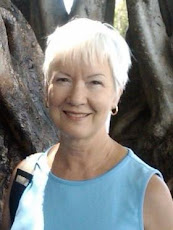

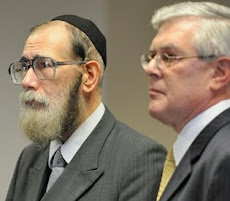

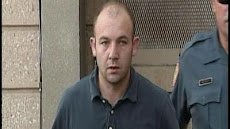















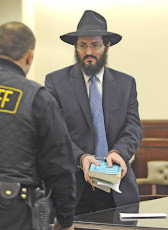



















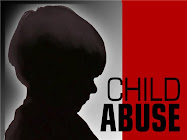













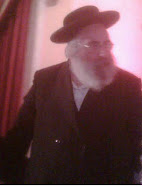











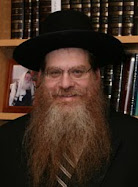












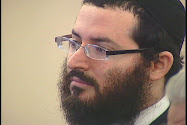
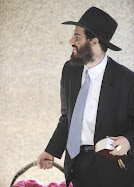
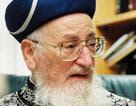









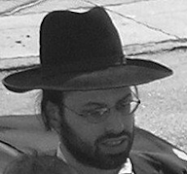

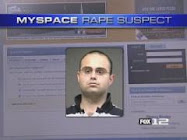









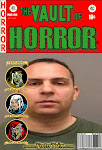












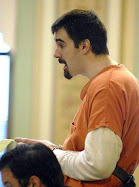


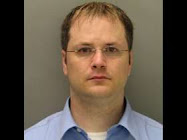


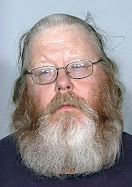

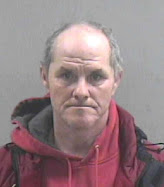
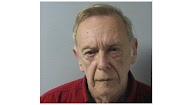
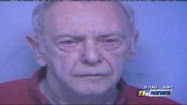













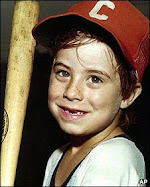



















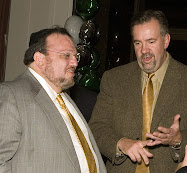
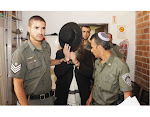



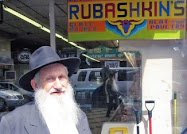















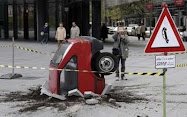











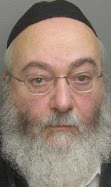












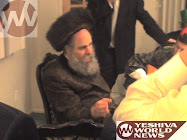









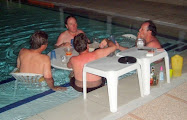

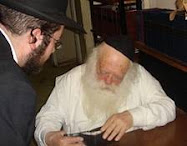


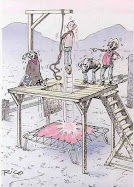




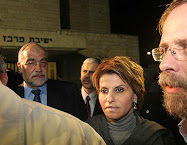
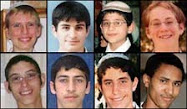
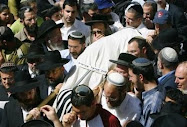
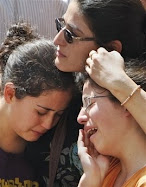
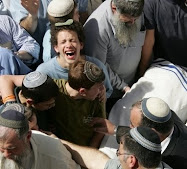
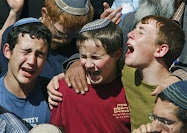

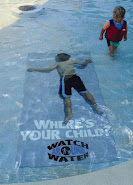

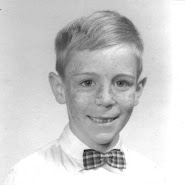







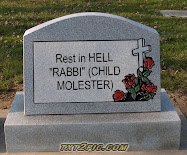








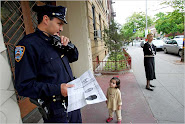

















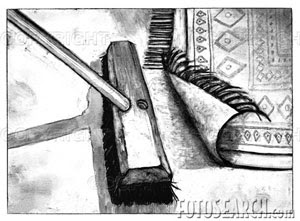
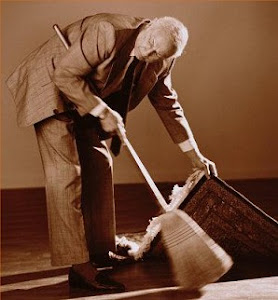













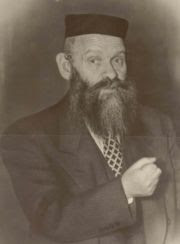




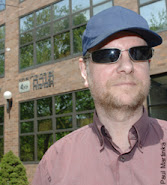

















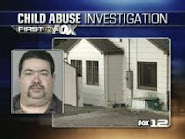
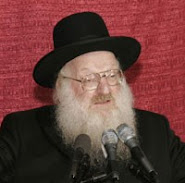





















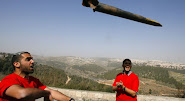
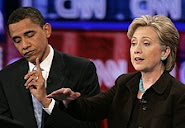












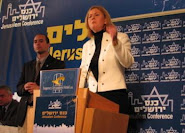


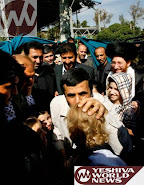
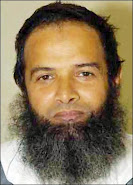


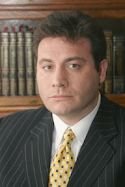


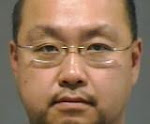
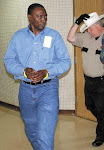

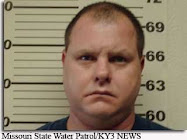



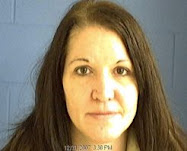


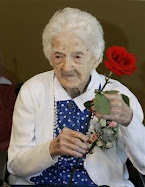

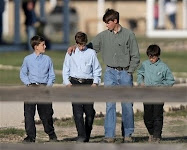



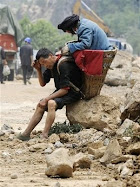



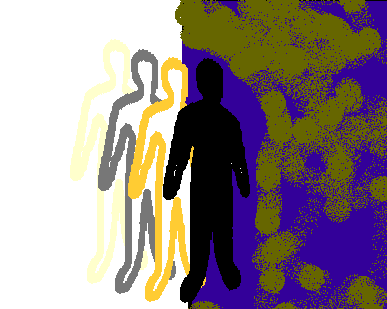

28 comments:
Wow! Powerful. I'm a survivor of sexual abuse. I repeatedly was victimized by my stepfather for many years. I really applaud your efforts. Continue our fight. You should have so much happiness and success. I really admire your work.
How to inspire your kids
Wanting them to be happy is not enough -- teach them to be good human beings: Rabbi
Liane Faulder
CanWest News Service
Rabbi Shmuley Boteach says parents owe it to their children to be role models of good adults.
CREDIT: John Lucas, CanWest News Service
Rabbi Shmuley Boteach says parents owe it to their children to be role models of good adults.
EDMONTON -- Ask average parents what they want for their children, and a platitude is often the response: "I just want them to be happy."
Rabbi Shmuley Boteach -- bestselling American author and host of TLC's Shalom in the Home -- snorts at this less-than-inspiring reply.
"Only a narcissist would say 'I live for myself, to make myself happy,'" says Boteach, author of a new book, 10 Conversations You Need to Have with your Children.
"Goodness is the purpose of life. ... If you raise good kids, you are successful as parents," he says. "If you raise successful people who are not good, then you have failed. We can't fail when it comes to giving our children direction."
That's why Rabbi Shmuley (as the author of Dating Secrets of the Ten Commandments and Kosher Sex likes to be known) chose to write a guide for parents to help them communicate with kids.
"We don't know how to talk to our children, forget about inspiring them. We can't even have a conversation with them. We certainly can't get them to listen to us," says Rabbi Shmuley.
The communication gap is partly because parents have become confused about their role in the family. Modern parents are too anxious to be their children's friends, and so neglect to place limits on their children, discipline them and provide them with proper adult role models. Rabbi Shmuley hopes that by writing 10 Conversations, he can coach parents to quit yelling at children, quit bribing and coercing them, and quit using guilt to change behaviour. He hopes that by showing parents how to sustain meaningful conversations, he can help them to inspire their children to be their best selves. Rabbi Shmuley says "inspiration is giving people a vision of their own greatness."
At 40, the rabbi is certainly an apt spokesman for self-actualization. A nationally syndicated talk-show host in the United States, an international bestselling author, and a columnist for beliefnet.com, Rabbi Shmuley has been quoted all over the planet. He is the author of numerous books, including Why Can't I Fall in Love and Hating Women: America's Hostile Campaign Against the Fairer Sex. A winner of the annual preacher-of-the-year contest sponsored by the Times of London newspaper, he was formerly rabbi of Oxford University.
Despite his widespread acclaim, Rabbi Shmuley maintains he does not define himself as an international celebrity.
"I define myself as a man, as a husband, as a father, as a son, as a friend, as a child of God. Only a very insecure person would define themselves first and foremost by what they do as opposed to what they are. ...
"It's the same with kids and that's why the first conversation in the book is one of the best conversations. It's about what kind of person do you want to be."
In the first chapter, and throughout 10 Conversations, Rabbi Shmuley uses his large family -- he and his wife, Debbie, have eight children -- as examples. He tells his children that every choice in life is subordinate to the moral choice. Each of the chapters introduces a conversation about a moral imperative, such as forgiveness, treating others with dignity, and valuing family and family traditions.
Surprisingly, the chats don't cover drugs or sex. The sex talk, says the rabbi, assumes children don't have good character.
"I would much rather have a conversation about love. We tell our kids don't get pregnant, don't get AIDS, don't do drugs. It presupposes that we have nothing left in our parenting arsenal but fear. I would rather inspire than frighten kids."
Rabbi Shmuley believes in pointing out life's challenges to help children see larger truths. He gives an example of his technique through a comparison with Dr. Phil McGraw, a television personality known for his hard-nosed approach to counselling. In one show, Dr. Phil was working with a married couple where the man had cheated on his wife. Dr. Phil berated the man until he left the stage in anger and then told the woman she had some tough choices to make.
Rabbi Shmuley says that approach is not helpful. Better to lead the offending spouse to recognize why he did what he did, and to inspire him to be his most loving self.
Rabbi Shmuley says children need to be encouraged to listen to their own hearts, to the voice inside that asks each of us to maximize our own potential for goodness, and to look for that goodness in others.
"That it's not all chaos is an important conversation. Kids could conclude there is no order to the universe and what they do doesn't matter. That's not true. The bad things are the exception, by and large. There are simple rules to life ... how you treat people is how you will be treated."
Reprinted from NewsMax.com
Rabbi Schneier: Anti-Semitism Is a Blight on Humanity
NewsMax.com Wires
Monday, Aug. 6, 2007
A new mutation of anti-Semitism, fanned by extremists on the left and right, and radical Islam, is casting a shadow on the core values of Europe, according to Rabbi Arthur Schneier, founder and president of the New York-based Appeal of Conscience Foundation.
Addressing the Parliamentary Assembly of the Council of Europe recently, Rabbi Schneier — himself a survivor of the Holocaust — said religions should work together to fight intolerance: "It is essential that the Cross, the Crescent and the Star of David become symbols of peace, tolerance, and mutual respect." He called for a summit of religious leaders, in partnership with the Assembly, to fight racism and xenophobia.
The text of his full speech follows:
I am honored to address this distinguished parliamentary body. As a survivor of the Holocaust, I am pained that once again we have to confront the demon of anti-Semitism in Europe and the denial of the Holocaust 62 years after the defeat of Nazi tyranny.
As a child in Vienna, I experienced racial and ethnic cleansing and saw my synagogue burning on Kristallnacht, Nov. 10, 1938. I fled my hometown for Budapest. After the German occupation of Hungary in 1944, I experienced once again man's inhumanity to man — the ghettoization of Hungarian Jewry and the deportation of most Hungarian Jews, including my grandparents, to the death camps of Europe.
Those of us who survived will forever be grateful to diplomats of compassion and conscience in Budapest at the time: Agelo Rotta, the Papal Nuncio, Angel Sanz-Briz, the Spanish Minister, Alberto Carlos de Lis-Teixeira Branquihno, Chargé d'Affaires of Portugal, Carl Lutz of Switzerland, and Raoul Wallenberg of Sweden, and to the Allied victory, particularly the Red Army that ended the Nazi rule in Budapest in 1945.
I gratefully commend you for addressing the demon of renewed anti-Semitism that casts its shadow on the civil societies and core values of Europe. Hatred of Jews is the force that unites a broad spectrum of European extremists. This new mutation of anti-Semitism is fanned by extremists on the left and right, and radical Islam.
Skinheads not only attack Jews but will also go after dark-skinned immigrants and members of the Muslim community. Radicalized Islamists in the Middle East beam anti-Semitic stereotypes into Muslim neighborhoods across Europe, while left wing anti-Semitism among Western Europe's elites crosses the line from legitimate criticism of some of Israel's policies into outright anti-Semitic attacks against Jews.
Anti-Semitism not only victimizes the Jewish population, it is an indicator of how societies treat other religious, ethnic and racial minorities. Anti-Semitism is a hate crime in violation of human rights; it is a manifestation of hate by those who want to erase the dignity and value of each and every human being. It is the tip of the iceberg, a monstrous human evil; it is the fodder for violence against humanity, culminating in crimes of racism, xenophobia and Islamophobia.
Just a year ago on June 15, 2006 this body passed a resolution condemning the increase in racist and homophobic violence in Europe that specifically referred to the Treaty on European Union and the European Union Charter on Fundamental Human Rights. That resolution was designed to establish a framework to fight racism and, indeed, anti-Semitism.
That resolution, as you are aware, noted the increase of anti-Jewish violence in member states and called for individual states to withdraw funding from political parties that failed to abide by their charter and treaty obligations, launch political awareness campaigns to promote cultural diversity, and be vigilant in the fight against racism and other forms of intolerance.
However, the recent OSCE meeting June 8 in Bucharest noted serious deficiencies in the implementation of this very important resolution.
I call to your attention excerpts from the Bucharest declaration:
# The primary responsibility for addressing anti-Semitism rests with states, including their political leaders.
# It's important to enact and implement legislation and law enforcement as essential tools to combat hate crimes and violent manifestations of anti-Semitism. Authorities must adopt and implement such legislation and establish effective monitoring and enforcement measures.
# International developments or political issues, including in Israel or anywhere else, can never justify anti-Semitism.
The report of the British all party parliamentary inquiry into anti-Semitism, chaired by John Mann, M.P., also disturbingly reports an increase in anti-Semitic incidents in Britain.
For over four decades as founder of the interfaith Appeal of Conscience Foundation, I have dedicated my life to help advance religious freedom, human rights, and tolerance. As Christian, Muslim, and Jewish religious and business leaders we have worked through inter-religious dialogue and action to strengthen the forces of coexistence, mutual understanding, and mutual acceptance.
In my personal world view, it is all about live and let live. The division and conflict in different parts of the world is not a conflict of ethnicity, religion, or culture. It is a conflict between those who believe in coexistence and those who reject it. In this technological advanced, globalized world we must support those who believe in unity in diversity and reject those who want to fragment society. The Council of Europe binding 47 states with different cultural, ethnic, and religious identities faces that challenge.
The 20th century was the bloodiest century in the history of civilization. Sadly, much of that blood has been shed on the European continent. Blood shed at times in the name of God over religious and ethnic issues.
But I believe that a crime committed in the name of religion is the greatest crime against religion.
It is essential that the Cross, the Crescent, and the Star of David become symbols of peace, tolerance, and mutual respect. The Bible speaks of the protection of the stranger "the other" 36 times. The barometer of democracy and the rule of law is how the majority treats the minority.
I was privileged to be a member of the United Nations Alliance of Civilizations High Level Group, appointed by the U.N. secretary general, to recommend ways to avoid a clash of civilizations. One of our conclusions was that racism, xenophobia, anti-Semitism, and Islamophobia are impediments to peaceful coexistence and must be challenged, resisted and overcome in the interest of peace and stability.
I wholeheartedly endorse the draft resolution by the Political Affairs Committee. Its adoption would send a clear signal of a united European response to the growing threat of anti-Semitism. I particularly would stress the following points in the resolution:
# The Internet and cyberspace which are a haven for anti-Semites to find one another, promote their agenda and do so under the guise of anonymity.
# Universities and academics whose anti-Israel stance many times translates as disguised anti-Semitism such as the British University & College Lecturer's Union vote to call for a boycott of Israeli institutions, calling on lecturers to "consider the moral implications of existing and proposed links with Israeli academic institutions." Another example: MAUP University in the Ukraine is noted for its vitriolic anti-Semitic actions.
# Target the main social hubs for anti-Semitism, specifically the culture surrounding football matches. At a recent European-Israeli match in Berlin, the fans of the Europeans repeatedly shouted "death to the Jews, synagogues must burn again."
# We must honor the observance of Jan. 27 as the International Day of Commemoration of Holocaust Victims as recommended by the U.N. General Assembly on Nov. 1, 2005.
Finally, religious sites are part of the precious heritage of culture and civilization. Shamefully, too many churches, mosques, and synagogues have been destroyed in Europe. I am horrified by the destruction of any religious site, houses of worship, desecration of cemeteries and monuments. It is an onslaught on one's identity and heritage that leads to dehumanization and the destruction of human beings.
The Appeal of Conscience Foundation initiated the United Nations Resolution 55-254/2001 for the Protection of Religious Sites which passed unanimously by the UN General Assembly, I would respectfully urge that this resolution be adopted in all member states comprising the Parliamentary Assembly of the Council of Europe.
The Appeal of Conscience Foundation has held major conferences including Peace and Tolerance, in Berne (1992) and Istanbul co-sponsored with the Ecumenical Patriarch (1994, 2005); and the Conflict Resolution Conference, Vienna (1995 and 1999) that energized religious leaders in pursuit of tolerance and peace with full support of Pope John Paul II, Pope Benedict XVI, the Ecumenical Patriarch Bartholomew I, Patriarch Aleksey II, United Nations Secretary General, the Islamic Conference, and the World Council of Churches.
Based on four decades of promoting conciliation and peace, the ACF is prepared to work with you on helping combat anti-Semitism through inter-religious dialogue and cooperation. Drawing from our worldwide experience we are ready to assist in convening a summit of religious leaders in partnership with the Parliamentary Assembly in the struggle against all forms of racism and xenophobia.
Education: children are not born with hatred, they are taught to hate. I recommend the convening of education ministers and leading educators to review text books and educational materials that denigrate "the other" faith communities.
The United States is not immune to hate crimes. On the state level, legislation has been passed and is being enforced for the severe punishment of hate crimes. I recommend a transatlantic partnership in combating anti-Semitism and any other manifestation of hatred against a race, ethnic, or religious group.
"You are not required to complete the task, yet you are not free to withdraw from it (Ethics of the Fathers 3:21)."
It is not for our generation to complete this mighty task of uprooting hatred from the world, but neither are we free to desist from doing our part.
August 7, 2007
Arab School Principal Says She Regrets Intifada Remarks
BY ELIZABETH GREEN - Staff Reporter of the Sun
August 7, 2007
URL: http://www.nysun.com/article/59954
The principal of an Arabic-language public school due to open next month is under fire for taking what several Jewish groups are condemning as a soft stance on the violent Palestinian Arab uprising known as the intifada. The principal, Debbie Almontaser, was quoted yesterday interpreting T-shirts that say "Intifada NYC" as not an endorsement of violence but rather "an opportunity for girls to express that they are part of New York City society ... and shaking off oppression." She followed the word's literal Arabic meaning, which is "struggle" or "uprising."
In a statement late yesterday afternoon, Ms. Almontaser backed away from her comments, reported by the New York Post, saying she regretted suggesting the T-shirt slogan was appropriate. "By minimizing the word's historical associations I implied that I condone violence and threats of violence," she said. "That view is anathema to me and the very opposite of my life's work."
Ms. Almontaser has previously led inter-group tolerance lessons for city schoolchildren, and her supporters say her school, the Khalil Gibran International Academy, will bridge differences by teaching a diverse group of students the Arabic language alongside a traditional college preparatory curriculum.
Among the critics to emerge before she released her statement yesterday were several groups that had extended close support to the school, set to open in Brooklyn this September.
"I feel like a fool. I think Abe Foxman should feel like a fool. And certainly Joel Klein if he sponsors it will be a fool," a CUNY board member who had decided to support the school, Jeffrey Wiesenfeld, said.
Mr. Foxman's group, the Anti-Defamation League, had defended the Khalil Gibran school against charges of ties to Islamic terrorism, vowing it would actually abet discrimination. Yesterday, however, the league's New York State regional director, Joel Levy, said he sent an e-mail message to the Department of Education after reading Ms. Almontaser's comments, which he called troubling. "The word intifada has a very specific meaning, and it's the violent uprising in the Palestinian territories," he said. "We can't ignore that."
The T-shirts were produced by a group called Arab Women Active in Art and Media and spotted by members of a watchdog group that opposes Khalil Gibran, the Stop the Madrassa Coalition, at an Arab cultural fair last month. The shirts sport the letters "NYC" in bold white type, with the word "INTIFADA" curving around them in an arc, according to photos on the coalition's Web site.
"At first we didn't know what to make of it," a representative of the group, Pamela Hall, said. After the activists traced the art group to Ms. Almontaser — it shares a building with a Yemeni association she founded — Ms. Hall said they decided the T-shirts represented their worst fears about Khalil Gibran: that it will advocate terrorist violence.
A rabbi who is an adviser to Khalil Gibran, Andy Bachman of Congregation Beth Elohim in Park Slope, said he was also concerned by yesterday's story in the Post, but he said he made sure to call Ms. Almontaser for her perspective before making a judgment.
In a conversation, Rabbi Bachman said Ms. Almontaser assured him that she did not condone the T-shirts. He said he is confident that Khalil Gibran will be an antidote to terrorism, not a perpetrator of it. "In the wake of both 9/11 and the perilous state of the world, with several wars moving all around us," he said, "it's I think a beautiful opportunity to bring students from a variety of backgrounds all together to learn about Arabic culture." Rabbi Bachman also praised the opportunity for students of Arab origin to learn about American values in a public school.
The executive director of the American Jewish Committee, David Harris, condemned the T-shirts in a statement, but a spokesman, Ken Bandler, said the committee does not condemn the school. "We're hopeful that it will be a solid part of the public school system," Mr. Bandler said. "We'll see what happens."
Chancellor Joel Klein has supported Khalil Gibran despite protests. The school has also received grants from the Bush administration, through a program created to promote Arabic- and Chinese-language education.
A U.S. Department of Education spokesman, Jim Bradshaw, said he had no comment about Khalil Gibran.
Police Still Looking For Cause Of Argyle Crash
Web Editor: Helen Couture, Producer
Last Updated: 8/7/2007 2:03:26 PM
ARGYLE (NEWS CENTER) -- State Police continue to investigate the cause of a van crash on Interstate 95 in Argyle Monday morning that killed a teenage boy and left 12 other people injured.
15-year-old Gedalia Rosenblatt of New York was killed when the van overturned. Two camp councilors and 10 other campers were injured.
Police say the van was carrying campers and counselors from Camp Seven Springs, a Jewish camp in Bethel, New York. They were on their way to northern Maine to canoe the Penobscot River and hike in Baxter State Park. Public Safety Spokesman Steve McCausland says the van was traveling north when it appears to have drifted off the left hand side of the road into the median before ending up in a grassed sloped area along the travel lane. The van overturned at least once.
A Rabbi from Brooklyn flew to Maine Monday night to accompany Rosenblatt's body back to New York for burial. The Rabbi said officials cooperated very well with Jewish law in allowing them to take Rosenblatt's body home so quickly.
The van was towed to the state police garage in Augusta for examination. Investigators aren't speculating the cause of the crash, but they say alcohol was not a factor.
NEWS CENTER
Police ID Monsey boy killed in camp van crash
By SHAWN COHEN
THE JOURNAL NEWS
(Original Publication: August 6, 2007)
ARGYLE TOWNSHIP, Maine - The van that crashed and killed a Monsey boy and injured 12 others this morning was driven by a 21-year-old camp counselor who had driven through the night for a canoeing and hiking trip in northern Maine, police said.
The 15-year-old boy who died has been identified as Gedalia Rosenblatt. His body is being flown back from Maine this afternoon so his family can hold a customary Jewish burial before sundown.
State police in Maine are waiting to speak with the driver, Yehoshua Hoffman, who remains hospitalized with serious injuries. The other staffer in the van was Yosef Franklin, 20, of Monsey. They were traveling with 11 yeshiva boys, ages 14 to 18, from Camp Seven Springs, in Bethel, N.Y.
The van, pulling a trailer loaded with canoes, overturned at least once and came to a rest upright about 7 a.m. in Argyle township, 10 miles north of Bangor, said Stephen McCausland, spokesman for the Maine Department of Public Safety.
Police are investigating the cause of the crash, but said that was difficult because most of the passengers were asleep at the time.
The van left Bethel at 8 last night.
"It appears the van drifted off into the median and that he (Hoffman) overcorrected," McCausland said. "It overturned and came to rest in the sloping grassy area next to the travel lane."
It took at least seven ambulances to transport all of the victims to a pair of hospitals in Bangor, McCausland said.
Rabbi Judah Hirsch of Congregaton Beth Aaron in Monsey said Hoffman, was undergoing surgery this afternoon and that doctors were hopeful he would recover from his injuries. Others in the van suffered mostly minor injuries, such as broken hands or feet, he said.
The van was carrying the boys from Camp Seven Springs to Maine so they could canoe the Penobscot River and hike Mount Katahdin.
Rabbi Hershel Rosenbaum of Misaskim, an organization that helps observant Jewish families deal with tragedies, said a member left about 2 p.m. by private plane to bring the child's body back for burial today.
Hirsch said Gedalia would be buried at a cemetery at the junction of Brick Church Road and Route 306.
"He was a lovely soul, a very special student," he said. While Gedalia's death was very painful, Hirsch said he took comfort in knowing that the boy had gone on to the afterlife.
Staff writer Randi Weiner and the Associated Press contributed to this report.
Check back for updates at LoHud.com and read more about this story tomorrow in The Journal News.
I'm not worried about keeping kosher while in jail. Maybe margo can help me out by making sure I get bagels and lox with cream cheese every Sunday. Ooops. Maybe not margo, he will be in jail with me. How about Belsky, will that clown be incarcerated or will he be free to visit me?
Rabbinical students bring hope, kosher food to inmates
Associated Press
Posted Thursday, July 19, 2007 at 9:56 am
HAGERSTOWN, Md. — New York rabbinical students Avraham Levin and Schneur Yecheilov entered the Roxbury Correctional Institution with religious literature and ritual prayer materials — but without apprehension.
The bearded, yarmulke-wearing men, both 20, said they have found little to fear and much to ponder while bringing hope, comfort and the promise of kosher food to incarcerated Jews in Maryland, Delaware and New Jersey this summer.
“I wouldn’t say I have anxiety while I’m in there,” Levin said while visiting the minimum-security state prison near Hagerstown recently. “I would say I’m more worried in Brooklyn at 2 a.m. when no one else is on the street.”
Levin and Yecheilov, of the Talmudical Seminary Oholei Torah in Brooklyn, are part the Aleph Institute’s nationwide prison outreach program that will visit 5,000 Jewish inmates in 450 prisons in 45 states over six weeks this summer.
The Aleph Institute, headquartered in Miami and founded in 1991, provides social services to families in crisis, works with the Defense Department on religious issues in the military and tries to address the religious needs of incarcerated.
The group often advocates for the availability of kosher food, helps prisoners prepare for Passover and contacts prison officials on behalf of inmates wishing to light candles as part of religious celebrations.
“The first thing we want to ask is how they are doing and find out what they are lacking in terms of their Judaic practice, and what we can do to help fill those needs,” said Leah Sherman, a spokeswoman for Aleph, which maintains a database of Jewish prisoners in the United States
“If someone cannot set a Seder plate — for instance, the prison may provide an egg and lettuce, but not a shank bone — we will cook it and send the shank bone, vacuum-sealed, to them,” she said. The bone represents the lamb that was sacrificed on the eve of Passover.
Religious education is central to the mission of the volunteer rabbinical students like Levin and Yecheilov, who began their voluntary tour in June in New Jersey. Staying in motels and living modestly, they carried their message into Delaware and then Maryland, arriving in early July.
The state had an estimated 250 to 260 Jewish inmates as of November, said Rabbi Harold Axelrod, the only full-time Jewish chaplain in the Maryland correctional system.
Levin and Yecheilov said they take copious notes of the inmates’ status and list their requests. They exchange and copy down mailing addresses and ask if the prisoners have experienced any anti-Semitism while incarcerated.
“For the most part, they say no,” Levin said.
In each Maryland prison, Levin and Yecheilov said they have generally met with about a half-dozen men. Yecheilov said some inmates have become observant for the first time while incarcerated.
“It varies in intensity,” Yecheilov said, “but many are beginning to pray and are learning the Torah.”
Levin said the visits are sometimes dramatic.
“I had someone look me in the eye and ask me how old I was,” he recounted. “I told him I was 20. He looked at me and said, ’I’ve been locked up longer than you’ve been alive.’ Then he listened to what I had to say.”
The students said they encourage inmates to learn and seek understanding about righting their wrongs. They let inmates know they are not alone and that someone cares about them.
“Everybody has a second chance,” said Levin. “As long as they are willing to look at their past, offer repentance to God, He will forgive them.”
The question should not be whether Jewish/kosher Slaughter (Shechita) of animals is the most humane pain-free method. The Torah goes into great detail about this, and I personally feel that Shechita, IF DONE PROPERLY, is painless and humane.
The question should then be: ARE THE SLAUGHTERHOUSES NEGLIGENT IN CAUSING ANIMALS PAIN - WHEN THERE SHOULD BE NONE CAUSED WHATSOEVER?
It appears the answer to that question is a profound YES, Nebach.
I have very grave concerns that dictate to me and others that animals are being caused Tzar Ballei Chaim and Agras Nefesh.
Avi Shafran and Agudah, Yisroel Belsky, Rubashkins - all would like us to believe that there is some witch hunt against Shechita, but only people with something to hide - react so defensively - and so afraid.
The above butchers of children, again, are twisting and avoiding the real crux of the issue. Kosher Slaughter is the most humane - But how are they living up to the laws of Shechita?
The same can be said about the Torah which is ever so sacred to us. The Torah is holy NO QUESTION, however are people perverting and twisting the Torah for their own personal benefit and pleasures? YES, YES, YES, YES, YES, YES, YES!
------------------------------
Not Everything is Kosher at So-Called Kosher Slaughterhouse
Friday, July 13 2007 @ 02:58 PM PDT
Contributed by: Oread Daily
Earlier this week PETA filed a formal complaint with Sheridan County Attorney Jamian Simmons asking her to prosecute the Rubashkin-owned Local Pride kosher slaughterhouse in Gordon for apparent violations of Nebraska's cruelty-to-animals statute. PETA's complaint follows a two-day undercover investigation during which an investigator documented the following abuses:
NOT EVERYTHING IS KOSHER AT SO CALLED KOSHER SLAUGHTERHOUSE
Oread Daily http://oreaddaily.blogspot.com/
Before you get started, stand warned, if you are not Jewish there are parts of this article you are likely to just not get.
Also, many of you will simply wonder why I bothered with all the religious stuff. The last paragraph of this "introduction" will give you some idea of the reason for that.
Earlier this week PETA filed a formal complaint with Sheridan County Attorney Jamian Simmons asking her to prosecute the Rubashkin-owned Local Pride kosher slaughterhouse in Gordon for apparent violations of Nebraska's cruelty-to-animals statute. PETA's complaint follows a two-day undercover investigation during which an investigator documented the following abuses:
* Cows remained conscious for up to two minutes after their throats were cut open.
* Workers ripped into conscious cows' throats with a metal hook.
* Workers mutilated conscious cows' ears to remove identification tags.
Under Nebraska law, cruel mistreatment of animals is a Class I misdemeanor for the first offense and a Class IV felony for subsequent offenses.
According to the blog "heeb'n'vegan" published by a Jewish Vegan, "...numerous experts have come forward to condemn the cruelty of the practices observed at the Local Pride slaughterhouse.
Of particular interest to me, the blog publisher states, are the words of Dr. Bernard Rollin. Dr. Rollin is a distinguished professor who received his Ph.D. from Columbia University (1972). He is the author of numerous articles and books, including The Unheeded Cry: Animal Consciousness, Animal Pain and Scientific Change and Farm Animal Welfare. He is one of the leading scholars in the field of animal consciousness, and he has given more than 1,000 lectures around the world. He writes,
“When I was a boy learning the precepts embodied in the Jewish tradition, I was taught that the suffering of living things—tsaar baallei chaim—is morally and religiously intolerable. … What is depicted in this video is a mockery of these precepts, and a disgrace to Orthodox Judaism. … The drooling, the vocalizing, the manifest distress [depicted in the video] all serve to demonstrate that animal handling procedures at that abattoir are well below the threshold for acceptability. … In this video … the animals suffer while conscious for prolonged periods, in one case over two minutes. … In the same vein, the evident insertion of the meat hook to increase bleeding is both inhumane and a violation of the principles of kashrut. The ripping out of ear tags before the animal is unconscious is equally morally and religiously illegitimate. The vocalization and struggling after the cut is made speak for themselves and evidence suffering and a callous disregard for that suffering that should be abhorrent to and condemned by all observant Jews.”
In fact, three years ago when another Rubashkin family slaughter house was in the news, Rabbi Yudel Shain of the Lakewood, NJ-based Kosher Consumers Union made serious allegations about the state of kosher supervision at AgriProcessors. The Kosher Consumers Union is America's foremost advocate of issues Concerning the kosher consumer. One of its aims is, "...protecting the kosher consumer by informing about mislabeling and false advertising that applies to food products that are falsely held out to the public as having met the Kosher Consumer's standards."
Among the explosive charges made by Rabbi Shain:
1. I photagraphed at AGRI an animal that was still very much alive (after shechita) & they shot it in the brain right away & it was used as a kosher animal. It is an accepted practice by Rabbinical certifiers NOT to use such an animal.
2. Rubashkin’s so called “Bais Yosef” meat is all a “sham”. The RUBASHKIN Certifier is of the stated opinion that all of their meat is “Bais Yosef” & that nobody really knows what is or is not Bais Yosef meat. (FYI contrary to Dayan Kohn BaisYosef means “no lung adhessions whatsoever”.) RUBASHKIN commonly send to caterers so called Bais Yosef meat for Sephardim and there will be 1 or 2 pieces marked accordingly “Bais Yosef’ & the rest isn’t Bais Yosef”. … Their so called Bais Yosef meat is a consumer sham! including the beef & veal certified by Rabbi Hatchuel.
3. The system at RUBASHKIN is that non-Jews do the physical “nikur” [removal of forbidden fats] which is then checked by the “Mashgiach” [rabbinic supervisor]. The Certifier was shown that the “Mashgiach nikur” physically can’t handle the load and some meat goes by without being checked. He responded “there isn’t enough full time work for 2 people, only for 1 1/2 people & we can’t hire half a person so we’ll leave it with one Mashgiach till there is enough work for two full time people”.
4. The quality of RUBASHKIN’s cattle is the cheapest available in the market (per USDA inspector, “low grade”) yet they have the highest ratio of “Kosher, Glatt, Bet Yosef” (including their veal) than most others. [Low-grade cattle normally have significantly higher levels of non-kosher and non-glatt than high-grade cattle.]
5. RUBASHKIN commonly switches labels, as it was found on numerous occasions that on top of a nonGlatt label was stuck on a Glatt label, ‘cause they were short for an order. The Non-Jewish RUBASHKIN truck drivers have in their possession a box of different kosher labels to put on to boxes of meat as per a store’s request (I have 1 of those boxes of labels that I saw fall off a truck).
6. The lung in an animal is an organ that constantly expands & contracts in the cavity of the animal. The lung is a relatively free hanging organ attached to the animal mostly by the tissue & muscle of the trachea, and slightly to other areas by some membranes. Once one cuts the supporting tissue & muscles around the kunah [lung] it is basically detached easily from the animal with a good pull or via a meat hook.
Immediatly after shechita while the animal is still in the schechita position, a non-jewish worker (the Shochet leaves the room) utilizes an 8 inch (approx) knife to enlarge the opening around the trachea & also cutting into the “diaphragm area. He then use a meat hook to grab & pull the trachea a few inches & cutting off the trachea near the lung.
The concerns are that by making the cut along the diaphragm area & around the trachea one may (in)advertently also puncture the lung. The knife is inserted quite deeply into the neck area thereby risking cutting the sirchos of the upper lung lobes. (Simlah Chadosha.)
Another serious concern is that by hooking & pulling on the trachea it will rip and dislodge the sirchos / adhesions that go from the lung to the Ribs and / or also some sirchos on the lung itself and then having the $$ opportunity to call it Glatt or at least kosher.
After the above procedures, it is practically impossible to check the lungs properly for Glatt or sirchos.
7. The “Weinberg pen” allows a shechita munachas, which is the preferred method of shechita throughout history. The design of this pen’s head restrainer is not proper. The metal bar should come way below the neck’s shechita area. The Shochet is obviously afraid of nicking his knife on the metal bar, so he must do a controlled shechita with 7-8 back & forth knife strokes (a possibility of shehiya exists). An experienced Shochet utilizes 1-2 Back & forth knife strokes. Because of this “controlled cut” the Shochet obviously is not severing all of the arteries, requiring an unacceptable “2nd cut”.
Severing all neck arteries causes an almost immediate total collapse of the animal.
8. Some 6-7 months ago a Shochet from a prominent “Torah community” was invited to see the beautiful “Rubashkin system” of shechita. He was impressed by the “show”. Now when the Shochet saw the PETA pictures he was aghast! While he was there they weren’t ripping tracheas, animals weren’t walking, thrashing around after the shechita etc. “I was taken for a ride! How can I believe “anything” I saw?” The Israeli Rabanut’s representatives claim they never saw many of the unacceptable items depicted on the PETA pictures.
The "heeb'n'vegan" blog cites an interesting article about shechita, titled "If Cows Could Talk, Like Balaam's Donkey," by vegetarian rabbi Haviva Ner-David in the July 9 issue of The Jerusalem Report. Ner-David lives in Jerusalem and is the founding director of Reut: The Center for Modern Jewish Marriage.
Ner-David begins by talking about how repulsed she was by a cow's suffering at a
kosher slaughterhouse she visited. She writes that "the way shehita is carried
out today cannot be called kosher in terms of both the spirit and the letter of
the law. The Shulhan Arukh (Code of Jewish Law) tells us that an animal about to
be slaughtered should not see the animal being slaughtered before because fear
will cause the animal to flinch and therefore be rendered a treifa because the
knife will not cut smoothly. This rule (as well as other ways this cow's
suffering could have been minimized) was blatantly ignored by the slaughterhouse
I visited that day."
According to many halakhic authorities, shehita is
meant to minimize the animal's pain ("Guide to the Perplexed," 3:26). In the
past, shehita was a more humane way of slaughtering animals than was common in
the surrounding cultures in which Jews lived. This is no longer true. Though
stunning prior to slaughter has become the norm in non-kosher slaughter,
halakhic authorities do not allow stunning. In addition, though not an absolute
halakhic requirement, ultra-Orthodox rabbinic authorities and the Israeli
rabbinate require that the cow be inverted during shehita, which is not the
common position in non-kosher contexts.
Truth be told, if we consider complying with the requirements of tza'ar ba'alei hayim a requirement for meat
to be considered "kosher," today's food industry renders all meat production
non-kosher. Until recent times, animals were raised on private farms, under
relatively humane conditions, and when the time for slaughter arrived, it was
possible, at least, to treat the animal with dignity. This was true for kosher
slaughter as well.
Today, mass production has taken over. Under these
conditions, it is impossible to treat animals in a way that would comply with
the laws of tza'ar ba'alei hayim. This is why all Jews concerned with Jewish
values and/or Jewish law should consider vegetarianism.
A side note: The slaughter house processes kosher beef, lamb and bison products using workers from the nearby Pine Ridge Indian Reservation. The website "Failed Messiah.com" written by a disgrunlted ex-follower of Chabad Lubabvitch says:
The Jewish community has a long history with Pine Ridge and the Oglala Sioux. Most of it good; some, not. The tribe’s positive exposure to Orthodox Judaism has largely been through left-leaning Orthodox Jews, including at least one rabbi, Moshe Lichtman, who practice a sort of social action, peace and justice style, Judaism and who work with non-Orthodox Jews.
But the Rubashkin family has a history of illegal and anti-social behavior – a history that includes bank fraud, misappropriating union dues paid by it’s employees, the documented recruitment of illegal alien workers, repeated EPA violations and the original Postville controversy.
One wonders whether the Oglala Sioux have trusted too much, based on their past experience with an atypical "bein adam lehaveyro"* Orthodoxy.
As a vegetarian Jew myself who during one of my stranger "periods" became pretty darn religously observant, I would call upon the Jewish community to, at the very least, openly condemn the most blatant animal cruelty displayed at she so-called kosher slaughterhouses run by the Rubashkin family.
The following is from The Forward.
Video Renews Beefs About Slaughterhouse’s Practices
A video from a kosher slaughterhouse in Nebraska is reigniting concern about the way the nation’s largest kosher meat company handles its animals.
The three-and-a-half minute video shows bloody images of cows being killed at the Local Pride slaughterhouse in Gordon, Neb., which is owned by the Brooklyn-based Rubashkin family. The footage was filmed and released by the animal rights group People for the Ethical Treatment of Animals.
The Rubashkins, adherents of the Chabad-Lubavitch Hasidic sect, also own the Postville, Iowa-based AgriProcessors, the nation’s largest kosher slaughterhouse. In 2004, AgriProcessors came under sharp criticism from a number of rabbis and animal rights activists after PETA released a separate video from the Postville slaughterhouse that showed gruesome footage of cows walking around after having their necks cut. Since then, AgriProcessors has also come under fire for the treatment of its workers.
The new video shows much less gut-wrenching detail than the one from 2004. A PETA spokesman said that allegations this time around are more limited. Unlike the previous video, which was filmed clandestinely, the new one was made with the knowledge of the workers, according to PETA. The group alleges that the video provides proof of the Rubashkins’ failure to follow through on reforms that they agreed to make after the previous video was released, including a promise to use a gun to immediately kill any animal that is not rendered insensate after the kosher cut is administered.
“It’s extremely disappointing to find that three years later, AgriProcessors still can’t slaughter without horrible abuse of the animals involved,” Bruce Friedrich, PETA’s vice president of international grasssroots campaigns, told the Forward.
PETA has filed complaints with the county attorney in Nebraska and with the United States Department of Agriculture.
Calls to AgriProcessors’ headquarters and to an AgriProcessors’ spokesman were not returned before press time. Nat Lewin, a Washington lawyer who has defended AgriProcessors in the past, said that the video does not show anything illegal or out of the ordinary in slaughterhouses.
“All I can conclude is that it proves that PETA is out to destroy or make unlawful [kosher slaughter] in all its actual implementation,” Lewin said. “The purpose of the video is to have people say, ‘Look, there is a man with a beard and a long knife.’”
The new footage comes from a Nebraska plant that the Rubashkins opened in 2006. It is staffed by residents of a nearby Indian reservation. The Nebraska plant is reported to have 100 employees, an eighth of the number who work at the Iowa facility.
In the new video, the cattle appear be moving their eyes, necks and tongues long after their throats have been slit. In one case, PETA says the movement went on for two minutes. In testimony gathered by PETA, a number of veterinarians hold that cows are still conscious until their eyes roll back. Lewin said that “after [kosher slaughter,] animals may move, but when an animal moves that does not mean it is conscious.”
The video appears to corroborate PETA’s allegation that factory workers cut off the ears of cows while the cows are still moving. Other footage appears to show a worker using a metal device — a hook, according to PETA — to reach into the throats of the animals after the cut but before the animals stopped moving.
The most controversial scenes from the 2004 video showed a worker using a hook to pull out a moving cow’s trachea. AgriProcessors had promised to stop the practice.
Among the critics of the new footage is animal rights expert Temple Grandin, who was also a prominent critic of AgriProcessors after the release of the 2004 video. She visited the Iowa plant last year, after a series of reforms had been implemented, and gave it a clean bill of health. Now, in response to the new footage, she is again criticizing the company.
“They’re not working on fixing the details of their procedure,” Grandin told the Forward. “Now, it’s nowhere near as bad as the other AgriProcessors thing. I would label that atrocious. This I would label poor.”
The kosher slaughter at the Nebraska plant is certified by a number of Orthodox authorities, including the leading kosher certifier, the Orthodox Union. In 2004, the O.U. initially defended AgriProcessors but soon thereafter assumed a more critical stance, demanding that changes be implemented.
The CEO of the O.U.’s kosher division, Menachem Genack, told the Forward that he had not had a chance to watch the new video. He said that after hearing from PETA, he had asked one of his inspectors to go to the plant. Genack said that based on what he had learned, “this is nothing like the same story as Postville.”
A spokesman for a branch of the United States Department of Agriculture, Amanda Eamich, said that her agency had sent a veterinarian to the Nebraska plant after receiving the PETA complaint. Eamich said that her agency is “reviewing the procedures” at the Nebraska plant but has not made any conclusions.
In 2004, PETA made complaints to the local prosecutor in Iowa and to the USDA. A USDA investigation found that the plant had “engaged in acts of inhumane slaughter.”
http://www.infoshop.org/inews/article.php?story=20070713145814263
A MESSAGE TO THE RABBINICALLY ORDAINED POPULACE IN PARTICULAR; AND THE SIMPLETON JEW IN GENERAL:
I hail and laud the fantastic efforts by the many good Rabbis out there who speak out and act against child neglect, sex abuse, and other conspicuous and significant topics. Unfortunately, they are in the small minority.
Our times particularly, taking a tough and/or firm stance on child molesters and sex abuse in the Jewish sect, can be a tough mountain to climb for many. When I use 'many', I refer to the large majority of Rabbis that fear some sort of repercussions and retribution if they dared make their voices heard. I can understand some of their alienated fears, but that doesn't essentially make them good people, the opposite - it's a reflection of cowardly behavior and clouded judgment.
For those who acknowledge the fact that many Rabbis and Jews did zero and zilch while kids were being abused - but that it shouldn't disparage and detract from their life work and achievements - think again.
I present the following trivia question:
If someone raped your child while you were forced to watch it happen (lo uleinu) - How do you think you'd feel and react? Then ask yourself the following question afterwards to see if you're a winner or a loser:
If the scenario placed above before you is the exact same one now; except that this time you're being forced to watch a child being raped that is NOT your kid - What would your ambiance and mood be like then?
Possible answers:
1) person is outraged when it involves their own kid but not another's. Person is determined to see the abuser punished.
2) person is livid and fuming in both cases; regardless if it was their child or not. Person is determined to see the abuser punished.
3) person is distraught, sad, and angry; but wants to keep this "quiet" in both sequences. Person is NOT so determined to see the abuser punished.
TEST SCORE:
1) LOSER
2) WINNER
3) LOSER
If you answered #1 then.....
YOUR NOT HUMANE
If you answered #2 then.....
I LIKE YOU :)
If you answered #3 then.....
YOUR NOT HUMANE AND YOU DESERVE A HORRIBLE DEATH!
----------------------------
Anne Frank:
Then, without realizing it, you try to improve yourself at the start of each new day; of course, you achieve quite a lot in the course of time. Anyone can do this, it costs nothing and is certainly very helpful. Whoever doesn't know it must learn and find by experience that a quiet conscience makes one strong.
Archibald Macleish:
The dissenter is every human being at those moments of his life when he resigns momentarily from the herd and thinks for himself.
Barbara De Angelis:
Living with integrity means:
* Not settling for less than what you know you deserve in your relationships.
* Asking for what you want and need from others.
* Speaking your truth, even though it might create conflict or tension.
* Behaving in ways that are in harmony with your personal values.
* Making choices based on what you believe, and not what others believe.
Please remember to always wear your seat belts. It literally saves lives.
To Catch A Predator -- Lights, Camera, Entrapment?
Posted Aug 8th 2007 4:30PM by TMZ Staff
high-powered celebrity lawyer representing a doctor accused of being a sexual predator went after "Dateline NBC" yesterday in a California courtroom.
Blair Berk, whose clients include Lindsay Lohan, Mel Gibson and Halle Berry, is currently representing Dr. Maurice Wolin, a prominent oncologist. The doctor was taken down by cops last year as "Dateline" cameras rolled. Prosecutors say Dr. Wolin made plans to have a sexual encounter with someone on the Internet who he thought was a 13-year-old girl. In fact, the person who was IMing Dr. Wolin was self-proclaimed "evil vigilante" Xavier Von Erck, founder of Perverted Justice.
DadtelineIn yesterday's preliminary hearing in Santa Rosa California, Berk grilled a cop whose department worked with Perverted Justice and "Dateline." Berk maintained that Perverted Justice got money for snagging alleged predators and therefore entrapped her client to make a buck. She claimed Perverted Justice illegally recorded conversations with her client and also said the chat logs could not be authenticated. The logs have not been admitted into evidence.
Xavier Von Erck: The cop who testified yesterday called the chat logs "extensive" and "extremely incriminating." In one exchange, the doctor allegedly asked to come over to her house, but added, "But you're under 18 and I'm over. We would have to be soo careful."
NBC rented the house that was used for the doctor's alleged sexual liaison.
Xavier Von Erck will testify when the prelim resumes next month. The judge will then decide whether to admit the critical logs into evidence and then determine if Dr. Wolin will stand trial.
I look like any gentile on the street. I'm Jewish. Not only am I Jewish, I'm also an ex-chosid. I used to have long curly payos. I wore the typical chasdishe clothing. Until one day when I chopped my payos off. I went to the opposite extreme. I have earrings and even got a tattoo. I look like some tough kid. But beneath all that toughness is a guy that is still very much hurting. I was physically and sexually assaulted beyond your wildest imaginations. Nobody defended me. No one wanted to believe me. The rebbeas I told wanted me to keep it a secret. My parents said I was crazy, but who are they to talk, they beat me and didn't care about me.
I was threatened to keep quiet. I couldn't take it anymore. When I was sixteen I ran away from home and that's when I cut off my curls and put on jeans for the first time in my life.
I saw a Rebba that molested me and confronted him with my new look. He was shocked. I asked him why he always took me to the back of the Yeshiva and touched my penis. He said he was sorry for everything and that he didn't mean for it to happen. I punched him hard across the face and he fell down. I was scared. I just ran away. I saw him a few weeks later and when he saw me he ran into a building.
I happened to come across this blog not so long ago and I'm so happy that I did. It's kind of been therapeutic and healing for me. I do see someone now that is helping me deal with my feelings.
Thank you for your blog. It sure helped me a lot.
Anon,
Never feel like you're alone. If you need additional help and resources please e-mail me. Stay strong my friend.
Matzil_Nefoshos@yahoo.com
An Open Letter to Noah Feldman
By Rabbi Dr. Norman Lamm
My first - and last - impression after reading your extremely well-written New York Times Magazine (July 22, 2007) essay (more properly - a manifesto) is one of sympathy for your predicament, respect for your honesty and profound sadness at the community’s misfortune when one of our best and most well-known yeshiva day school graduates sees nothing wrong with “marrying out.” Worse: You wittingly or unwittingly exposed your coreligionists to opprobrium in arguably the world’s most public forum - even as you express admiration for the Jewish tradition, especially for Modern Orthodoxy.
True, we no longer “sit shivah” for a relative who married out. But all of us experience poignant anguish when a brilliant and once fully committed son of our people, who earnestly believes he is not rejecting his upbringing, effectively does just that in justifying his transgression and holding us up to ridicule.
And why so? Because you violated a major principle of Judaism and yet object when we, your fellow Jews, express our heartache in one of the only ways open to us.
Quite simply, my dear Prof. Feldman, you want to have your cake and eat it too. Sorry, but that just can’t be done.
Frankly, your resentment at the removal of your name and photo from the alumni list of your high school and other such petty discourtesies does not elicit much sympathy from me. Tantrums do not move me. I am moved by your resolve to continue your relationship to Judaism. And I value your suggestion that we reexamine our attitude to the social ostracism we have practiced heretofore. We certainly will not accept the violation of the law with equanimity, but we ought to rethink how we can express our displeasure in a manner that will not close the doors to teshuva - if indeed the couple wishes to take advantage of it.
Apparently, you take the matter of intermarriage lightly - something on the line of eating non-glatt-kosher meat. If so, you are sorely mistaken. True, one can make a case that out-marriage is, technically, not a more serious violation than work on Shabbat or eating on Yom Kippur. But you well know that in our times the ultimate sign of pending assimilation is intermarriage. You resent the small discourtesies you experienced, yet you ignore the massive insult to your alma mater, and to the Modern Orthodox community that nourished you all these years, by violating a fundamental law - and then punish them in public.
Prof. Feldman, I do not understand you. I am truly nonplussed. Once or twice in your article you imply that Judaism should tolerate a forbidden marriage because it is “one of my most important life decisions.” I cannot believe that you really want to exempt the “most important of life’s choices” from the purview and judgment of religion. For Heaven’s sake, do you prefer that religion - any religion - deal with any thing but that which is important in life? Is this the Judaism you want? One that will make you feel warm and fuzzy and cuddly, one that will make grandiloquent pronouncements and issue pretty pieties - anything but what is really an “important life decision”?
That is not the kind of religion for which our ancestors - yours and mine - were willing to suffer abuse unto martyrdom.
Let me now address several other (but not all of the) important items in your essay.
You imply that Modern Orthodoxy is somehow responsible for Baruch Goldstein and Yigal Amir. That is a blatant example of guilt by association, and truly a low blow that is unworthy of you. If Modern Orthodoxy is responsible for Goldstein and Amir, then Harvard is responsible for the Unabomber; Yale must answer for some of the most implacable kooks in this country - both right and left-wingers, and by the same token Maimonides School is responsible for the tergiversation of one of its most distinguished graduates.
Now, for the facts: You do not quote any source for your assertion that when Baruch Goldstein murdered Arabs at prayer in Hebron on Purim day, he did so because he considered the Palestinians as Amalekites.
I beg to differ. His act was not one commanded by his religion, but by his Kahanist politics. How do I know? Because several years before the Hebron massacre, I received a document in which Palestinians of that area were effusive in their praise for the two brothers Goldstein, both physicians, who treated them with the same professionalism and compassion that they did their fellow Jews.
So your premise is faulty, and your conclusion is wrong.
Next item: You refer in anger to the Talmudic view on whether a Jewish doctor may violate the Sabbath laws in order to save the life of a non-Jew. You are critical of the Sages of the Talmud who permitted such violations of laws of the Sabbath because of concern for maintaining peaceful relations between the Jewish and non-Jewish communities. You suggest that, on the one hand, it is an “instance of laudable universalism,” but, on the other, it is “an example of outrageously particularist religious thinking.”
Surely you, as a distinguished academic lawyer, must have come across instances in which a precedent that was once valid has, in the course of time, proved objectionable, as a result of which it was amended, so that the law remains “on the books” as a juridical foundation, while it becomes effectively inoperative through legal analysis and moral argument. Why, then, can you not be as generous to Jewish law, and appreciate that certain biblical laws are unenforceable in practical terms, because all legal systems - including Jewish law - do not simply dump their axiomatic bases but develop them. Why not admire scholars of Jewish law who use various legal technicalities to preserve the text of the original law in its essence, and yet make sure that appropriate changes would be made in accordance with new sensitivities? Plato - as well as Maimonides - taught us that every law must leave some who are thereby disadvantaged, that it is in the nature of law to serve the community even when individuals are injured. We then must seek ways to ameliorate the situation as best we can. This is a legitimate way for the Talmudic and post-Talmudic rabbis to protect the sacred Shabbat laws, and by appropriate halachic legislation enable us to live without violating our conscience.
Let me clarify my stand, as an Orthodox rabbi, on the issue you raised: It is strictly forbidden by the Halacha to deny a non-Jew whatever is necessary to save his or her life. There must be no discrimination whatsoever. I say this on then basis of halakhic analysis, which is too involved and technical to describe fully in a public letter. Every human being is created in the Image of God and has a right to life and health. “The Lord is good to all and His tender mercies are over all His works” (Psalm 145).
Because the issue is subtle and highly sensitive, do you not think that it would have been more responsible of you either not to mention an issue which for centuries has inflamed antisemitic vindictiveness and exacerbated irritation for those Jews ignorant of the method and subtleties of the law, especially since such subtleties are beyond the reader not trained in legal theory? But if you are compelled to write about it, would it have been a violation of some professional code to give precedence and preference to the universalist bias of the halachic tradition?
But you took the easy way out, and thereby succeeded in holding up the Torah, the Talmud, the rabbis and especially Modern Orthodox Judaism to public ridicule, making the whole Talmudic enterprise look bigoted and racist.
Bravo! You made a trenchant point and, by the way, you succeeded in supplying via the New York Times article enough anti-Jewish material to last a good few years - as antisemites have been spewing this sanctimonious poison for centuries. Did not this possibility occur to you when you were writing your article? Why the sudden collapse of your obvious sophistication? “Sages,” the Talmud declared, “be exceedingly careful with your words.”
You apparently were equally unaware of the damage your words have caused to innocent bystanders. Example: Daniel _____, a recent graduate of Yeshiva University, wrote this letter to me that broke my heart:
Like most Yeshiva University graduates, I interact on a daily basis with gentiles for most of my day. My Orthodox Jewish identity has never become an issue or conflict. However, following last week’s New York Times article by Noah Feldman… I have frequently been getting questions like, ‘Is it true that according to your law you wouldn’t save my life on the Sabbath’ or, ‘Do you really believe that Jewish life is more important than gentile life?’ How does a young Modern Orthodox professional answer these questions in a respectful and diplomatic way so as not to demonize others and at the same time be true to his faith?
My dear Noah Feldman, it is your duty to answer him, because you are the cause of his discomfiture and perhaps his possible inability to find employment - and so for the thousands who have no access to the pages of The New York Times and who will have to live under the cloud of calumny you have unwittingly visited upon them. Of course, I don’t think you will, but should you be moved by Daniel’s predicament, call me and I will gladly give you his full name and address. You owe it to him.
If my words sound harsh, it is because I have followed your career with naches and hope for the future of our Jewish people and Modern Orthodoxy, so I write like a spurned lover. I sympathize with your dilemmas. I can appreciate the pain suffered by one subject to the social sanctions prescribed by Jewish tradition, and I can understand the feelings of one who, under the pressure of desire or love, feels compelled to ignore the biblical prohibitions. The flesh, after all, is weak. But that is no excuse for embarrassing a whole community to which you always belonged and to which you maintain you still owe a degree of fidelity (and I believe you).
In your essay, your closing words are, “My best friend just laughed.” As for me - I cried.
I still dream that you will reconsider your remarks and your self-imposed alienation.
But whether you do or do not do that, remember: Judaism and the Jewish people will survive without you or me. But neither you nor I will survive spiritually without Judaism and the Jewish people.
Norman Lamm
Rabbi Norman Lamm is the chancellor and former president of Yeshiva University. He is the rosh yeshiva of its affiliated Rabbi Isaac Elchanan Theological Seminary. This letter first appeared in www.forward.com
~~~~~
Posted on August 11, 2007
2007-08-10
Gourmet kosher brings out fear factor
'Bugs are gross'
By Julie Gruenbaum Fax, Education Editor
I drew the line at locusts.
I didn't care how cool it was that they were kosher, or that some rabbis in Algeria and Morocco say they are a delicacy.
I wasn't going to eat a locust. Locusts are bugs. I don't eat bugs. Bugs are gross.
Locust -- dried, fried and certified -- was the last item on the menu at The Prime Grill in Beverly Hills last Sunday night, where the Orthodox Union hosted its first Los Angeles "Halachic Adventure," a gastronomic, anthropological and academic safari through the traditions of kosher animals. The 15-course meal at The Prime Grill was the highlight of a three-day conference for lay people and kashrut experts on the latest in the ancient traditions of what observant Jews consider divinely sanctioned food.
Now I have to admit I wasn't going in with a very positive attitude. With everything going on in the world, the Orthodox Union was focusing on whether we could eat giraffe and quail? What about solving problems like Darfur and drug abuse and assimilation? (Yes, the OU deals with all of those, too.)
Are we such gluttons that we need our best minds finding more carnage pious Jews can rip apart with their teeth? I don't have a vegetarian instinct in me (except maybe the bug thing), but as I made my way into the Rodeo Collection in Beverly Hills, I was tempted to swap the yak I was about to be served for the trail mix in a baggie offered to me by Richard Schwartz, president of the Jewish Vegetarians of North America, who was outside protesting.
But while Schwartz, wearing a fruit tie and veggie kippah, was joined by nine protesters, more than 100 people were down in the glitzy atrium courtyard, and I followed the masses.
Somewhere between the sparrow, wild turkey and dove minestrone soup and the spice encrusted elk (not to mention the sauvignon blanc), I found myself appreciating, what this evening was about. Yes, it was about the food, but more than that, it was about dissecting, celebrating and preserving the minutiae of Jewish law that guides everyday life for observant Jews -- the niche avocation of The Two Aris.
Dr. Ari Greenspan and Rabbi Ari Zivotofsky are longtime buddies who do this on their own time and mostly on their own dime, because they love it, because it's fun and because, like anthropologists trekking to remote corners of the Himalayas to compile glossaries of dying languages, they are wholeheartedly committed to preserving traditions before it's too late.
Greenspan, 44, is a Kentucky-born dentist (and a mohel, a scribe, a shochet [ritual slaughterer] and producer of techelet, blue dye derived from sea snails used for ritual garments) who has lived in Israel for the last 18 years. Zivotofsky, also 44, is a Brooklyn-born ordained rabbi, shochet and professor of neuroscience at Bar-Ilan University. They each have three kids and wives who are apparently amused enough by their exploits to support them.
For the past several years, the longtime friends have traveled through Israel and the world, interviewing shochets in their 80s and going on bizarre quests to places like Turkey to find fish mentioned in the Gemara.
"I think of them as the Jewish Indiana Jones," said Rabbi Daniel Korobkin, director of synagogue services at the West Coast Orthodox Union, who helped organize the conference with West Coast director Rabbi Alan Kalinsky.
The OU in New York held its first dinner featuring the Aris in May 2004, after they heard about a similar dinner in Jerusalem. The L.A. conference included a free public seminar on Sunday and professional training for wine and cheese kashrut on Monday and Tuesday. But the OU did not make money off The Prime Grill event -- the $175-a-person charge went straight to The Prime Grill to cover costs.
That might seem like a lot of energy and resources spent on a quirky quest.
"I think of it as a family heirloom that's about to be lost," Korobkin said. "It may only have sentimental value, but to the family, it's the most important thing."
The two Aris got hooked on this when they were students at Yeshivat Har Etzion in 1981 and a newly observant friend stumped them with a question about whether pheasant is kosher.
The Torah gives physiological criteria for designating as kosher land animals (chews its cud and has split hooves) and fish (fins and scales), but no such criteria are given for birds. Instead, 24 types of birds are listed as not kosher, which leaves lots of room to figure out what is. For millennia, Jews have relied on a chain of tradition -- if my butcher's grandmother's grandfather's grandfather, who was also a butcher, shechted (slaughtered) the bird, it's kosher.
The Aris found out that the leading American rabbi had concluded it isn't kosher, because he could not find any tradition of kosher pheasant. But at the same time, Greenspan and Zivotofsky found a Yemenite rabbi who said his community shechted pheasant.
"All of a sudden, we understood that we were these 18-year-old schnooks and we held the mesorah [the heritage] in our hands," Greenspan said.
It was a few years before they also understood that those traditions would soon be lost, as Jews move away from ancestral homelands and acculturate into industrial societies. So they started interviewing ethnic rabbis in Israel, bringing along a video camera and a live or stuffed bird. They have traveled together to Ethiopia, Italy, Portugal, Turkey, Germany, Morocco, Russia, Gibraltar, Greece, Croatia, Spain -- and many other places to investigate halachic traditions. They have expanded from kosher animals to exploring matzah and different etrogim (citron fruit) -- including watermelon-size etrogim in Yemen.
And they continue to investigate animals with fuzzy designations. A "zemer" is listed in the Torah as kosher, and most scholars translate zemer as giraffe -- an animal that has never been eaten in the kosher world, though it has all the kosher features, as well as several feet worth of neck where it can be properly shechted.
While the Aris and the OU are ready to serve up giraffe, we didn't get any at The Prime Grill, because a giraffe costs about $25,000.
So we settled for Murray the Yak. Murray was served very pink, with spicy Asian sauce and snow peas, and was pleasantly firm but mostly flavorless. I preferred the elk, which was tender and intensely earthy.
To my relief, we got appetizer-sized portions of everything, from the crispy pigeon to the blue marlin (a fish still listed on a widely publicized nonkosher fish registry, due to its similarities to the swordfish). There was a lot of food, but it was delicate and civilized.
And another thing to make critics think twice: Through the meal, the presentation included slides of animals such as the unsuspecting elk wallowing in a watering hole, mud dripping from its scruffy beard, antlers held regally above the grassy plain behind it.
Getting intimate with the animal I was about to digest wasn't something I was used to. It's easy to distance yourself from what you're cooking when chicken comes skinned and deboned, cushioned in foam and wrapped in cellophane. It's harder to do that when, as you are eating fleishig (meat) eggs, you see a slide of a sliced-open chicken with unlaid eggs still covered in a web of blood vessels (that's what makes them meat rather than pareve).
But that kosher "Fear Factor" moment passed, and as it turns out, I didn't have to worry about the locusts. We did see some really icky pictures of locust swarms in Israel, both from 1959 and 2004. After the last swarm, the Aris took samples to North African rabbis who had seen and eaten those very same locusts before.
But the OU wasn't ready to certify to locusts, since only very specific kinds of locusts are kosher.
So, after the etrog and pomegranate cake was served, a plate was laid before me with a brilliant slice of magenta sabra fruit and two chocolate locusts. They were solid chocolate -- no exoskeletons or wings inside -- made from molds fashioned in Greenspan's dental office.
As I bit off the head and then the wings from my chocolate locust, I imagined a huge grasshopper stuck in the pink goop they use to make dental impressions.
Now that's an image that finally grossed me out.
http://greenspandental.com/links.php
www.ou.org
JTA World Briefs
Written by FJN Staff
Aug 10, 2007 at 12:53 PM
Various JTA World Briefs from our 08/10/07 issue.
Polish Jewish cemetery desecrated
A hundred gravestones in the Polish Jewish cemetery of Czestochowa were vandalized, many with anti-Semitic graffiti. The umbrella group of Polish Jewry was told about the desecration on Sunday after local police in the southern Polish town discovered the vandalism. Town authorities have announced they will clean up the graves. Swastikas, skinhead symbols and a Star of David in a noose were among the graffiti found on the tombstones. There are 4,500 graves in the cemetery, which dates back to the late 18th century and is one of the biggest Jewish cemeteries in Poland. Some 40,000 Jews, or one-third of the city’s population, lived in Czestochowa before the Holocaust. About 100 Jews now live there.
Pope plans stop at Viennese memorial
Pope Benedict XVI will visit the monument to Austrian victims of the Holocaust in Vienna. The German-born pope is slated to make a five-minue stop at the monument in the Judenplatz, or Jewish Square, on the first day of his official visit to Austria Sept. 7-10, the Vatican announced. The pope will move on to the Vatican’s diplomatic mission before meeting with Austrian President Heinz Fischer. Benedict visited the former Nazi death camp of Auschwitz in Poland in May 2006. He later was criticized by Jewish leaders for not having spoken out more against anti-Semitism during his visit -- an omission he sought to correct in a Mass a week later in Rome. The Judenplatz Holocaust Memorial,also known as the Nameless Library, was designed by the British artist Rachel Whiterhead to commemorate the more than 65,000 Austrian Jews murdered during the Holocaust. Erected in 2000, the memorial is an austere concete cube intended to resemble libary shelves turned inside out.
Facebook ads pulled
At least six British companies pulled out of Facebook after their ads appeared on the pages of the right-wing British National Party. First Direct bank, mobile phone giant Vodafone, Virgin Media, the Automobile Association, Halifax Bank and the Prudential all have withdrawn their ads. The firms decided to pull their ads from the networking Web site after discovering their appearance on the pages of a political party long associated with anti-Semitic activity in Britain. Virgin said it made the decision to "protect its brand." First Direct spokesman Rob Skinner said, "We have got to make sure that the places we advertise are consistent with our own values and identity." Facebook has declined to comment on the decisions. Though British National Party leaders deny their campaigns are anti-Semitic, in 1997 party leader Nick Griffin asserted in his pamphlet "Who are the Mindbenders?" that "very few people in Britain are aware of the huge influence over the mass media exercised by a certain ethnic minority, namely the Jews." A Vodafone spokesperson said the company would resume advertising only when "more robust controls" were in place to specify where their ads would appear. Ads on Facebook run on random rotation.
German state helping fund anti-hate program
A former East German state will provide Germany’s Jewish community $620,000 for a program to combat hate crimes. The state of Thuringen’s Ministry for Social Programs pledged to pay the subsidy over three years for the program, "Changing Perspectives: Educational Initiatives Against Anti-Semitism and Xenophobia," which is run by the Central Welfare Council of Jews in Germany. Minister Klaus Zeh, of Chancellor Angela Merkel’s Christian Democratic Union party, said the "unique program" would become a model for the rest of Germany.
Germany slams U.S. arms deal
Germany’s foreign minister criticized the U.S. arms package for the Middle East. "A military buildup is hardly the best solution to the unstable situation in the Middle East," Frank-Walter Steinmeier said in Thursday’s edition of the German daily Handelsblatt, according to a Reuters report. "We think that a political dialogue with all of the actors in the region is the way to go." The United States this week announced a package that would include $30 billion in defense assistance to Israel and $13 billion to Egypt over 10 years, and a $20 billion arms sale to Saudi Arabia and its Persian Gulf neighbors. The sale is aimed at promoting a united front against Iran and enticing Saudi Arabia into backing the latest U.S.-led Israeli-Palestinian peace effort.
Iran rebuffs Israel over rights
Iran rebuffed Israeli censure over its human rights record. Iran’s ambassador to the United Nations, Mohammad Khazaee, responded this week to a letter from the Israeli delegation to U.N. Secretary-General Ban Ki-moon urging global action against the systematic abuse of human rights in the Islamic Republic. "Israel’s futile attempt to raise allegations against others’ human rights situation is nothing but a preposterous, and indeed tired, practice to distract the international community’s attention from its shameful human rights record," Khazaee said in his letter, a copy of which was obtained by The Associated Press. Israel and Iran have traded barbs frequently at the United Nations in recent months given the increasing virulence of anti-Zionist rhetoric out of Tehran and its defiance of Security Council sanctions aimed at curbing the Iranian nuclear program.
Hitler listened to music by Jews
A newly discovered box of Hitler’s records included music by Jewish composers or played by Jewish musicians. Kept in a box for 62 years in the attic of a dacha near Moscow, the collection of gramophone discs had been been taken from Hitler’s Wilhelmstrasse bunker in Berlin by a Red Army reconnaissance officer, Capt. Lev Besymenski. Besymenski, who died this summer at the age of 86, was Jewish. After his death, his daughter Alexandra brought the box of some 100 LPs to Germany’s Spiegel magazine. Hitler’s collection included works by the Russian composers Borodin, Rachmaninov and Mussorgski. In one of Hitler’s albums, the famous Polish Jewish violinist Bronislaw Huberman played works by Tschaikovsky. This has surprised historians, since Huberman, who fled Vienna in 1937, a year before the Anschluss, had been declared an enemy of the Third Reich. Hitler write in Mein Kampf that Jewish art "never existed." Alexandra Besymenski said her father had told her that in May 1945 he and his comrades had been dispatched to take an inventory of objects in Hitler’s bunker and the chancellery, which lay in ruins. While others collected silverware engraved with the initials "AH," he took albums from Hitler’s collection, which he found in numbered boxes, packed for delivery to the Eagle’s Nest headquarters in Berchtesgarden. Besymenski said her father had explained that while he had played some of the records for friends in the early years after the war, he later decided to stow them away because he did not want to be considered a looter.
Chilean rabbi meets Moroccan king
A Chilean rabbi was the guest of the king of Morocco. Shooshan Ghoori, a Brooklyn-born rabbi in Santiago, Chile, attended the annual celebration of the enthronement of King Mohammed VI on July 30 in Tangier. The king personally extended the invitation to Ghoori more than a year ago during a visit to Chile. Ghoori, who is of Yemenite descent and is married to a Moroccan Jew, was asked to bless the king at his hotel in Santiago. The king was impressed by Ghoori’s Arabic-style incantation and invited him to Morocco as his guest. Ghoori told JTA the king rolled out the red carpet for him, paying for first-class airfare from Santiago, hotel accommodations for the week, and a car and driver to shuttle him around the country. "I’m thrilled," Ghoori said. "I’m a changed man from the trip."
Jewish-born Cardinal Lustiger dies
Jean-Marie Lustiger, a Jewish-born convert to Catholicism who became a top Vatican figure, died. Lustiger, a former archbishop of Paris, succumbed to cancer at the age of 80, diocese officials said Sunday. The son of Polish Jewish refugees, Lustiger converted while hiding out in Catholic boarding schools during World War II. He was ordained in 1954 and went on to become cardinal, attaining one of the highest positions ever for a convert in the French Catholic Church. He was considered a mainstream Vatican thinker and frequently spoke out against anti-Semitism. "France loses a great figure of our country’s spiritual, moral, intellectual and religious life," French President Nicolas Sarkozy said in a statement.
Holocaust historian Raul Hilberg dies
Holocaust historian Raul Hilberg, the author of the three-volume "The Destruction of the European Jews," has died. Hilberg succumbed to lung cancer Saturday in Vermont, where he lived with his wife, Gwen. He was 81. A Vienna native, Hilberg fled Austria with his parents in 1939, and arrived in the United States after stops in France and Cuba. Most of his relatives were murdered in the war. Hilberg returned to Europe as a soldier with the U.S. Army in 1944. A year later he discovered Hitler’s private library in boxes in the former Nazi headquarters in Munich. This reportedly prompted Hilberg’s interest in writing about National Socialism. Hilberg studied with another European Jewish exile, the political scientist and lawyer Franz Neumann, in the United States. Hilberg’s study of the Holocaust, published in 1961, became one of the most important works ever written on the Holocaust. Hilberg’s autobiography, "The Politics of Memory: The Journey of a Holocaust Historian," was published in 1996.
Dutch foundation receives rare book
A Dutch foundation received a 17th century Dutch translation of "Antiquities of the Jews" by first century Jewish historian Flavius Josephus. "Antiquities of the Jews" covers Jewish history through the Roman conquest of ancient Judea, when the Diaspora began. "We think there are only two other copies of this Dutch translation," Margriet van Klinken of the Bourtange Foundation told the German press agency DPA. The pages of the book are in thick white paper with old Dutch text in Gothic print accompanied by engravings. Bourtange, a 16th century fort with some 300 inhabitants in the northeast of the Netherlands, has been an open-air museum run by the foundation since the 1970s. The foundation received the Jewish history text from a German couple who came to Bourtange in late July, reportedly carrying the priceless book in a white plastic bag and donating it anonymously. DPA reported that the couple, who live in a nearby village, had bought the book from an antique store and wanted to give it to Bourtange because they had seen the copy of Josephus at the town synagogue. Foundation officials said several experts will look at the book to determine its value. Bourtange had a Jewish community before World War II, but the Nazis murdered all but two Jews living there, DPA reported.
General Polish uprising commemorated
Poland marked the 63rd anniversary of the Warsaw Uprising against the Nazis. On Wednesday, traffic stopped and sirens wailed at the exact hour, 5 p.m., when Poles on Aug. 1, 1944 launched a revolt against the German occupation. The anniversary is vigorously celebrated in Poland in the post-communist era. The communist authorities played down the Polish resistance, not wanting to recall an event during which the Soviet troops allowed the Poles to be slaughtered as they were on the outskirts of the city but refused to provide aid to the anti-occupation forces. During the 63-day battle, 250,00 Poles were killed and much of the city was destroyed. Visitors to Poland sometimes confuse the Warsaw Uprising with the Warsaw Ghetto Uprising of April 19, 1943, when 750 Jewish partisans battled thousands of German troops for nearly a month before being crushed. The Jewish fighters were trying in vain to prevent the further deportation of Jews from the Warsaw Ghetto to death camps. Estimates put the death of Polish Jews under the Nazis at 3 million, 90 percent of Polish Jewry and half of the 6 million Jews killed during the Holocaust. Some 3 million non-Jewish Poles also were murdered by the Nazis.
(07/27/2007)
The Master Rebuilder Of Gush Katif Lives
Two years after the Gaza pullout, a lone rabbi is helping restore work, and dignity, to wrecked evacuees.
Francesca Lunzer Kritz - Special To The Jewish Week
Alon Shvut, Israel — When Tal Nishri opened her school supplies store last year in Yad Binyamin, a religious community in the center of the country, the 25-year-old’s prior experience was only tangential. She had been a teacher at a woman’s seminary in Gush Katif, in the Gaza Strip, but opted to launch the store together with her sister when the government relocated her family as part of the disengagement that razed the settlements of Gush Katif in the summer of 2005.
But the business got off to a slow start. Nishri saw only a smattering of customers, a problem she relayed to a business consultant who had helped her set up the shop. The consultant asked Nishri what she thought students would most likely buy.
The first-time retailer was sure the hot item was an orthopedic backpack, but they were expensive even at wholesale, with little prospect of a profit.
Undeterred, the consultant subsidized a supply of backpacks, letting Nishri sell them for well below the retail price at neighboring stores. And, as the consultant guessed, students — and their parents — jammed the store, buying up not only the backpacks but many other supplies as well, and they now keep coming back for all of their school purchases.
“We sold close to 500 of the backpacks, and the parents bought the other supplies the kids needed from our store as well,” says Nishri. “I couldn’t believe it. When we had to start restocking our shelves, I felt empowered and knew the store could be a success.”
How could Nishri, unemployed since the evacuation, afford a consultant and a new business? She couldn’t. Which is just as well — this consultant doesn’t take a fee for his service. In fact, don’t call him a consultant.
Students at Israel’s prestigious Yeshivat Har Etzion, families in the West Bank community of Alon Shvut South (in the Gush Etzion bloc southwest of Jerusalem) and thousands of people evacuated from Gush Katif call him by his proper title: Rabbi Yosef Tzvi Rimon, a highly regarded teacher of Jewish law at the yeshiva, chief rabbi of the city of Alon Shvut South, and, since summer 2005, founder and head of JobKatif, a nonprofit employment and new business agency for evacuees from Gush Katif.
With the two-year anniversary of the disengagement from Gaza nearing, JobKatif is a bright spot in what observers say has been a dire situation for many of the approximately 8,000 Gaza settlers trying to rebuild their lives since the pullout.
So far, JobKatif has found jobs for more than 600 evacuees and helped establish about 85 new businesses. But 1,200 people from Gush Katif — a third of the 3,700 evacuees of employment age — remain unemployed. The government has placed fewer than 10 percent of the evacuees in jobs, according to Benny Fefferman, an official at Israel’s Ministry of Industry Trade and Labor. And it has provided little compensation for lost businesses, according to Ruth Elbaum, who handles overseas relations for JobKatif. In fact, the government’s own Web site directs people to JobKatif.
The trauma of being uprooted has taken its toll. A recent report by the Gush Katif Committee, which oversees all aspects of the evacuees’ resettlement, found that almost no one has rebuilt their home. It also found an increase in the number of people seeking mental health and emotional assistance, and that about 500 families are receiving funds and food from social service organizations — despite having been employed while they lived in Gush Katif. Even those in the agricultural sector that have been able to start new farming business have lost markets, as well as clients abroad.
“With each week that passes the challenges of finding work are exacerbated, especially for those over age 50,” says Elbaum.
The Accidental Job Counselor
Rabbi Rimon’s new life as an employment consultant began quite by accident.
Just after the disengagement, rabbi friends from the evacuated areas contacted Rabbi Rimon and asked him to visit evacuees in Jerusalem’s Shalom Hotel to see if there was anything they needed. Rimon, 40, a wiry man with a wispy beard, wise eyes and a smile children flock to, set out to see if the evacuees needed prayer books, toys or food.
“I got there just a few days after many of the families arrived,” says the rabbi. “What I found were adults previously busy with their farms, their jobs, their careers, their livelihoods, with nothing to do.” The rabbi worried that with no work, these heads of households who had already lost their work, their homes and their community, might soon lose their self-respect and the respect of their children.
While the government had made promises about restarting businesses and job retraining, Rabbi Rimon decided not to wait. Where he could get government resources, he would; if not, he would rely on private funds and volunteers. He hired four full-time field workers, all former Gush Katif residents, who rewrite resumes and coach job seekers for interviews. To date, JobKatif has raised about $1 million, all of which has been distributed.
“The enormity of the situation has to be underscored,” says one volunteer, a retired businessman who made aliyah in 1970 and joined JobKatif within hours of hearing Rabbi Rimon speak in Petach Tikva.
“Only 15 percent of those evacuated had their jobs or businesses outside of the Gush Katif community,” the volunteer says. “Everyone else needed immediate funding to start a farm, restart a business or train for new employment.”
Rabbi Rimon won’t criticize the government, at least to a visitor. He says only that his group of volunteers is often able to skip the red tape usually associated with looking for work through government services. In fact, Rabbi Rimon works with the government, having built trust with not only the evacuees, but also the ministries charged with helping them. He helped pass legislation in the Knesset this year to give businesses a $250 bonus per month for 18 months for each evacuee they hire.
According to Fefferman, surveys of the employment situation among the evacuees has found that JobKatif is “the primary body in Israel solving the employment issue [for evacuees].”
JobKatif maintains the only comprehensive list of evacuees, detailing new address and job status, says Elbaum, and that information is used by the government. “[Rabbi Rimon] has shown he can get the job done, and we are just happy to be able to work with him,” says Tomer Moskovitz, deputy director general of Sela, the government’s office for the Gush Katif evacuees.
Rabbi Rimon’s work has caught the attention of the wider Jewish communal world.
After visiting resettlement neighborhoods and meeting with Rabbi Rimon in February, John Ruskay, executive vice president and CEO of UJA-Federation of New York, wrote in his Executive Message posted on the UJA-Federation Web site: “Some evacuees are thriving, particularly those who left Gaza and immediately began to rebuild their homes and businesses. But others, including those who are more advanced in age or have limited capital, continue to wait for the promised government compensation. ... The leaders with whom we met are increasingly desperate for help, not just to begin building but also to address the growing needs of those struggling with depression, substance abuse, marital tension, and more...”
Officials at United Jewish Communities, the umbrella group for federations nationwide, who were on the same mission with Ruskay, this week announced the allocation of $2.6 million in aid for the Gush Katif evacuees, about $300,000 of which is earmarked for JobKatif.
‘It’s Not Just Income — It’s Pride’
Rabbi Rimon’s volunteer and support base is largely from the Gush Etzion area, including the city of Efrat, which is near Alon Shvut, where many successful, retired business people, largely American, have closed ranks with the rabbi and offered their volunteer services as social workers, business consultants, psychologists, doctors, lawyers and accountants. A call to one volunteer (there are about 200) at 8 p.m. on a weeknight finds him sitting with a family in their new home in Yad Binyamin, looking through a profit-and-loss statement on the new business they’ve just opened.
Two office workers and three young women doing their national service set their sites on matching employers to job candidates, and the organization’s Web site, www.jobkatif.org.il lists job postings.
Currently, Rimon is focusing mostly on those still unemployed — “It’s not just income — it’s pride, and joy in life, and how they are perceived by their children and friends,” he says — while his volunteers and staff stay in frequent touch even with those who are turning keys into new greenhouses and office space.
Previously, Yoav Berger headed one of the largest farms in Gush Katif. Since the evacuation, he has had to rent space in a hothouse near Yad Binyamin, one of the communities where evacuees were relocated, and relied on JobKatif for start-up capital. He’s completely self-sufficient now, but grateful to JobKatif for the initial help.
Yif’a and Gabi Feuchtunger, also in Yad Binyamin, had a successful accounting business. JobKatif helped them find offices in a school, “a bit noisy, but we are lucky,” Yif’a says. JobKatif helped provide cash to pay the rent, and is helping to arrange a loan so that they can start construction on their own offices.
Feuchtunger says that in addition to the money, the couple appreciates that JobKatif volunteers and Rabbi Rimon periodically check in. “We’re getting on our feet, but we’re still shocked at the changes to our lives, and every so often it’s nice to look up and see that someone cares about us.”
Not everyone’s situation is working out as nicely.
In Gush Katif, Debbie Rosen, 43, was employed by the area’s Regional Council as a spokeswoman with the foreign press. She would have liked to continue working with the foreign media, but the office is in Jerusalem, and she was evacuated to Nitzan, which is to the south and is an hour trip each way. With six children ages 8 to 21 to care for, the commute is too long, and she is looking for employment closer to home that would capitalize on her skills.
Currently, she works eight hours a week as coordinator at an art gallery in Nitzan — a job set up by JobKatif — but is paid only $150 per month. She’s grateful but “I need to earn a living,” she says with frustration. She spoke with Rabbi Rimon about funding for a photography business last Passover, and is still waiting for approval of her request from the JobKatif staff in Nitzan. JobKatif says her request is being reviewed.
One person, still waiting for work, says that while Rabbi Rimon is thoughtful and deliberative, not all the staff employed by the group seem well qualified or professional. Some job seekers have bristled at the need for a full business plan before their business proposals will be considered, but JobKatif staff say it’s just not possible to hand out money based on unstructured ideas.
One job seeker questioned the wisdom of paying so many evacuees a stipend for volunteering in hospitals or attending job retraining courses when the money might be better spent on start-up capital for new businesses or more job training that would allow additional people to earn salaries.
Time Running Out?
As Rimon forges ahead, he worries about money. A recent fundraising trip to New York netted $400,000 — he’s grateful, but still underfunded. More money is needed, he says, for stipends and training programs and he would like to be able to give additional assistance to people restarting their businesses so that they can see greater profits sooner.
And he worries that time is running out — for himself, and for the people he is trying to help. Rabbi Rimon took a one-year unpaid sabbatical from the yeshiva to run JobKatif full time (for which he draws no salary).
The rabbi’s current financial goal is to raise at least $7 million to be spent in seed money for businesses, job retraining programs, stipends for evacuees doing volunteer work while they retrain for jobs, and professional assistance — including with industrial psychologists and social workers.
In September Rabbi Rimon will return to Yeshivat Har Etzion and other schools where he teaches, including Migdal Oz, a woman’s yeshiva in Alon Shvut, though his students say he has continued to teach all along.
The government’s Tomer Moskovitz says he wishes the rabbi would continue his sabbatical through the end of 2008, though his staffers and volunteers know he is constantly available. “I have no idea when he sleeps,” says Elbaum.
Back at the school supplies shop in Yad Binyamin, Tal Nishri, expecting her third child any day, will turn over the pencils, notebooks and backpacks to her sister for a short while. But Nishri expects to be back at the shop before school starts.
“This year, with help from JobKatif, we hope to sell 500 backpacks and many other supplies. I am so grateful to JobKatif for helping me get on my feet with honor. But next year,” she says, “with God’s help perhaps we won’t need any outside assistance at all. That is my dream.”
------------------------------
Fraud-case ‘fugitive’ in extradition fight
09 August 2007
By By Leon Symons
A father of seven has launched a battle in a London court against extradition to America for a 20-year-old crime he claims he did not commit.
American-born Tuvia Stern, 45, from the Satmar community, was arrested last December as he tried to leave Britain after visiting two of his children. He was released on bail of £1 million.
At a hearing at City of Westminster magistrates court last week, senior district judge Timothy Workman was told by Mr Stern’s lawyer Jonathan Goldberg QC, that the attempt to force Mr Stern back to America was an abuse of the British legal process.
Mr Goldberg said that in 1989, Mr Stern was indicted by a grand jury in New York for two alleged frauds that he claimed were organised by his brother Ephraim. They involved a £132,500 cheque fraud and an alleged plot to defraud a telecoms company of £750,000. In 1990, on the eve of his trial and on the advice of his rabbi, Mr Stern fled to Sao Paolo, Brazil, to avoid giving evidence against his brother.
His wife, and the five children the couple had at the time, followed and he remained there until last December.
Mr Goldberg told the judge that the US government knew where he was and had tried but twice failed to extradite Mr Stern from Brazil.
He claimed the US government gave false information to a Brazilian court in 2001 after Mr Stern was arrested for an identity card offence; that while Mr Stern awaited trial in Brazil, FBI agents offered to drop their pursuit if he helped them find Sholam Weiss, then wanted in connection with the $450-million collapse of an insurance company; that the US government lulled him into a false sense of security when he was given a new passport, telling him he could travel anywhere, except America. This, Mr Goldberg argued, was a trick to get him to leave Brazil.
But Clair Dobbin, counsel for the US government, said they had discovered Mr Stern’s whereabouts only after he was arrested in 2001 for the identity card offence. Before that, she said, he had used aliases and applied for a passport using a “pet” name, Tebi.
There was only Mr Stern’s word that the FBI had offered him a deal. As for the passport, she said there was no trickery. “Telling Mr Stern he was free to travel is not the same as telling him he was free from arrest,” said Ms Dobbin. “If he extracted a significantly different meaning, that is his responsibility. Quite clearly, he decided to take a chance.”
Mr Workman reserved his judgment until this Monday.
--------------------------------
Egypt’s ‘Dr. Ruth’ Takes on Taboo Topic With Help From Maimonides
Eric Trager | Wed. Aug 08, 2007
Cairo, Egypt - Masturbation, oral sex and foreplay are strictly taboo discussion topics in conservative Egyptian society. Yet with impressive comfort, Heba Kotb, dubbed Egypt’s “Dr. Ruth,” covers these issues in depth on her weekly satellite television program, “The Big Talk.” Kotb’s level of comfort sharply declines, however, when asked about her education: Kotb, 39, received a degree in clinical sexology from Maimonides University, a Jewish-affiliated institution in Florida.
“The big question that Heba had originally was how she would be received when she showed up at a Jewish school wearing a headscarf,” said William Granzig, a renowned sexologist who was president of Maimonides University when Kotb enrolled. “I said we would respond to her as we would to any student. There was trepidation on her part enrolling in a Jewish school, thinking we were Israelis who were going to kill all Arabs.”
Kotb, who describes herself as a religious person, reacted defensively when asked about her affiliation with a Jewish institution.
“It’s a classroom,” she said in an interview with the Forward. “Muslims and Jews are not animals. Maybe Muslim Arabs and Zionists are animals. But we have to approve what Moses said and the Torah to be Muslims. We must approve the Torah as a divine message.”
Kotb’s interest in sexology arose while drafting her dissertation at Cairo University on sexual child abuse. Her research led her to read extensively on sexuality, a field completely unaddressed in her previous medical studies and about which she felt ill informed. Concerned that her own lack of sexual knowledge reflected a broader deficiency in Muslim societies, Kotb began exploring sexual discourse in Islamic sources. To her fascination, she discovered a wealth of material.
“I was amazed that this was in my religion,” she said. “I was proud to be a Muslim and be part of a religion dealing with these issues, which had only become known a few decades ago.” Kotb assembled her findings and presented “Sex and Islam” at a conference.
With no programs in sexology available to her in Egypt, Kotb looked for suitable programs online. She found only one program existed in the Middle East, but it is based in Haifa and she refused to enroll in an Israeli program. “Even Iranian rabbis were against Israel and Zionism, and always demonstrated against it,” she claimed. “But Zionism isn’t Judaism.”
Maimonides University, which tailors its schedule so that students spend minimal time on campus, offered the most attractive option. Founded as an Orthodox Sephardic graduate institution with degrees in Jewish dietary laws and theology, Maimonides first offered courses in sexology when its rabbinical students demanded training for counseling congregants on marital issues. Shortly thereafter, a Ph.D. program in clinical sexology was offered in which religious sexual ethics were interwoven, though not emphasized.
Granzig said that he himself encouraged Kotb to enroll, and the two developed a warm working relationship, though the subject of Granzig’s own religious affiliation did not come up and Kotb — who refers to Granzig as her “American father” — does not know he is Jewish.
“I’m sure she thinks I’m Episcopalian,” Granzig said.
While he added that Kotb expressed some concern at first, he noted that in the end her most intense interactions at the school were with an observant Pakistani physician, with whom she argued regarding interpretations of the Qur’an.
In fact, Kotb’s religious outlook is a major component of her appeal for her patients. Beyond her work as a television host and sex columnist, Kotb has run a sexology clinic in Cairo’s Mohandessin neighborhood since 2002. In her private sessions, Kotb exclusively counsels married individuals on sexual issues, so as not to encourage premarital sexuality, which is strictly forbidden in Islam. She also works with unmarried individuals possessing health or mental problems related to sexuality.
One American-Egyptian couple living in the United States, who saw Kotb on Arabic satellite television, decided to stop in for six sessions during a recent trip to visit relatives in Egypt. “Part of being a Muslim therapist is her knowing what the basis of a husband and wife should be in Islamic tradition,” said the wife, who requested that her name not be used. “She applies sex therapy according to Islamic rules and our culture. Therapists in America don’t take religion into account.” The couple was also wary of group therapy, which they said is often the recourse for sexual problems in the United States. “Here, it is more discreet,” the wife said.
As Kotb’s star rises throughout the Muslim world — her clinical schedule is booked three months in advance, and she has recently spoken at conferences in Yemen and Saudi Arabia — she maintains contact with Granzig, whom she has frequently invited to address audiences in Egypt. Thus far, Granzig has declined the offers, in part because he anticipates uncomfortable reactions to his Jewish affiliation. “I’m so tired of the ‘we love the Jews and hate the Israelis’ mentality,” he said. “Instantly, if people have this view, they will become antisemitic.”
Maimonides University, meanwhile, is in flux. According to Granzig, the school’s current president, Rabbi Dr. Stefano Dimauro, has temporarily left Florida to revive Orthodox Judaism in Sicily, and the Web-based clinical sexology program has been down for a month. Confusion surrounding the university’s status led Kotb to believe it had closed. “Maybe it was Hamas,” she joked.
Wed. Aug 08, 2007
-------------------------------
Report: Anti-Semitic attack against Jewish woman in Paris
Jewish Agency reports young woman attacked by two men who beat her up, uttered snit-Semitic slurs
Yael Branovsky
A 23-year-old Jewish woman was attacked in Paris this week by two masked men of African descent, who beat her up and uttered anti-Semitic slurs, the Jewish Agency reported Monday.
Following the attack the young woman needed medical treatment. The local police launched an investigation into the incident.
The Jewish Agency further reported that another anti-Semitic incident took place in the French capital two weeks ago, when a young haredi man was battered by a cab driver.
According to the report, the youth was on his way to the synagogue with his brother-in-law and nephew, when the driver began shouting anti-Semitic slurs at them.
At some point, the driver got out of the car, grabbed a metal bar and began hitting the young man, breaking his arm; he was later evacuated to the hospital. A police investigation was launched into this attack as well.
Some 50 anti-Semitic incidents have taken place in France since the beginning of the year, the Jewish Agency said.
It's time for all States to adopt a new law. Giving victims of sexual abuse an unlimited time window to file for criminal and civil cases. Stature of limitations has no place where children suffer these unspeakable crimes and are only able to come to grips with it years later when the SOL has expired.
EM
AlterNet
Uncovering Child Sex Abuse: A Stand-Off with the Catholic Church
By Bill Frogameni, Ms. Magazine
Posted on August 9, 2007, Printed on August 13, 2007
http://www.alternet.org/story/58365/
This is an excerpt from a longer report in Ms. magazine. To get the whole story, pick up Ms. magazine on newsstands now.
Joelle Casteix was a 15-year-old Catholic schoolgirl in the mid-1980s when a teacher began molesting her. The abuse ended when she was 17, but not, she says, before she contracted genital warts, got pregnant and had an abortion.
At the time of the molestation, Casteix confronted the administrators of her school, Mater Dei High in Orange County, Calif., but says she was asked to keep quiet. Behind the scenes, administrators eventually verified her claims and elicited an extraordinary signed confession from her abuser, who also admitted molesting another student.
But it wasn't until 2005 -- after the original statute of limitations had expired -- that Casteix finally found justice. Thanks to a California law enacted in 2002, she was able to compel the Church to hand over its documents, which allowed her to join a then-record $100 million settlement reached between abuse victims and the Diocese of Orange. Casteix received $1.6 million herself.
The 2002 California law gave victims of childhood sexual abuse a one-year "civil window," allowing those with otherwise expired claims to sue retroactively. Lawmakers recognized it can take years for sexually abused children to confront their abuse -- a task made all the more difficult if the abuser is a religious authority. An estimated 800 litigants took advantage of the window and filed suits, and many of those suits were settled in July when the Catholic Diocese of Los Angeles agreed to pay a total of $660 million to 508 victims of priest sexual abuse.
The California law was the first effort to give victims of long-ago abuse their day in court. In its wake, there's been a nationwide push to lengthen inadequate statutes and allow retroactive litigation in other states. (With criminal statutes, at least 25 states no longer have time limits for prosecuting the most serious offenses.) Approximately a dozen states have considered following California's lead and providing a "window" for retroactive civil suits, and Delaware is the latest to approve a statute-extending law with a civil window. Previous Delaware law allowed children only two years from the date of their abuse to bring civil action. "I didn't think it was fair a child would be expected to hire an attorney within two years and sue," says State Sen. Karen Peterson, who sponsored the legislation. "Some of these kids are 5 and 6 years old."
Although such legislation isn't meant to apply only to victims of clerical abuse, opposition has overwhelmingly come from the Catholic Church. The U.S. Conference of Catholic Bishops claims not to hold a position on retroactive suits, but bishops' conferences in individual states have lobbied vigorously against them. Last year, a bill proposed by Colorado State Senate President Joan Fitzgerald to extend civil statutes and create a window period was effectively killed after Colorado's bishops hired lobbyists and had letters read in church invoking the fear of bankruptcy and urging congregants to call their representatives. "It was horrific," says Fitzgerald. "They pulled out all the stops ... It seemed amazing to me -- their lack of concern for their flock and their laity."
Fitzgerald, herself Catholic, believes that concerns about unfair suits and Church bankruptcy are red herrings. The real agenda, she thinks, is to insulate Church leaders from further public scrutiny over abuse and cover-ups. Bishops are required by Church law to keep records of scandal secret, so documentation of abuse often remains in files controlled by top diocesan officials. Barbara Blaine, founder of the Survivors Network for those Abused by Priests (SNAP), agrees with Fitzgerald that bishops' real fear is having these documents exposed. "More than anything else, they are fixated on avoiding depositions and courtroom testimony where they'll be treated like regular citizens instead of royalty, and where they'll have to explain decades of secrecy and recklessness and corruption," Blaine says.
Retroactive civil action affords a unique opportunity to identify perpetrators who escaped criminal penalties and may still be abusive, says Marci Hamilton, a professor at Yeshiva University's Cardozo School of Law and author of God vs.The Gavel: Religion and the Rule of Law (Cambridge University Press, 2005). "If you don't extend the statute of limitations and you don't create a window, it's just a given you won't know about 90 percent of the perpetrators out there," says Hamilton, who has testified in several states on the constitutionality of retroactive civil windows.
SNAP's Blaine refuses to accept a system that lets child abusers -- and those who protected them -- off the hook. "Many prosecutors are timid and many laws are antiquated," she says, "so [Church] cover-ups will stay covered up unless child sex victims are given a chance to seek justice and expose crimes in court."
View this story online at: http://www.alternet.org/story/58365/
“Despite major efforts spent by the facilitator and flexibility by Israel beyond the framework of UNSC-Resolution 1701, implementation of the resolution’s humanitarian aspects has not yet been possible. Controversial issues raised by Hizbullah require sustained and complicated efforts for reaching a solution. Progress is therefore slow but continues. The situation unfortunately is aggravated by Hizbullah’s persistent refusal to provide a proof of life. Worries are thus increasing about the fate of the two soldiers. I share deeply the anxiety of the families and call again on Hizbullah to reconsider this posture which contradicts basic humanitarian values.
- Ban Ki Moon, UN Secretary General
“Karnit gave me these copies of their dog tags. I keep them on display in the Speaker’s office as a reminder of my promise to do everything in my power to get information on the soldiers and work for their release. Ehud, Eldad, and Gilad are always in our prayers.”
- Nancy Pelosi, Speaker of the House
"I rise tonight to make sure that the plight of the soldiers is not forgotten. I rise to honor the sacrifice of these soldiers and their families who wait everyday for news of their circumstances. Here in my hand I have a copy of their dogtags. The United Jewish Communities delivered a copy of the dogtags to every member of Congress to help raise awareness that it has been one year since the families have heard from their loved ones. It has been one whole year since they have seen their husband, son, brother. These families have not heard one word from the captors about whether they are OK."
- Ron Klein, House Representative
(08/17/2007)
Conversion Complexity
Rabbi David Ellenson
In his Opinion article, “Conversion Confusion” (Aug. 3), Rabbi Avi Shafran reports that several Orthodox rabbis have lodged critiques against the Israeli Orthodox rabbinic establishment for an overly narrow reading of traditional Jewish legal sources on conversion that has denied thousands and thousands of would-be converts — most of them Russian non-Jewish immigrants married to Jews — entry into the Jewish people.
In his characteristically clear and forceful essay, Rabbi Shafran takes issue with his Orthodox colleagues who argue that Jewish law has a variety of stances concerning conversion, and he maintains that there is “a universally accepted halachic standard” that demands “a sincere acceptance of the responsibility to observe all of the Torah’s laws” before an Orthodox rabbinic court can sanction conversion. No “‘relaxation’ of conversion standards” can be countenanced. As Rabbi Shafran sees it, Jewish law is monolithic on these points.
My own reading of responsa dealing with these matters leads me to a different conclusion. For example, Rabbi David Zvi Hoffmann (1843-1921) of Berlin, the leading German rabbinical authority of his day, ruled, in a case involving a pregnant Jewish woman who was civilly married to a non-Jewish man, that an Orthodox rabbinical court should convert this man to Judaism. In offering this ruling, he expressed special concern for the children who would be born from this union should their father not be converted. These children, who had the status of Jews, might follow their father and his religion should he not be converted. “And these sheep,” Rabbi Hoffmann said, “how did they sin?” Rabbi Hoffmann clearly believed that a stringent decision that would have caused these children to grow up with a non-Jewish father would serve neither the cause of family unity nor the interests of a Jewish community that confronted the challenges of intermarriage in an open society.
Furthermore, two 19th-century Orthodox rabbis — Rabbi Zvi Hirsch Kalischer (1795-1874) of Thorn and his colleague Rabbi Eliyahu Guttmacher (1794-1874) of Grozisk, two of the forerunners of religious Zionism — took comparable stances that display the diversity of approaches that mark the Jewish legal tradition on matters of conversion.
Rabbi Kalischer labeled children born of gentile mothers and non-observant Jewish fathers as zera kodesh (holy offspring), and stated that it was a commandment to facilitate the entry of these children into the Jewish people. He even observed, “Perhaps great leaders among the people Israel will spring from among them.” Rabbi Guttmacher, in his responsa collection “Aderet Eliyahu,” often cited a story in Sanhedrin as a Talmudic warrant for adopting a lenient stance regarding conversion.
According to this tale, the patriarchs Abraham, Isaac and Jacob rejected Timna, the daughter of Lotan, as a candidate for conversion because they feared that her desire to convert was prompted by ulterior motives. As a result of their rejection, Timna became the concubine of Eliphaz, the son of Esau, and their union ultimately produced Amalek (Genesis 36:12), the person whose hatred for Israel was such that he ultimately emerged as the eternal archetype for all those who would persecute and attack the Jewish people.
Rabbi Guttmacher concluded that our patriarchs would have better served the Jewish people had they adopted a lenient approach and allowed Timna to come “under the wings of the Shechinah.” He warned that those rabbis who would restrict conversion do not act in the best interests of the Jewish people.
Finally, Rabbi Ben Zion Meier Uziel, the first chief Sephardic rabbi of Israel, echoed this approach in his Piskei Ouziel. In a famous responsum on the topic of conversion, he echoed Rabbi Hoffmann and wrote that the rabbis were obligated to offer conversion to Judaism to the non-Jewish partner of a Jewish spouse whenever possible for the sake of the children who would be born from such a union, whether the non-Jewish partner was a man or a woman.
Rabbi Uziel stated, “I am afraid that if we reject [the children] altogether by rejecting the parents, we will be brought to judgment [before the Master of the Universe], Who will say to us, ‘You have not brought back the strayed, or looked for the lost’” (Ezekiel 34:4).
By quoting this famous passage from Ezekiel in which God accuses Israel of not having sought stray sheep with love, Rabbi Uziel makes clear what he regards as the halachic mandate of Jewish tradition regarding conversion in the modern era. Jewish leaders are responsible for bringing Jews back into the fold and that is true, it seems, even if it means converting people who are not going to live strictly according to the dictates of Jewish law.
The view of Rabbi Shafran — that Jewish legal tradition holds that converts are deemed acceptable for entry into the Jewish people only when they agree to observe the 613 commandments that classical Jewish religious tradition asserts every Jew is called upon to fulfill — admittedly represents one stream of traditional Jewish religious legal ruling on the subject of conversion. However, it is not the only one. As these rulings indicate, Judaism sanctions a more expansive approach to the question of the conversion than his position would suggest. n
Rabbi David Ellenson is president of Hebrew Union College-Jewish Institute of Religion. He and Rabbi Daniel Gordis are currently completing a book on 19th- and 20th-century rabbinical responsa on conversion to Judaism.
Special To The Jewish Week
08/15/2007
School ruling due this week
BY DAVID SINGLETON
STAFF WRITER
The fate of the former East Scranton Intermediate School may finally be decided this week, nearly a year after the Scranton School Board agreed to sell the vacant property to a New York City rabbi.
Lackawanna County Judge Carmen Minora is scheduled to entertain a school district petition Thursday to sell the building to Rabbi Alter Rosenbaum for $400,000. A city businessman is challenging the sale, as is a local taxpayers group.
The School Board agreed last Aug. 28 to sell the Quincy Avenue building to Rabbi Rosenbaum. The rabbi, the leader of a small Nadvorna Hasidic congregation in Brooklyn, wants to use it as a school for Jewish families who would relocate to the city from New York.
Efforts to reach Rabbi Rosenbaum were unsuccessful Tuesday. However, people familiar with his plans said if Judge Minora rejects the school district petition, the matter will end there.
Teri Backus, the real estate agent who brokered the sale, pointed out the court hearing — originally set for April 23 but rescheduled three times — has been a long time in coming.
During that interval, the Scranton and Lackawanna County Taxpayers and Concerned Citizens Association joined businessman Paul Mansour in filing an objection to the proposed sale.
“We’re not fighting for it anymore,” Ms. Backus said. “Whatever the judge decides, the judge decides.”
State law requires school districts to seek court approval for the private sale of school property to ensure the public is getting a “fair and reasonable” value. By law, the district must demonstrate that a higher price could not be obtained for the property at public sale.
Mr. Mansour is challenging the sale of East Scranton Intermediate on that basis. His company, Madison School Properties LLC, has offered the district $500,000 for the former school.
The taxpayers group, which favors reopening East Scranton as an alternative to the district’s elementary school building project, is arguing the School Board has failed to prove the school is an unnecessary property, a precondition for its sale.
When Rabbi Rosenbaum made his bid for the school last summer, the School Board was told as many as 1,000 families could relocate from Brooklyn to Scranton eventually.
A Hill Section resident acquainted with the rabbi said the numbers are exaggerated. Louis Friedman, a Brooklyn native who studied with Rabbi Rosenbaum’s brother, said probably no more than “100, maybe 150” families would follow the rabbi.
“He’s waiting to see what happens,” Mr. Friedman said. “If he gets the school, things may change around.”
Contact the writer: dsingleton@timesshamrock.com
I thought this was an interesting article that some Jews could relate to. Hopefully, many can gain strength and inspiration from this.
EM
--------------------------------
Between cocaine and commandments
By Dalia Karpel
So what if she's the granddaughter of the second Ashkenazi chief rabbi of the State of Israel? Maybe just for that reason she rushed to have sexual relations at the age of 15, on the floor of the synagogue in London, of all places, where her father served as the rabbi? Today, at the age of 50, Reva Mann is convinced that the reason for her journey of self-destruction was that she was lonely and miserable. Lonely and miserable enough to produce an autobiographical novel full of good and bad deeds - about doing it on your wedding night through a hole in a sheet, about the husband who runs to the rabbi with his wife's panties to receive the approval that she is indeed "kosher," and about why, in the name of God, he shouts "Gevalt!" even when he has it so good in bed.
On Sunday in the wee hours of the morning, Reva Mann flew to London from Israel on the occasion of the recent publication of her book: "The Rabbi's Daughter: Sex, Drugs and Orthodoxy" (Hodder & Stoughton). A few hours before the flight she spoke excitedly about the busy week awaiting her in London: interviews for the British editions of Time and Elle magazines, as well as The Evening Standard, Sky News, the BBC, etc.
This week the book landed on the shelves of the bookstores. "The entire edition was almost sold out after the interview I gave to the The Sunday Times (London) supplement at the end of July," said Mann excitedly. "People bought copies by phone. The publisher has started to print a second edition."
Advertisement
Mann, a divorced mother of three, is enjoying this PR campaign: She was photographed twice for the article in The Sunday Times supplement: once disguised as a righteous ultra-Orthodox woman, and once wearing a suggestive outfit, sitting with her legs apart on a chair, with a glass of wine in her hand. It seems that from now on there is no more need to explain anything, and the book will sell itself. First in Britain, and soon in France and the United States as well. Mann, a person who was cured of her drug addiction and has become addicted to shopping, will be happy to pack her bags.
Unconditional love
Mann does not mention in her book the name of her famous grandfather, Isser Yehuda Unterman, because she worries that it will cause harm to her children. Her grandfather came to Israel from Liverpool and served as the chief rabbi of Tel Aviv before being appointed the Ashkenazi chief rabbi of Israel in 1964. He served in that senior position for 26 years, until his death in 1973.
Unterman is described in the book as having soft blue eyes, and wearing a silk robe during prayers in the synagogue. She says he loved her unconditionally - the opposite of her strict and restrained parents. Even when she did not demonstrate expert knowledge of religious texts, he was forgiving, and spoiled her. Every summer vacation, he visited her in her apartment in Rehavia, opposite the Heichal Shlomo synagogue in Jerusalem.
From the mid-1980s Mann has been living in a house in the German Colony, purchased for her by her late father Morris Unterman, rabbi of the West End Marble Arch Synagogue in London. He also left her an inheritance on which she is living. In recent years she has been writing a kind of personal column for two Jewish newspapers: The London Jewish News and the Boston Jewish Advocate. She dreams of a literary career and is now writing her second book, a comedy on the End of Days - "fiction for a change, and not a book about myself," she says.
"The Rabbi's Daughter" took shape in her mind two months after her mother committed suicide in an old-age home in Jerusalem, in the summer of 2004. Mann contracted breast cancer at the time. "I underwent chemotherapy, it was hard, and I only wanted to return to life, but I didn't have anything to return to. Even though I had my three darling children who live with me in Jerusalem, cancer provokes the question: 'Why do I deserve this?' My oncologist told me that there is no proven reasons for cancer, but that didn't convince me, and I had to deal with the question of why I had fallen ill. I started to write my life story in order to understand what had happened. Writing was a kind of healing. Before this book I didn't write anything, and the moment I got started, writing became a challenge. I decided that I can write.
"I came to my writing teacher, Judy Labensohn, with 20 pages. I had no hair on my head and I was very weak from the radiation. Labensohn lives five minutes from my house and getting to her was like climbing the Everest. She marked all the pages in red. She simply erased almost everything. I was shocked, but I was happy because I knew that I was the outstanding pupil who had found a teacher."
A few months later Mann completed the first version of the book. She sent the draft to an agent in England who decided to represent her, and says he came back to her in two weeks with a contract from a British publisher and from Dial Press in America. For half a year she went over the manuscript with a literary editor from New York and prepared it for printing.
The result - how shall we put it? - shakes you up. The scene when she loses her virginity in the synagogue reaches its climax with a cry of pain on the royal-blue carpet, under the ner tamid (eternal light). Mann stands naked in front of the Holy Ark and shouts "Hallelujah!" She hears steps, and before she gets back into her dress, the doorman of the synagogue is standing in front of her and reprimanding her: "You'd better go home now." The doorman, a righteous person, never revealed her secret.
At the age of 16 she took LSD for the first time, and that same year she spent time on Hanukkah at the Western Wall with her grandfather, the chief rabbi. There is no drug that she didn't try, including heroin. It all began with diet pills that she stole from her mother, and continued with sex, drugs and rock 'n roll with Nick Morgan, a musician who shared an apartment with his friends in West Hampstead. There were no rules there, she writes, but there was plenty of free love: "I was cool and free enough to allow every strange hand to feel me up."
The others were at least five years older than she was, and she worshiped them. She smoked grass, sniffed cocaine and felt that she belonged - as if they were her real family. While she was engaging in casual sex, her parents thought she was spending time in a Jewish youth club. And still, she felt empty. Like a snake that had shed its skin. At least until the next one-night stand.
Today, says Mann, she is happy - in the middle of a literary orgasm. "I never dreamed that I would sell the book and it never entered my mind that The Sunday Times would devote eight pages to me. Until the book came out I had been sick, I had a difficult childhood and I never experienced success. I didn't allow myself to have dreams of this sort. The reactions to the book give me self-confidence. For many years I couldn't stand reality because of my childhood, because of my mother, who suffered from manic-depression as well as breast cancer, and my sister, who was severely retarded. I preferred not to feel anything and to sink into drugs.
"When I grew up I returned to the ultra-Orthodox world, with the same extremism I had devoted to drugs. The 'high' of prayer was like the 'high' of drugs. There was no difference. My goal in life was to get lost. After finishing the book, the chapter of my life called self-destruction was closed. Now I'm dealing with reality. I'm free of everything bad. Although I'm lonely, I'm proud that I've come a long way. My book can help anyone who has fallen into the abyss."
Traumatic event
Mann's grandfather, Isser Unterman, was discovered to be a genius in Torah study in his youth. He identified with the Hibat Zion (Love of Zion) movement, and joined the Mizrahi movement. In 1923 he became the rabbi of Liverpool and in 1946 he decided to immigrate to Israel. When he arrived in Tel Aviv he was received by a large group of notables. The ceremony at which he was made chief rabbi of the city was held in City Hall. He became chief Ashkenazi rabbi of Israel in 1964.
His son Morris was the only one of the rabbi's seven children who chose to remain in England. He met his wife Ruth, who came from a traditional family, in the synagogue. She was a native of Wales, a university graduate and a language teacher. The couple lived in London, and in 1952 their eldest daughter, who is called Michelle in the book, was born. There was a problem during her birth, and at the age of one year she was diagnosed as being severely disabled. Reva Unterman (she changed her name later) was born in March 1957 in Sussex. When she was a year old the family moved to London. When her sister turned 13 she was removed from the house and sent to an institution. Reva was eight at the time and remembers the event as being traumatic.
In her book Mann describes her father as an anxiety-ridden man who was dependent on her mother, who is described as being addicted to tranquilizers and amphetamines. "She was perfectly dressed and groomed," says Mann. "She had wonderful taste and was careful with every detail of her external appearance, but within a few minutes a change would take place in her and suddenly she would collapse, crying, unable to function. My mother was a tough woman and I never felt self-confidence in her presence. Only when I took drugs did I feel confidence.
"She suffered from depression because of my sister. The birth changed her and everything collapsed after my sister was diagnosed as disabled. My father was an anxious man and a hypochondriac. In my parents' home everything was done out of fear of the future. My father was a scholar and an admired rabbi whom everyone consulted, and when he stood on the dais in the synagogue and spoke or sang, he charmed everyone. In public my mother was funny and smart and charming, but at home everything would turn upside down and the tension was intolerable."
How do you explain this dichotomy?
Mann: "Life in London was a game, of which the expensive clothes, the jewelry and the manners of the wealthy were a part. I received the most aristocratic education in London. My parents were part of this idea of class. They loved me very much, but I felt lonely and lost."
Last week a friend of her father's wrote in The Jewish Chronicle, after reading the article about her book in The London Times, that Mann had violated the commandment "Honor thy father and thy mother" - a commandment that he believes remains in force even after their deaths. Mann is not ruffled. "He didn't read the book," she says. "And therefore he can't complain about me. Everything I wrote in the book is the honest truth."
Top schools
Mann's parents sent her to the top schools. Her father, she writes, was a progressive person, who knew how to appreciate art and science, and read philosophy and psychology books. She studied in a Jewish school in London until the age of 10. Later she studied at Sinai College, a Jewish boarding school outside the city, from which she was expelled after a month. Her father decided to give up on a Jewish education and sent her to Queen's College, a high school for the children of aristocrats and diplomats. But even at Queen's College, she felt like an outsider and returned to the role of the bad girl.
"My parents loved me, but they were busy with the congregation and with their social lives. They expected me to be part of their lives and not to want independence or to have thoughts and feelings of my own, God forbid. I was not suited to their lifestyle and I didn't become part of it," she recalls.
While continuing with her wild lifestyle, she fell ill with Type B hepatitis after having sexual relations with a drug addict. Her parents took care of her for two months and afterward sent her to Israel, to recover on a kibbutz. There, too, she didn't settle down and she got into trouble because of a soldier boyfriend, who was arrested with 10 kilograms of hashish and blamed her. Her parents posted bail and the lawyers and she returned home to England.
All this would still have been tolerable in the family, had it not been for a serious relationship she had with a young, non-Jewish boy from London named Chris, whom she met in a bar. He was a photographer who worked for the music magazine Melody Maker, and she followed him and began using cocaine again.
Mann was angry at her father, who would not accept "Jesus the Christian who saved her life" into the family, and therefore the couple were forced to go live in the London suburbs. Chris opened a new world of art and music to her: photo galleries in Soho, exhibitions by David Hockney - everything a Jewish girl needs.
They ran a business for old cameras, until one day Mann discovered that the apartment where they were living had been purchased by her father and registered in her name. Chris was angry that Mann's father, who wouldn't recognize him, was controlling their lives, and decided to leave. Mann is sure that that was a sign from heaven, from her grandfather, who wanted her to rediscover the Creator. That was when she decided to move to Israel.
She arrived in Jerusalem in 1979, at the age of 22. She lived in a rented apartment, completed her matriculation exams and went on to the Hebrew University, to the department of English literature. Two years later a friend from the Or Sameach Yeshiva invited her to hear a lecture by a rabbi given to people who were returning to religion. "There was something so spiritual and fascinating in his words, and mainly in contradiction to all the prohibitions I had always heard from my father. Only there did I understand that we have a Torah."
After that illuminating experience, she went to study at the Or Zion women's yeshiva in Jerusalem and studied there for two years. She attended the yeshiva because she knew that at the end of the road, a shidduch (match) was waiting for her.
"I knew that, but that's not why I went," she explains. "Those two years were the most enjoyable in my life. The studies were very powerful, and the rabbis and their wives were amazing people. The problem was that I took it to the extreme, as only I know how to do, because of my emotional problems, because I wanted once again to reach ecstasy as I had when I was younger."
In the book she tells the story of her shidduch. She was 25, at the mercy of the matchmaker, who investigated her past and sent newly religious people to her. There was one guy from Alabama, who used to tie up his legs at night so he wouldn't turn over and touch his sexual organ, and there was the homosexual diamond merchant. And then came the ba'al teshuva (a newly religious man), an American. Instead of an engagement ring he brought her a prayer book. At the end of the wedding night, a fire burned in her, but he preferred to immerse himself in the holy texts and only fulfilled his sexual obligations to her rarely, mainly when she was ovulating.
The couple had three children. He preferred not to come to the last birth. It was her father who encouraged her to have an abortion between the second and the third child, after she contracted German measles. "My father was a progressive person," Mann says. "He actually relied on the opinion of his own father, the chief rabbi, when deciding that a life-endangering pregnancy could be considered redifa [being pursued by an enemy]. Since [according to Jewish law] you are permitted to murder someone who is pursuing you, you can stop a pregnancy that threatens your life."
That was also the moment when she understood that the ultra-Orthodox world no longer suited her. Although she gave birth to their third child, a short time later she began to have an affair with a handyman. Her husband wanted out; after six years marriage, they divorced.
'I'll find someone'
The last stormy chapter in Mann's life was with a man nine years her junior, who is called Sam in the book. She met him in a bar in Jerusalem, when he was working as a researcher for documentary films. Their wild sex life stopped suddenly when she contracted breast cancer and began chemotherapy. Later Sam's brother was killed in a terror attack, and at the funeral she understood that their relationship had to end. Since then she has been alone, and finding serenity in her new mission, writing.
There are two types of men in your book, those whom one marries and those with whom it's good to go to bed. Once this division was acceptable among women in relation to men.
"Now I'm middle-aged, menopausal, and after chemotherapy, and with God's help, I'll find someone. Even though the men in the book seem rough, I never went out with a coarse man. It's true that Sam fantasized about the nurses in the oncology department, but he himself was gentle and warm. I no longer know what excites me."
It's no wonder, after everything you've been through. How religious are you at present?
"I'm as religious as I can be. When I entered the ultra-Orthodox world I observed mitzvot (Jewish commandments) without being aware of the relations between man and God. You have to build these relations. It's impossible to take everything upon yourself at once. Today I'm religious and I like to study Torah, but it's hard for me to observe all the commandments. I hope that in the future it will be possible to build that more solidly. It's true that I came from a religious home, but at the age of 14 I ate pork sausages. In my father's synagogue I never felt any spirituality. In London it was a materialistic life. I had sexual relations in my father's synagogue because it was a quiet and accessible place. I got into drugs because I was lost. I know people who were into drugs and that didn't prevent them from finishing university and having a career. My self-image was low."
Your book is full of explanations of religious laws, accepted forms of behavior and mitzvot, as though Jews were a lost and exotic tribe that nobody has ever heard of.
"I'm very happy and proud that The Sunday Times decided to add a box with a passage from the book that deals with the mikveh (ritual bath) and the laws of nida (marital relations during menstruation). We, the Jews, need better PR than what we have today in the world. It's important that people read about it and know that we are a holy and pure nation, to whom the issue of purity is important."
Are you joking?
"Not at all. I'm happy that I wrote about these halakhot in the book. I feel proud, like the rabbi's daughter. I feel that I brought the entire Torah into the book. In each and every chapter there is Torah and Midrash and Talmud, and our role as Jews is to be a light unto the nations. I feel that I really am my grandfather's granddaughter even though I have a past of sex and drugs. It doesn't matter. It's just the clothing. Here I'm my soul. The clothing is the body, and the clothing of the Torah is Jewish law, Talmud, Midrash and the secret that comes out. In other words, sex and drugs are the clothing that is easy to digest and that's why they're in the book."
So what are the goals of the book?
"A. Everything you always wanted to know about Judaism and were afraid to ask. B. I hope that the book will reach people who are self-destructive and will help them to rehabilitate their lives. That they will learn from me."
What do you regret?
"Nothing. I think that everything I went through has given me the strength to be what I am today." W
Satmar rebbe late to community event due to women's presence
By Yair Sheleg, Haaretz Correspondent
The Satmar rebbe was supposed to attend the inauguration of his community' new compound in Jerusalem Wednesday evening and address his followers at 7:30 P.M. However, he arrived only at 9:30 P.M.
Had this been a secular politician, the delay would have been explained by a desire to coincide with television's prime time news broadcasts. In Satmar's case, the explanation was completely different - it's the women's fault.
Organizers kept asking the women not to stand on Yeshayahu Street, which was intended for men, but only on Pri Hadash Road, which was designated for them. The "sacred event" could not continue unless they followed instructions, they said.
Satmar is the largest Hasidic court in the world, totaling some 20,000 families, but most of its members live in New York. The Israeli community consists of about 1,200 families. So most of the thousands who came Wednesday were the ultra-Orthodox mainly from the adjacent neighborhoods and yeshivas. For them it was another opportunity to see a Torah sage, even if he wasn't their leader.
Indeed, when the rebbe finally arrived, the crowd surged forward so forcefully that organizers had to warn of the "mortal danger."
Among the young crowd, which included quite a few from the "Lithuanian" camp (ultra-Orthodox non-Hasidic - and sometimes anti-Hasidic - sects), many criticized the event. "It must be said that in our community we also have displays of idol worship," one man said, after admitting that he had arrived not to hear words of wisdom but "to see the rebbe."
Rabbi Aharon Teitelbaum, who arrived on a flight from the U.S. via Germany to avoid flying on the Zionist El Al, came to lay the cornerstone for the new community. This symbolizes a triple victory. The first is staking the Teitlebaum court's claim in Jerusalem. The second is the Satmar community's triumph over the rest of the ultra-Orthodox. The third and perhaps sweetest is the triumph over the secular Jews, for the new community will be built on the site of the Edison Cinema, which had been a thorn in the side of the ultra-Orthodox community for years.
Demonstrations failed to remove the cinema. But over the years, as secular residents opted for the modern cinema complexes in the shopping centers, Edison closed down and its land was sold to the Satmar Hasidim to build a compound of some 100 subsidized apartments.
The symbolic victory was so important that inside sources say the rebbe told his people to insist on this compound, although it was half a million dollars more expensive than other plots at the Satmars' disposal.
Tiferes Bnei Torah: Where Young Working People Belong
“Where do I fit?”
The question reverberates throughout our overflowing yeshivos, shuls, and batei midrashim. Torah learning is flourishing, yet for many young working men, the question hangs in the air. “Where do I fit? I left yeshiva years ago. I can’t call it home anymore. I can’t find a shul where I feel a sense of connection. I’ve lost touch with my rebbeim, don’t have a rav. Where do I belong?”
For too long, the answer might have been “nowhere.” Hundreds of serious young men in their twenties and thirties simply have not found “their place.” After years in yeshiva, they join the workforce, but lack a spiritual home, a place where they feel comfortable learning and davening. Because of this, their Yiddishkeit becomes rote or neglected.
Distressed by the situation, HaRav Henoch Leibowitz, shlita, venerated rosh yeshiva of Chofetz Chaim, called on his talmid Rabbi Ben Tzion Shafier to create an organization that would fill the void. Rabbi Shafier, a high-school teacher, saw the need from his own former talmidim. “How is learning going?” he asked one newly married young man.
The troubling reply? “It isn’t!”
“Rebbi, why don’t you start something for the guys?” the young man continued. “I know I’m not the only one who feels this way.”
Thus, Tiferes Bnei Torah was born. Four years ago, it began with 12 people. Today, its branches in Brooklyn, Queens, and Monsey are spiritual home to hundreds of young working men. Through TBT’s shiurim and social programs, these young men are actively deepening their connection to Yiddishkeit and Torah.
“It’s a great way to meet like-minded people—professionals who are interested in growing in Torah and midos,” says Dr. Richie G., a regular at the Queens branch of TBT.
The crowning centerpiece of Tiferes Bnei Torah is the weekly “shmuz” that Rabbi Shafier delivers in each of the three locations. Engaging and down-to-earth, the shmuz addresses the real issues these young men face on a daily basis. The tremendous turnout in each location attests to the fact that the shmuz strikes a chord in the hearts of many.
“I listen to the shmuz almost all the time in my car, and it has a tremendous impact on me and my family,” says Barry S. of Passaic, N.J.
In addition to the shmuz, TBT runs many other interactive shiurim throughout the week, each attracting a significant number.
Heshy N. attends the daily Gemara iyun shiur at the kollel boker in the Queens TBT. “Most working guys learn daf yomi, which is very cursory. The chance to go in depth into the Gemara, to learn it inside as it is supposed to be learned, doesn’t happen that often, so it’s special.”
Indeed, Tiferes Bnei Torah is not just an organization, a shiur, or series of shiurim. It is a vital movement where young people feel that they belong. Because it is the wives who often motivate their husbands to keep learning, Tiferes Bnei Torah has now begun special shiurim and social programming just for TBT wives. Topics include shalom bayis, parenting, pre-Pesach halachos, and a taharas mishpachah refresher course.
“The men were getting lots of chizuk in learning and had a social forum,” says Liba N., a leader in the wives’ group. “We wanted women to have the same thing. It mixes learning with socializing, so you have fun while getting a good hashkafah.”
Yet, despite Tiferes Bnei Torah’s great success, Rabbi Shafier says there is still much to do. While there are hundreds of young men benefiting from Tiferes Bnei Torah’s branches in Brooklyn, Queens, and Monsey, thousands of other young working men, both bachurim and newlyweds, are longing for an environment that will make them feel they belong in the world of Torah.
For more information about Tiferes Bnei Torah, please call 1-866-613-TORAH or visit them online at www.TheShmuz.com. All shmuzin are posted on the website and can be downloaded free of charge.
By:_ 5TJT Staff - 16/08/2007
Food Safety Records Add to Woes of Nation’s Largest Kosher Slaughterhouse
Nathaniel Popper | Thu. Aug 09, 2007
The nation’s largest kosher slaughterhouse, already the subject of allegations about its treatment of workers and the animals it slaughters, has also been chastised by government regulators for its food safety record, according to newly released documents.
The AgriProcessors slaughterhouse in Postville, Iowa, received 250 non-compliance records from the United States Department of Agriculture during 2006, five of them for inadequate safeguards against Mad Cow disease, and multiple others for fecal matter in the food production area. While the entire beef, poultry and egg industry had 34 recalls in 2006, AgriProcessors had two during the last eight months, both of them Class I, the highest risk level.
In both March and September of 2006 the USDA sent the AgriProcessors plant manager a “Letter of Warning” reviewing a series of problems. At the end of the three-page letter in September, the inspector wrote that the slaughterhouse’s efforts to correct the problems had been “ineffective.” The letter concluded: “these findings lead us to question your ability to maintain sanitary conditions, and to produce a safe and wholesome product.”
AgriProcessors is the largest producer of kosher beef and markets its product under the Aaron’s Best and Supreme Kosher labels, among others. The Postville slaughterhouse is the only kosher slaughterhouse producing both beef and chicken.
The documents were released in response to a Freedom of Information Act request by the United Food and Commercial Workers, which has been attempting to unionize the workers at the Postville plant. The documents all stem from incidents between January 1, 2006 and January 24, 2007. They are being released to the public by the UFCW at a press conference later today. Amanda Eamich, a spokeswoman for the Food Safety and Inspection Service, told the Forward that “whenever non-compliance is found, non-compliance records are issued. If there are repeated concerns, the letter of warning is issued and we work to address that.”
Eamich said the Postville plant has addressed the issues and is currently in compliance.
A spokesman for AgriProcessors did not return calls seeking comment before press time.
The documents follow a series of complaints about AgriProcessors. In 2005 the animal rights group People for the Ethical Treatment of Animals released a video showing unsettling images of animals being slaughtered at the Postville plant. Another video was released last month showing the kill floor at a kosher slaughterhouse in Nebraska that is owned by the same family that owns AgriProcessors.
AgriProcessors has also been criticized for the treatment of its workers, in part because of a report in the Forward in 2006.
The release of these USDA documents, though, appears to be the first time that concerns have been publicly raised about the safety of the food from AgriProcessors, and the documents add a new dimension to AgriProcessor’s problems given the sensitivity of food safety in the United States. Kosher meat is often marketed as being under stricter supervision because it is overseen by both government and kosher inspectors.
The AgriProcessors plant is overseen by a number of kosher certifiers who have kosher inspectors in the plant on a regular basis, including the Orthodox Union. The CEO of the Orthodox Union’s kosher division, Rabbi Menachem Genack, said that food safety is something his certifiers leave to government inspectors.
“Our general policy is that we are relying on the USDA and the FDA to make sure that companies are in compliance,” Genack said. “We follow their lead, but we’re only following. They have the expertise and experience to do it.”
The 250 USDA non-compliance records given to AgriProcessors during 2006 vary from benign matters of protocol to what the inspectors term “very serious” violations.
There were at least 18 records in which AgriProcessors was cited for having fecal matter on the animals being prepared. During the last 10 days of December, after AgriProcessors had received its letter of warning, it received six warnings for fecal matter. On December 26, the inspector wrote that during multiple checks of 10 chickens “fecal contamination varied between 70 and 80%.” Other problems, including bile contamination, were noted at the time. After a number of warnings, the inspector wrote that “further planned actions have either not been implemented or have not been effective.”
The inspector issued another similar citation a day later.
There were also at least five instances in which AgriProcessors was cited for not taking the required measures to fend off Mad Cow disease. In one instance, an inspector says he asked for a suspicious cow to be taken off the line and later discovered that the cow had been slaughtered with the rest of the animals. The inspector says he informed someone at the company of the “very serious noncompliance that had occurred.”
It is not immediately clear how these statistics compare to those at other similarly sized slaughterhouses. The company did have two major recalls within the last eight months, which can be compared with the 34 recalls made in the entire meat, poultry and egg industry during 2006.
In January of this year AgriProcessors recalled 35,000 pounds of beef due to mislabeling that did not mention egg albumen. Most recently, in July, 2,700 pounds of hot dogs were recalled due to “possible underprocessing.” Both of these were Class I recalls, which are made when there is a “reasonable probability that the use of the product will cause serious, adverse health consequences or death.”
This is not the first time that AgriProcessors has landed in trouble due to documents released by the USDA in response to a Freedom of Information Act request. In 2006, the animal rights group PETA secured the release of documents in which USDA officials censured AgriProcessors for the inhumane treatment of its animals.
Jim Blau, assistant director of strategic resources at the United Food and Commercial Workers, said that workers at the plant tipped the union off to food safety problems. Blau said his organization, which represents close to 300,000 food production workers, was interested in dealing with the issues at AgriProcessors as a matter of protecting the industry.
“When you see things like this — it’s not good for the industry that there is a company that’s out there behaving like this,” Blau said.
This article was updated on Friday, August 10, 2007.
Hate attack on Jewish youth
5:00AM Monday August 20, 2007
MELBOURNE - Two men with baseball bats beat a teenage Orthodox Jew outside a Melbourne restaurant in a racist attack, Jewish leaders say.
They pair repeatedly hit the 16-year-old boy and yelled "f****** Jew" at the weekend, according to a joint statement from the Jewish Community Council of Victoria.
Police confirmed they were investigating the incident, but were unable to provide any details at this stage.
Ethraim Manshari, 17, a friend of the victim, said he first saw the attackers chasing another man along the street and yelling "f****** Arabs".
- AAP
Sexual Molestation in the news. It never ends. Hopefully, by reading some of the accounts below you will be more conscience and aware of the evil and sickness lurking in our midst.
WARNING:
Yeshivas be VERY WARY AND VERY SCARED AND VERY AFRAID. You cannot continually hide behind the statute of limitations. The courts are beginning to realize this big loophole. The following story is an indication to that effect.
EM
-------------------
Sex-abuse lawsuit vs. church to proceed
Posted by the Asbury Park Press on 08/18/07
BY KATHLEEN HOPKINS
TOMS RIVER BUREAU
TOMS RIVER — A $100 million lawsuit against St. Thomas Lutheran Church in Brick will proceed, after a judge Friday declined to dismiss complaints brought by 19 men who allege they were molested as children in the 1960s, 1970s and 1980s by the church's one-time pastor.
State Superior Court Judge Thomas E. O'Brien denied requests to dismiss the lawsuit made by attorneys representing the church and its adjacent St. Thomas Christian Academy on Salmon Street, the church's and school's officials and parent organizations, and the estate of the former pastor, the late Rev. Robert L. Slegel.
Toms River attorney Robert R. Fuggi filed the lawsuit on behalf of 19 plaintiffs, who now range in age from 29 to 52. They allege they were molested by Slegel when they were between 5 to 15 years old. A 20th man also claims he was molested as a child by Slegel; Fuggi said he plans to add that man as a plaintiff.
"Today was a significant victory," Phillipsburg attorney Gregory Gianforcaro, another attorney representing the plaintiffs, said afterward. "It means that the case can proceed on for pretrial hearings."
For a 40-year-old Brick man who is one of the 19 plaintiffs, the decision means he can continue with his quest to protect his own and other children from similar sexual abuse.
"I'm a parent, and I have two small children, and I don't want anyone to go through what I went through," said the man, who like other plaintiffs is identified in the suit only by his initials. "I don't want anyone to go through the hell that I and the other 19 did."
The man, who attended Friday's hearing with 12 of the other plaintiffs, said outside the courthouse that he was 6 years old and would play ball in the street every day with his friends when Slegel opened the doors to the church's facilities to them, telling them they could have a place to play, rain or shine.
Soon after that, the man alleged, Slegel would take him into his office and make him sit on his lap. The man alleged that the molestations occurred while the boy played with the pastor's typewriter.
The molestation occurred weekly for seven years, until he was 13, the man claimed.
Asked the number of times it occurred, the man responded, "I can't count that high."
By the time he was a teenager, "I turned to alcohol, marijuana and cocaine — anything to bury it," the man said. "I was guilty of living a block away (from the church). I was just trying to be a kid."
Also outside the courthouse, the mother of another plaintiff, who did not identify herself to protect the identity of her son, said: "We thought it was awesome that the church was opening its doors to the kids, and we were totally trusting. We never heard anything (about sexual abuse by clergy) back then."
Defense arguments
Attorneys for the church argued Friday that the church, school and its officials have immunity because of their status as charitable organizations. They also maintained that the two-year statute of limitations had long passed before the lawsuit was filed in 2005. The alleged acts occurred 20 or more years earlier, William J. Conroy, attorney for the church and school, told O'Brien.
"My client is deceased, which means this case is a very difficult case to defend for all of the defendants," said Linda A. Olsen, the attorney representing the estate of Slegel, who was living in Southern Shores, N.C., when he died last year at age 77.
Normally, the statute of limitations would have started to run when the plaintiffs turned 18. But Fuggi said that because of his clients' repressed or delayed memories of the alleged abuse, the statute of limitations would not start to run until they realized the molestation caused emotional problems they are experiencing as adults.
O'Brien ordered that the plaintiffs be examined by medical and mental-health experts for the defense to determine when they remembered the alleged abuse and realized what effect it had on them.
The judge ordered future hearings to be held on that matter and on the relationship of each plaintiff with the church and school to determine whether their claims can proceed to trial or are barred by either charitable immunity or the statute of limitations.
O'Brien, in making his ruling, cited a 2006 decision by the state Supreme Court in a case involving alleged child sexual assault — John W. Hardwicke against the American Boychoir School. The Hardwicke decision said charitable organizations are not immune to claims brought for willful, wanton or grossly negligent conduct, and that an institution such as a school can be viewed as a child abuser if it is standing in place of a child's parents and fails to protect the youngster from abuse.
The judge said he would meet with the attorneys in November 2008 to schedule pretrial hearings, after the plaintiffs are examined.
Two complaints dismissed
O'Brien dismissed complaints brought by two of the plaintiffs against the Rev. John M. Elstad, an associate pastor who worked under Slegel and assumed the post of senior pastor upon Slegel's resignation amid scandal in 1993. Offenses alleged by those two preceded Elstad's arrival at the church. The judge let stand the complaints of the remaining plaintiffs against Elstad.
The lawsuit has alleged that Elstad, who retired in 2004, and other church and school officials turned a blind eye to the molestations.
Elstad's attorney, Michael Gilberti, has denied that Elstad had any knowledge of the alleged abuse. Joseph Goldberg, an attorney representing officials of the Evangelical Lutheran Church in America and 192 Lutheran churches known as the New Jersey Synod, said the church officials named as defendants were not yet in office when the alleged offenses occurred.
With the exception of Gilberti, attorneys for the defendants declined to comment after O'Brien issued his rulings. Gilberti said he was not surprised by the judge's decision.
Kathleen Hopkins: (732) 557-5732 or khopkins@app.com
-------------------------------
www.chicagotribune.com/news/local/chicago/chi-olson19aug19,1,2327326.story
chicagotribune.com
Man, 62, charged in sex abuse of boy
By Mary Owen
Tribune staff reporter
August 19, 2007
A Wonder Lake man accused of molesting a 12-year-old boy might have abused as many as five other boys in the last four years, police in the far northwest suburb said Saturday.
Donald Olson, 62, was charged Wednesday with one count of aggravated sexual abuse after the boy told officials that Olson molested him two or three times over the last six months, including on Monday, when Olson asked the boy to come to his house to take care of his dog, said Wonder Lake Police Chief David Mahlke. The boy told police that Olson showed him pictures on the Internet of sex toys and men in tight underwear, and molested him in the house.
When police searched Olson's computer, they found records such Web sites were visited that day, Mahlke said. Police confiscated Olson's computer, but are awaiting a warrant to examine the rest of its contents.
After Olson was charged, five other boys, ages 9 to 13, came forward, Mahlke said. Some live in the same subdivision where Olson lives in the 4000 block of Crabapple Lane.
Police and McHenry County prosecutors are investigating the new allegations. The Child Advocacy Center of McHenry County also will interview the children, Mahlke said. Wonder Lake police have alerted police departments in states where Olson has traveled as a computer consultant over the last decade.
Olson is married and has an adult daughter, police said.
He is free on bail.
mowen@tribune.com
--------------------------------
Two Sex Abuse Suspects Are Illegal Immigrants
OREGON CITY, Ore. - Two men indicted in the rape and sexual abuse of two Oregon City girls have admitted they entered the U.S. from Mexico illegally, police say.
Oregon City A Clackamas County grand jury indicted two men this week in connection with two Oregon City girls, ages 14 and 15.
Alejandro Hernandez-Flores, 19, of Milwaukie and Mario Alberto Flores-Estrada, 20, of the Los Angeles area are accused of providing Tequila to the girls and having sex with them.
Hernandez-Flores was charged with forcible rape, sodomy, sexual abuse and unlawful sexual penetration. Flores-Estrada was charged with rape, sexual abuse and furnishing alcohol to minors.
Neither man appears to have a criminal history in Oregon, but Hernandez-Flores has some past traffic-related violations, including driving with a suspended license and driving without a license plate.
The men told police they are cousins.
A trial on the Clackamas County charges is scheduled for Oct. 5. At the conclusion of that case and resulting penalties, the men will be turned over to federal authorities for possible deportation.
Hernandez-Flores met the girls a few years ago at Clackamas Town Center, officials say.
An Oregon City officer found them about 2 a.m. Aug. 7 at Gardiner Middle School. The girls, also cousins, allegedly left home without permission and went there with the suspects.
8/18/2007
-------------------------------
newsday.com/news/local/newyork/ny-nykill081807,0,1477524.story?coll=ny_home_rail_headlines
Newsday.com
Staten Island Father held in death of infant son
BY ROCCO PARASCANDOLA
rocco.parascandola@newsday.com
8:44 PM EDT, August 17, 2007
A young Staten Island father killed his namesake son after sexually abusing him, authorities said.
The father, Joseph Wallace, was arraigned Friday on charges of manslaughter, aggravated sexual abuse and endangering the welfare of a child, and was ordered held without bail Friday in connection with the May 17 death of his youngest child, Joseph Jr., two months, inside their Jewett Avenue home, in Port Richmond.
The infant died of blunt impact trauma to head, but the father thus far has not confessed to killing the boy, police said. Police said in court papers that their investigation and the father's own statements indicate that he sexually abused his son.
Despite the sex abuse charge, authorities said it is not clear if the father purposely molested his son, or if he did it in some misguided belief the act would stop the boy's crying.
"He says he doesn't know why he did this," said a source with knowledge of Wallace's statements to investigators.
The case dates back to May 17, when his girlfriend, Alyse Connors, 18, left the home to go to work. Wallace, authorities said, was supposed to care for Joseph Jr., and their other child, a 1-year-old daughter.
At some point, authorities said, Wallace started drinking beer. Joseph Jr., meanwhile, was crying uncontrollably, and the father was unable to calm him down. That, authorities said, is when Wallace sodomized him.
What happened next is not clear, but when Connors returned home just before midnight, she found Wallace asleep, with their son lying motionless, naked from the waist down, Assistant District Attorney Michele Molfetta said in court.
Connors, authorities said, worked closely with a police dispatcher in a failed attempt to revive the infant.
An ambulance crew rushed him to Staten Island University Hospital, where he was pronounced dead. Molfetta said, "He tragically lost his life at the hands of his father." Connors declined to comment.
The cause of death was not determined until Wednesday, when the medical examiner declared the case a homicide, noting head trauma and brain hemorrhaging. Joseph Jr. also had "bruising and lacerations to his rectum," Molfetta said.
Wallace has a minor non-violent arrest record and the Administration for Children's Services had not investigated the family before, authorities said.
After Joseph Jr.'s death, however, his daughter was placed in the care of his maternal grandmother.
Wallace said nothing at his arraignment and neither his court-appointed lawyer, Gillian Kress, nor his relatives, commented.
Matthew Chayes contributed to this story.
------------------------------
Sex abuse sends ex-Bible study leader to jail
Sarah Ovaska, Staff Writer
RALEIGH - Brian Goodrich Jr. turned Friday and faced the families of teenage boys he was convicted of sexually abusing and said he was sorry.
"I apologize for the deceit, the lies and the betrayal," Goodrich said, minutes before he was led away in handcuffs.
None of the six boys with whom Goodrich was convicted of having inappropriate sexual contact were at the sentencing Friday but parents of several of the boys were.
Goodrich was sentenced by Superior Court Judge Ripley Rand to at least 13 years in state prison in exchange for guilty pleas on two counts of statutory sex offense, four counts of first-degree sexual exploitation of a minor and two counts of taking indecent liberties with a child.
Goodrich, 26, had been the leader of a Bible study group for the 13- and 14-year-old boys who attended Providence Baptist Church in North Raleigh. Wake Assistant District Attorney Adam Moyers said Goodrich used his position of trust to participate in and observe sexual acts with the boys between January 2005 and June 2006.
Goodrich volunteered at the 3,000-member congregation and was also a student at the Southeastern Baptist Theological Seminary in Wake Forest.
One of his victims and parents of several of the boys wrote letters about the painful aftermath of the abuse.
"He's feels used and duped," the parents of one boy wrote in a letter read aloud by Moyers. "He felt that if the truth came out he would be ostracized."
Goodrich's attorney Joe Cheshire said Goodrich was deeply remorseful and was a victim of sexual abuse himself. Cheshire said Goodrich was molested by a neighbor and also a family member when Goodrich was between the ages of 4 and 12. Since his arrest, Goodrich has struggled with depression and underwent intensive therapy to address his problems, Cheshire said.
Cheshire said he recognized a desire in Goodrich to rehabilitate himself.
"I saw somebody that I thought was worth saving," Cheshire said.
In Raleigh, the abuse began when Goodrich introduced a game of truth or dare to the group, Moyers said. The dares became increasingly inappropriate, he said, with the boys eventually engaging in what police have described as group masturbation sessions.
A Raleigh police officer conducting a routine patrol of Laurel Hills Park discovered Goodrich and one boy sitting in a parked car in June 2006.
After questioning the boy, police suspected that Goodrich had victimized him. Additional charges were filed after detectives talked with other youths in the church.
In court Friday, Goodrich also apologized to the larger church community.
"You guys had faith and trust in me and I betrayed that," he said.
Kristie Melvin, the communications director at Providence Baptist Church, said church members have struggled to come to terms with Goodrich's crime, but also have grown closer.
"It's actually strengthened the church, we've been able to lean on each other," Melvin said.
Although protocol was already in place to screen those who work with youth, church leaders now conduct more extensive interviews and requires volunteers to undergo more training before working with youth, she said.
It is the News & Observer's policy to withhold the names of the victims in sex crimes.
Staff writer Sarah Ovaska can be reached at 829-4622 or sarah.ovaska@newsobserver.com.
--------------------------------
Three generations
Man sentenced for child-sex abuse
Others in family face a variety of sex charges including a number of incest allegations
The Salt Lake Tribune
Salt Lake Tribune
Article Last Updated:08/17/2007 02:10:06 AM MDT
The patriarch of a Taylorsville family involved in three generations of incest and sexual abuse was sentenced Thursday to prison for up to 10 years. The 62-year-old man - whose name The Tribune is withholding to protect the identities of his grandchildren - had earlier pleaded guilty to four counts of third-degree felony sexual abuse of a child.
Third District Judge Robert Adkins ordered three of the terms to run concurrently and the fourth count to run consecutively.
The man pleaded guilty to abusing his own children, who are now adults, when they were children.
Three of those adult children - ages 31, 34, and 36 - were charged with sexually abusing their own children.
A 36-year-old son has pleaded no contest to third-degree felony incest and is set for sentencing on Aug. 28.
The man's 31-year-old sister has pleaded guilty to third-degree felony incest and is set for sentencing Oct. 9.
Another sister, age 34, is charged with two counts each of sodomy on a child and sexual abuse of a child, all first-degree felonies. A $25,000 arrest warrant was issued for her when she failed to appear for a March court hearing.
The 59-year-old matriarch of the family was acquitted by a jury in September of two counts each of sodomy on a child and aggravated sexual abuse of a child, all first-degree felonies.
Prosecutor William Kendall said the abuse surfaced when one of the children reported to school officials that he was cut on the leg as coercion to participate in sexual activities.
Charges were filed in February 2006. The children were reportedly removed from their homes and in some cases adopted by other families. - Stephen Hunt
--------------------------------
Sunday, August 19, 2007
Last modified Friday, August 17, 2007 12:25 PM PDT
Albany man gets 15 years in child sex abuse, porn
CORVALLIS (AP) — An Albany man who sexually abused a young girl and made pornography of it was sentenced to almost 15 years in prison.
“He created child pornography with himself as an actor,” David Amesbury, Benton County deputy district attorney, said Wednesday.
Michael Finn, 40, had pleaded guilty in a plea bargain to attempted unlawful sexual penetration, using a child in a display of sexually explicit conduct, sex abuse and encouraging sex abuse. Twelve additional charges were dismissed in exchange for his guilty plea.
The girl was described as younger than 12.
Police said a co-worker at Oregon State University noticed pornographic images of children on Finn’s office computer, and more images were discovered on his home computer. Finn was a food services worker.
Amesbury said Finn was charged with encouraging the abuse of other children by downloading pornography from the Internet.
Finn was given permission to say goodbye to his parents in the courtroom Wednesday but not to hug them or his daughter.
His parents have been charged with tampering with evidence in the case.
“Hang in there,” Stanley Finn told his son. “See you later,” Finn’s mother, Gladys, said.
In court, Finn apologized and said he hoped his victim, who was not in court, would forgive him.
“I’ve allowed myself to get into a downhill slide,” he said.
The case raised an issue that may be back before the Oregon Legislature.
Scott Heiser, the former district attorney, had asked Benton County Circuit Judge Locke Williams to seal the explicit photos, but Williams ordered the material given to the defense, with the order to “use reasonable good faith efforts” to recover and destroy the copies after the legal proceedings ended.
Heiser said federal law is designed to prevent defendants from copying child pornography, out of “concern that evidence will get out and revictimize the victims.”
Amesbury said a corresponding state measure didn’t get a hearing in 2007, but he hopes it will pass in the next session.
-----------------------------
August 17, 2007
Study ties sex abuse to later drug problems
By IRWIN LOY, 24 HOURS
A new study of Vancouver street kids suggests a strong link between early childhood abuse and the sex trade.
The B.C. Centre for Excellence in HIV/AIDS study aimed at explaining why street kids use drugs and get involved in the sex trade found the vast majority of people polled reported they had suffered from abuse in early childhood.
Of 341 drug-using Vancouver street youth polled, 32 per cent reported sexual abuse, and nearly three quarters, or 73 per cent, said they had been physically abused. Eighty-seven per cent said they had been emotionally abused.
Nearly one quarter, or 23 per cent, said they had traded sex for money at least once.
The report's authors say it's the first study to emerge from Vancouver demonstrating a clear link between childhood abuse and youth sex work.
"The high levels of abuse are pretty disturbing," report co-author Dr. Evan Wood, a researcher with the B.C. Centre for Excellence in HIV/AIDS, told 24 hours.
"Vancouver has a huge drug problem and there's a constant debate of what to do about it," Wood said. "This study demonstrates that tough love approaches are not necessarily the solution. We need to start thinking about the social determinants of some of these problems and thinking about ways we can help people that have been the victims of abuse."
--------------------------------
Wed 15 Aug 2007
CONTROVERSY: Dickens Waterfront were quick to...
CONTROVERSY: Dickens Waterfront were quick to apologise after one of their players posted the comments on the website
Club apologises to Celtic after sex abuse jibe
GARETH ROSE (grose@edinburghnews.com)
A SUNDAY league football team has been forced to make a groveling apology to Celtic after a player posted an offensive joke about the club on its website.
Edinburgh-based Dickens Waterfront, which only formed in the spring, has thrown the player out of the team.
The player has also made a donation to the National Society for the Prevention of Cruelty to Children by way of apology.
The furore was sparked after the player posted tasteless remarks referring to the sex abuse scandal at Celtic Boys Club. The comments were made in a posting advertising an upcoming game against Cavalry Park Under-16s.
It said: "The mighty Dickens Waterfront will do their best Celtic FC impression this Sunday.
"Not by playing good passing football, nor by putting in a solid defensive performance, with some Bobo Balde-like challenges.
"No, they will be like Celtic by abusing under-age boys, as they take on Cavalry Parks U16s on Sunday in a challenge match organised by their club sponsor.
"The Dicks look forward to the challenge presented by their younger, and considerably fitter, opponents."
It contained an asterisk linked to a footnote below, which added: "Only joking Celtic FC lawyers, ha ha ha."
The reference to the sex abuse scandal has created a furore among Celtic fans, with some supporters' websites besieged with complaints. The club today described the comments as "disgraceful".
Dickens Waterfront issued an apology after apparently being contacted by a representative of the SPL champions. The statement on the amateur side's website reads: "Dickens Waterfront would like to apologise unequivocally for any offence caused by comments that appeared earlier on this website.
"By way of an apology, the author of the comments has made a personal donation to the National Society for the Prevention of Cruelty to Children (NSPCC).
"Further disciplinary action has since been taken, and the author has now been removed from the football team."
The Dickens Waterfront Amateur Football Club is sponsored by The Dickens Lounge Bar, in Dalry, and plays in the Edinburgh Sunday Amateur League Second Division.
A Celtic spokeswoman said: "Clearly these comments are disgraceful. However, we are pleased that the club has dealt with this matter."
In 1998, former coach and founder of Celtic Boys Club, James Torbett, was convicted of three charges of shameless and indecent conduct against former youth players, including Scotland striker Alan Brazil, and sentenced to two years in prison. The court heard he took boys aged 12 to 14, who were in his charge, out for burgers and then invited them to his Glasgow flat where he abused them, between October 1967 and March 1973.
The boys club scandal was at the centre of a row last month when Real Radio DJ Steven McKenna was forced to apologise after making a remark on-air.
The drivetime show presenter made the unsubstantiated claim that Celtic manager Jock Stein knew Torbett was abusing boys.
At the end of the Pink song "Who Knew", he said simply: "Big Jock." Celtic fans called for a boycott of the station until the DJ was axed.
Real Radio issued a public apology and admitted McKenna had been "silly".
Dickens Waterfront declined to comment on the latest row.
This article: http://news.scotsman.com/scotland.cfm?id=1290512007
Last updated: 15-Aug-07 13:21 BST
-------------------------------
Diocese abuse settlement reached, but attorneys still arguing
Erik Loney / KXLY4 Reporter
Last updated: Thursday, August 16th, 2007 06:38:47 PM
Diocese
News4 Staff
Attorneys arguing over Diocese settlement fees
SPOKANE -- Spokane-area Catholics have already paid out $10-Million in the Diocese bankruptcy case and now attorneys who litigated the case are asking for their fair share.
Some people are objecting however saying some of those fees may not be justified.
It took more than two years to reach a settlement in the sex abuse case and the diocese faced lawsuits demanding millions of dollars in damages for sexual abuse by Catholic priests. While the settlement over the abuse cases has been reached, attorneys are still arguing over how much they should – or shouldn’t – be paid for working on the case.
Bankruptcy court documents reveal the financial cost of the cost of the bankruptcy penny by penny. The documents show that the settlement really cost $51 Million, which breaks down to $48 Million for the settlement plus an additional $3 Million already paid to attorneys before the settlement was reached.
The attorney fees alone cost more than $10 Million, though hat amount will probably climb higher.
Attorneys spent thousands of hours, billing millions of dollars to reach a settlement with the victims of priest sex abuse. Documents show how the Diocese was also billed for things like photocopies and phone calls.
Victims’ attorneys also billed for business meals while in Spokane including $1,200 at Niko's, almost $500 at Europa Pizzeria and more than $2,000 for overnight lodging at the Davenport Hotel.
However there is some dispute over some of those fees.
Some of these travel expenses appear to be improper and unjustified according to the US trustee, a federal attorney that monitors bankruptcy fee filings. The trustee has objected to billings by both church and victim attorneys, questioning why firms billed for multiple attorneys to attend the same meeting or look at the same court document.
The trustee also objected to work that did not appear to benefit the case. The trustee is not the only one complaining as attorneys for the church and victims also plan to file objections to each others’ bills.
Mediation is expected to take place next month and will attempt to decide if any fees will not be paid. The objections are not unusual and they're over only thousands of dollars and not millions.
------------------------------
August 17, 2007
City doctor admits abuse of girl, 10
Michael Zeigler
Staff writer
A physician admitted Thursday that he sexually abused a 10-year-old girl.
Dr. Carlos Torres, 71, a pediatric neurologist at Strong Memorial Hospital's pediatric clinic, pleaded guilty to a felony of second-degree course of sexual conduct against a child.
Torres will receive five years' probation and a jail sentence ranging from three months to six months, at the discretion of state Supreme Court Justice Joseph D. Valentino, who accepted the plea.
Torres pleaded guilty as his trial was to begin. If convicted at his trial, Torres faced a penalty ranging from probation to up to seven years in prison.
Torres admitted numerous acts against the girl over nine months in 2000. The girl wasn't a patient of Torres and the acts didn't occur at the hospital.
Second Assistant District Attorney Larry K. Bernstein said he made the offer, with "the 100 percent approval" of the victim, to insure a conviction and to spare the girl, now 17, from the rigors of a trial.
As part of the plea, Torres had to admit specifically his conduct. He'll also have to register as a sex offender.
"She wanted him to admit what he had done to her," Bernstein said. "That was very important to her."
As a condition of the plea, Torres will surrender his medical license.
Torres was arrested in October 2006 after the girl disclosed the abuse. Strong officials suspended him with pay and said he would not be seeing patients until the case was resolved.
MZEIGLER@DemocratandChronicle.com
What's next
Carlos Torres is free on $40,000 bail until his sentencing Oct. 5.
----------------------------------
Clackamas deputies arrested in separate cases
Posted by The Oregonian August 16, 2007 15:34PM
Categories: Breaking News, Clackamas County
The Clackamas County Sheriff's Office disclosed today that deputies were arrested in unrelated criminal cases.
* Don Mainero, 31, who has been on the force since January 2004, was booked into the Clackamas County Jail on charges of official misconduct, sex abuse and two counts of contributing to the delinquency of a minor. He resigned Thursday shortly before his arrest.
The victim was identified as a 17-year-old girl who was a member of the sheriff's cadet program. She was later employed by the sheriff's office in a non-sworn capacity.
* Bryan Lavigne, 36, an 8-year veteran, was booked into the jail Thursday on charges of assault and official misconduct stemming from Lavigne's actions during the arrest of a criminal suspect.
Other deputies reported Lavigne to a supervisor, and the incident was investigated by the Marion County Sheriff's Office.
------------------------------
kptv.com
Albany Man Sentenced For Child Sex Abuse
POSTED: 12:54 pm PDT August 16, 2007
UPDATED: 1:18 pm PDT August 16, 2007
ALBANY, Ore. -- An Albany man who sexually abused a young girl and made pornography of it has been sentenced to almost 15 years in prison.
Deputy D.A. David Amesbury said Michael Finn created child pornography with himself involved.
Finn, 40, had pleaded guilty in a plea bargain to attempted unlawful sexual penetration, using a child in a display of sexually explicit conduct, sex abuse and encouraging sex abuse.
Twelve additional charges were dismissed in exchange for his plea.
The girl was described as younger than 12 years old.
Police said a co-worker at Oregon State noticed pornographic images of children on Finn's office computer. Finn was a food services worker.
In court, Finn apologized and said he hoped his victim would forgive him.
--------------------------------
The Morning News
Local News for Northwest Arkansas
Mexican National Held on $1 Million Bond in Child Sex Abuse
By Robin Mero
THE MORNING NEWS
BENTONVILLE -- A Mexican national who fought extradition to Arkansas for more than a year pleaded not guilty Thursday to charges accusing him of raping children.
A judge ordered that Daniel Lopez Bibiano, 34, be held in lieu of a $1 million bond on two charges of rape, one charge of attempted rape and two charges of sexual assault against five girls ages 5 to 15.
Benton County Senior Circuit Judge Tom Keith set an Oct. 29 omnibus hearing and Dec. 11 jury trial for Bibiano and appointed a public defender to represent him.
Bentonville Police began searching for Bibiano in March 2006 after interviewing him about claims from five children who said he raped or assaulted them. He soon disappeared and a relative admitted dropping him off at a bus terminal in Tulsa, Okla. At the time, Bibiano had been living at 102 N.W. "K" St. in Bentonville.
Prosecutors filed formal charges in August. The rape charges involve 5- and 10-year-old girls, the attempted rape of a 15-year-old, and the sexual assault charges involve girls ages 12 and 13.
The investigation began when a woman went to the lobby of the Bentonville Police Department in March 2006, saying her children said Bibiano molested them. Five children were interviewed at the Children's Advocacy Center and told stories of him fondling them, making them perform oral sex and forcing them to watch pornography, court documents state.
The girls' mothers had left them alone with Bibiano many times. One day, one of the elder girls was talking to her mother and aunt about a friend who was pregnant. They began talking about whether the daughter was a virgin, and she said "yes" but that someone had been "messing with her." This began the conversation about the abuse, and the women asked the younger girls if Bibiano had touched them as well, court documents state.
Deputy Prosecutor Stephanie McLemore said U.S. Marshals helped locate Bibiano in Mexico. Prosecutors worked with the U.S. Department of Justice's International Affairs Division to extradite him back to Arkansas. He went through a series of appeals in Mexico and was returned to Benton County on Wednesday.
------------------------------
Printed from www.theobserver.ca web site Sunday, August 19, 2007 - © 2007 The Sarnia Observer Sins of a father; Sex abuse victims call for an end to the suffering
JACK POIRIER
Thursday, August 16, 2007 - 16:00
Local News - The victims' plight
Sarnia's Irene Williams has been holding her breath for 45 years.
Williams is a victim of childhood sexual assault at the hands of disgraced Catholic priest Charles Sylvestre.
She thought her ordeal was winding to an end last August when London diocese Bishop Peter Fabbro pledged to support the victims and work towards a resolution.
Now, the 56-year-old cries in her living room at the prospect of having her entire ordeal questioned by more psychiatrists.
"It should be them on the other side of the table and us interrogating them ... It's not right," she says, pauses, and then apologizes for crying.
Williams is among a large group of Sylvestre's childhood victims currently involved in civil litigation with the Catholic Church. They allege the diocese is forcing victims to relive their abuse by having them undergo more psychological testing, at the request of lawyers for the church's insurers. A press conference is planned in Chatham today, where several of Sylvestre's victims hope their public plea will convince the bishop to abandon this plan and stand by his earlier statements of a quick resolution.
Sylvestre pleaded guilty last summer to molesting 47 girls over three decades while serving at parishes in Sarnia, Chatham, Pain Court and Windsor. The 84-year-old died three months into a three-year prison sentence.
For Williams, who was nine years old when Sylvestre began abusing her while she volunteered at St. Thomas Aquinas parish in south Sarnia's Bluewater village, the prospect of undergoing two more days of intense psychological testing, which she's already endured on two other occasions, is unbearable.
"Not a nun, not a priest, not a teacher ever took us aside to say, 'It's not your fault,'" Williams said.
"Now, the victimization is happening all over again. It hurts and I am scared."
She stops to wipe away tears.
"What (the church's lawyers) are trying to do is immoral and unethical. We've been through enough. I don't care if this is their legal right."
Carol Mieras says Sylvestre took away her dream of becoming a doctor.
Comprehensive psychological testing determined she is among the top four percentile when it comes to intelligence.
Yet, confronted with the horrors of her past, she walked out on that dream two decades ago.
"The Bishop should stand by his words," she said. "He has made repeated statements for an expeditious end to this and pledged support for the victims. This is not how to accomplish this."
Mieras said feelings of shame and guilt still consume her, the result of her abuse.
She was between the ages of nine and 11, living in Chatham when Sylvestre's hugs progressed to kissing on the mouth and ultimately to digital penetration, she said.
No one would listen to her.
"It's like a cancer within you. It just continues to grow until it manifests itself," she said.
Since then, Mieras said she has been unable to cope with men in a position of authority.
At age 19, Mieras was pursuing her dream of entering medical school while studying at the University of Western Ontario, until she came across a physics professor who resembled Sylvestre.
"Even his mannerisms reminded me of Sylvestre," she said.
As a result, she reverted back to that insecure, scared nine-year-old, she said.
She suffered a nervous breakdown and couldn't finish her course. She opted instead for a career as an occupational therapist.
Three days before her settlement hearing scheduled for this past July 7, Mieras said she was contacted by church lawyers who cancelled the meeting and called for her to undergo further examination as part of the defence's evidentiary discovery.
Mieras said she was devastated. She is currently on a stress leave from work.
"This was going to be over for me," she said.
Her evaluation is scheduled for Aug. 23 and 24 in Toronto, which she said will last 15 hours.
"(The diocese) protected this asshole for more than 30 years ... and if they truly wanted to absolve their sins of the past ... they could do it," she said. "I think (the church) is hiding behind their lawyers and that is cowardly."
Local resident Mary Elizabeth doesn't blame Bishop Fabbro for the abuse she and other victims suffered at Sylvestre's hands.
She doesn't blame the church.
But, the church failed to remove Sylvestre, both in 1962 when copies of a police report were sent to the diocese, as well as in 1989.
In both instances, Sylvestre was given a leave of absence and sent for counselling, only to resume duties at another parish thereafter. It wasn't until 1993, after yet another victim complained, that the priest was forced to retire.
Elizabeth, who opted to be identified by her birth name to prevent any further strain on her family, said the victims are being made to feel like they're somehow to blame for what's transpired.
"We're asked, 'Why did you wait so long?' Yet, I reported my abuse to a nun and got beaten for it."
Another victim was locked in a closet for revealing her plight.
"Bishop Fabbro is not responsible for Sylvestre's actions," Elizabeth said, her lower lip quivering.
"But he is accountable for the promises he made to us."
The professional opinion
Dr. Vicky Veitch Wolfe, a psychologist at the London Health Sciences Centre who specializes in child sexual abuse cases, said it is common for childhood victims to exhibit powerful stresses well into their adult years.
"Child victims are much more likely to develop a post traumatic stress disorder," Wolfe said.
"Child sexual abuse is a very potent trauma, compared to any other stressful event."
Consequently, it can take years, or decades, for victims to learn how to cope with their feelings of isolation, guilt and shame, she said.
Depression is a common result from the abuse, Wolfe said. Females are particularly vulnerable if the abuser held a position of power. "It can, and does, impact a person's ability to maintain and further a career," she said.
Wolfe also noted that victims will typically find it stressful to relive the events during thorough psychological testing.
If testing was already done, by a neutral psychiatrist, there really shouldn't be a need for any further tests, she said.
"For victims, the issue becomes one of whether people believe them. So, they're left with the belief that the previous statements they made may not be valid," she said.
"The whole message that is sent ... is insulting."
To go through testing again and again would compound the stress, she said.
"There's only so much emotional and intelligent energy a person possesses. This would suck up a lot of that."
Dr. Peter Jaffe and his team of experts interviewed 46 of the 47 women Sylvestre pleaded guilty to indecently assaulting.
They ranged in age from seven to 15 at the time.
In his court report, Jaffe detailed their stories, with abuse including touching above the clothes and under the clothes, fondling and digital penetration.
Among the scars to the girls that Jaffe noted were the inability to trust, low self-esteem, strained family relationships, intimacy issues and depression to name a few.
"I think for the majority of survivors of abuse by this priest and other priests, it's shaken their confidence in the church, their sense of faith and belief," Jaffe said.
The diocese's response
Ron Pickersgill, director of communications for the London diocese, said he understands the concern expressed by the sex abuse victims. However, further psychological testing is a "normal" part of the civil litigation proceeding, he said.
"This is not an intent to further victimize them. My understanding is this is standard."
He said lawyers on both sides have a responsibility to do their due diligence for their clients. There are close to 60 women locked in a multimillion-dollar litigation with the diocese.
"I can understand how the victims might find this unacceptable ... these lawyers are working for our insurance company."
Pickersgill added that a letter writing campaign by the victims to Fabbro, asking him to intercede, would not change the situation.
"I don't think he feels that he is in a position to do that," Pickersgill said.
Bishop Fabbro was unavailable for comment.
As for the Fabbro's pledge for an quick resolution to the litigation, Pickersgill said the diocese is doing its best to co-operate.
"We are interested in reaching a fair settlement. It might feel different for (the victims)," he said.
"I don't think Bishop Fabbro promised it would be easy (on the victims)."
The Legal Opinion
Paul Ledroit, managing partner of Ledroit Beckett, the law firm representing many of the victims, said the majority has already gone through intense examinations.
Yet, most will have to endure it again for the defence.
He admits, the practice is routine in most civil lawsuits.
However, he said he was surprised by the diocese's about-face, considering five claims were settled.
Ledroit said because several of the remaining civil suits involve "significant" loss of income claims, supported by psychological assessments completed by Dr. Peter Jaffe, the defence wants a contrary opinion.
Ledroit said Jaffe, who serves as academic director at the Centre for Research on Violence Against Women and Children in London, is noted for his work across North America.
"We need to stop the harm that is being caused to these women," Ledroit said.
To contact the writer: jpoirier@theobserver.ca
--------------------------------
DE Man Sentenced In Wicomico County Child Sex Abuse Case
By DANYA BACCHUS
(SALISBURY, MD -- WMDT) 8/16/2007
A 68-year old Delaware man could be spending the rest of his life in jail for sexual abuse dating back 16 years. James Tyre of Georgetown was sentenced to 19 years in prison for sexually abusing two minors.
The first case was reported back in March. The second dated back to 1991. Officials say they worked together to make sure justice was served.
Wicomico County State's Attorney Davis Ruark says, "This is just an example of what can be done when agencies work very closely together, cooperate fully and all are pulling towards the same goal . . . to make sure that sexual predators are prosecuted fully."
Ruark says they think maybe other victims are out there and it isn't too late to come forward.
Tyre had a prior conviction of incest from 1976.
-------------------------------
Sex abuse vicar given maximum penalty
Thursday, 16th August 2007. 4:34pm
By: Ed Beavan.
A VICAR jailed for sexually abusing young boys over a 30-year-period has received the maximum penalty possible under the Clergy Discipline Measure.
Sex abuse vicar given maximum penalty
David Smith, formerly vicar of St John’s Church in Clevedon in the Diocese of Bath and Wells, has been told he can never work as a priest again. The 52-year-old priest received a five-and-a-half year prison sentence in May for the abuse, and has now had his stipend stopped.
The Bishop of Bath and Wells, the Rt Rev Peter Price, explained the delay in announcing the penalty, and said: “The legal processes we had to go through take a frustratingly long time but they have now been completed. “We can now look to the future with hope and confidence.
“The Church has been very well served by the Rev Victor Barley with the assistance of a retired priest, the Rev Nigel Hackett, and I pay tribute to the work they have done over the past months and they will continue while a search for a new vicar goes on.
“Their ministry there has been one of healing and reconciliation.
“The process of identifying the right person to be the new vicar of St John’s has now begun and a permanent appointment will be made as soon as possible.”
--------------------------------
Sunday, August 19, 2007
Seminar aims to prevent child sex abuse
Survivors to share stories; video to offer prevention tips
If you go
What: Darkness to Light training
When: 6 p.m. to 9 p.m. Friday
Where: Altar Church, 901 E. Best Ave., Coeur d'Alene
Cost: Free
Call: (208) 762-8939 or e-mail christiancommunity coalition@yahoo.com
Online: www.darkness2light.org
Meghann M. Cuniff
Staff writer
August 16, 2007
A training session Friday in Coeur d'Alene aims to educate adults on preventing child sexual abuse.
The three-hour session, offered by national nonprofit Darkness to Light, includes sex-abuse survivors sharing their stories and a three-part video with tips on how to prevent abuse, detect it and deal with it.
"It's put the responsibility back into the hands of adults," said Michael Jay of Spokane's Partners with Family and Children, who will lead the training. "It's a program developed to basically empower people to feel like, 'Hey, I've got resources. I can get up and help this child, not just feel guilty.' "
The program is aimed at "people who just want to find out how to keep kids safe," he said.
Sponsored by the Christian Community Coalition, the training gives examples of situations that could lead to abuse and encourages parents or other caregivers to ask questions that could reveal such situations, Jay said.
"I try to get past the paranoia," Jay said. "You need to trust; you just need to be aware."
-----------------------------
clock Aug 16, 2007 6:38 am US/Eastern
Woodlawn Pastor Pleads Guilty In Child Sex Abuse
(AP) TOWSON, Md. It's another prison sentence for the pastor of a Woodlawn church accused of sexually abusing boys in his congregation.
Gerald Griffith pleaded guilty Wednesday in Towson to child sexual abuse in a case involving five Baltimore County accusers.
Griffith was a pastor at Redemption Christian Fellowship Church.
He was ordered to serve eight years in prison. The sentence is concurrent to a 15 year sentence he received in Howard County last month after a jury found him guilty of sexual abuse there.
The victims said Wednesday in court they had viewed Griffith as a father figure.
-------------------------------
Pair charged in tot's torture, sex abuse
By The Record
August 16, 2007
STOCKTON - Bail has been set at $1 million for each parent of a 2-month-old baby girl who remains in critical condition on life support at the Children's Hospital and Research Center of Oakland.
The parents, Diego Gallegos, 42, of Morgan Hill and Shaniah Phillips, 20, of Stockton, are both charged with sex with a child under age 10, torture, child abuse and corporal injury to a child.
Police have said the baby girl was dropped off at a Stockton hospital Aug. 7 after being abused.
The pair were arrested three days later in Pleasanton and made their first appearance in San Joaquin County Superior Court on Tuesday.
Gallegos and Phillips, who remain in custody at the San Joaquin County Jail, are scheduled to make their next court appearance on Wednesday.
--------------------------------
State gains historic win in battle against sex abuse
Under new law, judge orders civil confinement for child molester done with prison
By DENNIS YUSKO, Staff writer
Click byline for more stories by writer.
First published: Thursday, August 16, 2007
A convicted sex offender will be held in civil confinement beyond his prison term for the first time in New York, the state attorney general's office announced Wednesday.
State Supreme Court Justice Daniel Lalor in Greene County ordered Howard Eaton, 38, into civil confinement Wednesday in the St. Lawrence Psychiatric Center in St. Lawrence County under New York's Sex Offender Management and Treatment Act, said John Milgrim, spokesman for Attorney General Andrew Cuomo.
"The attorney general has committed to protecting all New Yorkers, especially the most vulnerable," Milgrim said.
Last week in Washington County, however, the state failed to convince a jury that a convicted attempted rapist from Albany deserved civil confinement under the same statute.
Douglas P. Junco, 39, who served 15 years in state prison for attempted first-degree rape and second-degree assault, won his freedom on Aug. 9, when a jury ruled he did not suffer from a mental abnormality that would likely cause him to commit additional crimes if released.
Enacted in April, the Sex Offender Management and Treatment Act allows sex offenders to be confined or monitored by the state after being released from prison if mental health experts and a jury find the defendant has a psychological abnormality.
The process works like this: When sex offenders are nearing release from prison, the state Office of Mental Health conducts a clinical evaluation to determine if they suffer from a psychological disorder. If the office determines a mental defect, the attorney general's office brings the decision to a court proceeding. A judge holds a hearing and decides if there is enough evidence to bring it to trial.
Eaton pleaded guilty in 1992 to second-degree sexual kidnapping and other charges stemming from alleged sex acts with children under age 10 in Franklin County, Milgrim said. He was scheduled to be freed in July, but was held during the confinement hearings.
On Wednesday, Eaton didn't contest the effort to hold him beyond his release date, Milgrim said. The order issued by Lalor confines him indefinitely, but Eaton has the right to petition the court every year for his discharge, Milgrim said.
Whether the statute is applied is decided on a case-by-case basis.
At a trial in the Junco case, a 12-member jury unanimously found that Cuomo's office failed to present convincing evidence that Junco suffered from a psychological problem.
Conflicting testimony from mental health experts played a big part in the decision, said Sheila Shea, director of the Mental Hygiene Legal Service for the Third Judicial Department, which defended Junco.
"There was a great deal of hard work and divergent expert opinions," Shea said. "These cases turn on expert opinion."
Junco had received 15 years in state prison for a 1992 attack on a woman who offered to drive him home from a bar in Albany. Two men who heard her screaming in a Madison Avenue lot in Albany stopped the attack.
Junco's term ended April 16. He was then held in a Fort Ann correctional facility.
The Albany man is now living with supportive family and friends, Shea said. She would not disclose Junco's new address, but said he was required to register as a sex offender under state law.
Cuomo's office would probably not appeal the decision, a state official said Wednesday, even though it portrayed Junco in state Supreme Court in April as a troubled individual who displayed a pattern of sexually abusive behavior.
Junco's attorney, John Dorfman, and Assistant Attorney General Kelly Munkwitz argued the case this spring before Supreme Court Justice David Krogmann.
"I think it's the first case I'm aware of that's gone to trial, so it's significant in that respect," Shea said.
Yusko can be reached at 581-8438 or by e-mail at dyusko@timesunion.com.
------------------------------
Katy Junior High Teacher Pleads Guilty in Child Sex Abuse
Last Edited: Wednesday, 15 Aug 2007, 3:39 PM CDT
Created: Wednesday, 15 Aug 2007, 3:39 PM CDT
Emily Willis
A Katy Junior High teacher has pleaded guilty to the charge of sexual abuse of a child and will be sentenced Sept. 26.
Emily Willis, an eighth grade math teacher at McDonald Junior High in Katy, pleaded out to pre-sentencing investigation. She will be evaluated and the results presented to the judge before sentencing.
Police caught the 28-year-old Willis having sex with a 14-year-old student in her car in an undeveloped area near Greenhouse and West Little York on March 3.
Willis, who was in her first year in the Katy Independent School District, was arrested and confessed at the police station.
-----------------------------
kptv.com
Lawsuit Alleges Boy Scout Sex Abuse In '50s
POSTED: 4:28 pm PDT August 15, 2007
UPDATED: 4:41 pm PDT August 15, 2007
PORTLAND, Ore. -- A lawsuit alleges that a Boy Scout leader in the 1950s sexually abused a Portland man, now 60, who had never told his story until recently.
It seeks more than $3 million.
The suit filed Wednesday is against the Boy Scouts of America and the local Scout chapter, the Cascade Pacific Council. In a press release, lawyer Kelly Clark says a local boys club settled out of court.
The suit names a youth leader but says it's unknown whether he is alive or where he is living.
Boy Scouts spokesman Don Cornell said the man is unknown to the Scouts, too. He said the organization doesn't comment on pending suits but takes sexual abuse seriously and has a "comprehensive youth protection program."
-------------------------------
Sex Abuse Suit Filed Against Boy Scouts
PORTLAND - A sex abuse case has been filed against the Boy Scouts of America and its Oregon chapter.
A former scout has accused Donald Santy of sexually abusing him when he was about 10.
Santy is a former Boy Scout leader and former executive director of the Boys Club of Portland, now the Boys and Girls Club. The Boys and Girls Club is not named in the lawsuit because of an out-of-court settlement.
The lawyer of the plaintiff, Kelly Clark, is known for representing victims of priest abuse in the Catholic Archdiocese. Clark said, "It is not unusual for an individual such as Donald Santy to have several positions of trust at the same time, such as here, where he is both a trusted Boy Scout Leader, and the trusted executive of the Boys Club.
"My client, then approximately 10 or 11 years old, without a father figure in his life, latched onto Donald Santy, whom he thought cared about him and whom he could trust. Unfortunately, as is so often the case, that trust was betrayed," said Clark.
The accuser is now 60 and resides in Portland. According to Clark, he never told anyone about his abuse until recently.
Santy was arrested in the early 1960s for having an inappropriate relationship with another child. Clark said his whereabouts, or whether he is even alive, is unknown.
8/15/2007
------------------------------
http://metromix.chicagotribune.com/news/celebrity/mmx-women_thinkaug19,0,1462831.story?coll=mmx-celebrity_heds
From the Chicago Tribune
EXPANDING DEFINITION OF BLACK UNITY
Pressure builds to end abuse of black women
Abusive men must be held accountable for their actions
By Lori Robinson
August 19 2007
I never thought I would see the day R. Kelly would stand trial.
After all, it has been five years since the now 40-year-old R&B superstar was charged with several counts of child pornography. With jury selection slated to finally start next month, the infamous videotape of Kelly allegedly having sex with an underage girl has become a distant memory.
The good news is that momentum is mounting against the use of words and images that denigrate African-American women and girls in so much popular music. But will the black community hold individual African-Americans accountable for actions that harm women?
If the Kelly case is any indication, the answer is no.
Once again, his music is near the top of the charts. Since his 2002 indictment, he has been busy selling millions of CDs, playing national tours and collecting awards.
Positive steps have been made challenging the music industry since the Kelly tape came to light. Essence magazine initiated the Take Back the Music campaign in 2005 to increase public debate about black women's portrayals in music.
"Hip-Hop: Beyond Beats and Rhymes," a documentary film about misogyny in the genre, won national acclaim last year. And in April, Rev. Al Sharpton's National Action Network launched the Decency Initiative, a strategy to pressure record companies into preventing artists from using specific words considered offensive toward black women.
Earlier this month, Sharpton spoke in Detroit in front of a humble white house with blue trim known as Hitsville U.S.A., the home of Motown. Out of the 20 cities where national Day of Outrage protests were held simultaneously, Sharpton chose to appear in Detroit because of Motown's legacy as a wildly successful entertainment company whose artists didn't debase women in songs.
When asked what message he would like to send to artists who physically abuse black women, Detroit protest organizer Rev. Horace Sheffield said, "The tide is turning. There is going to be a terrible toll exacted upon those who not only demean them with words, but also caricature and conduct."
I hope he's right. It's long overdue.
When the Kelly controversy was at its peak in 2003, I mentioned him in a speech about sexual violence I gave in Harlem. A teenage African-American girl asked what was wrong with supporting him. I responded by asking whether she would still want to support the work of a grown man if he had sex with her little sister. She simply stated that because the victim wasn't her sister, she saw no problem with buying his music.
Considering the example adults set, it's no wonder she didn't care about the abuse of another black girl. Teens aren't the only consumers purchasing Kelly's CDs and downloads, and they do not run the record companies and radio stations that enable him to continue amassing a fortune.
Some would argue that boycotting Kelly would be unfair. It's true that he is legally innocent until proven guilty. At the same time, by supporting Kelly's work these last five years, the public has discouraged him and other men who may be abusive from understanding that such behavior is criminal and unacceptable.
Maybe that teenager in Harlem, and the millions of others who patronize Kelly, just don't understand sexual violence. According to a study led by University of Southern California researcher John Briere, an estimated 1 out of 3 girls and 1 out of 7 boys will be sexually violated by age 18. Such abuse results in myriad problems, such as post-traumatic stress disorder, depression and eating disorders. Girls who experienced childhood sexual abuse are three times more likely than other girls to abuse alcohol or drugs or experience psychiatric disorders in their adult years.
Abuse should not be tolerated or excused, no matter what positive qualities the abusers offer. We should be teaching young people to never overlook sexual victimization.
Instead, the message we've been sending is that we value moments of musical pleasure more than the lives of black girls, that it doesn't matter if Kelly is guilty as long as we can get our groove on.
When Kelly came to the stage to collect his Best Male R&B Artist award during BET's annual awards show in 2003, he said African-Americans' support of him was a great example of black unity.
We cannot afford to fall for this diversion. Holding black offenders of black women and children accountable is not tantamount to dismissing the inequities of today's prison-industrial complex or the racism that has brutalized black men for hundreds of years. Nor does it equate to personal antipathy. To the contrary, I want Kelly to get help and be healed.
Demanding accountability is not anti-black men, but pro-black people. It means keeping everyone in our community safe, healthy and whole.
Holding those who commit sexual offenses accountable for their crimes -- now that would be black unity worth singing about.
----------
Lori S. Robinson, a freelance writer based in Detroit, is the author of "I Will Survive: The African-American Guide to Healing from Sexual Assault and Abuse."
-----------------------------
Uncovering Child Sex Abuse: A Stand-Off with the Catholic Church
By Bill Frogameni, Ms. Magazine
Posted on August 9, 2007, Printed on August 19, 2007
http://www.alternet.org/story/58365/
This is an excerpt from a longer report in Ms. magazine. To get the whole story, pick up Ms. magazine on newsstands now.
Joelle Casteix was a 15-year-old Catholic schoolgirl in the mid-1980s when a teacher began molesting her. The abuse ended when she was 17, but not, she says, before she contracted genital warts, got pregnant and had an abortion.
At the time of the molestation, Casteix confronted the administrators of her school, Mater Dei High in Orange County, Calif., but says she was asked to keep quiet. Behind the scenes, administrators eventually verified her claims and elicited an extraordinary signed confession from her abuser, who also admitted molesting another student.
But it wasn't until 2005 -- after the original statute of limitations had expired -- that Casteix finally found justice. Thanks to a California law enacted in 2002, she was able to compel the Church to hand over its documents, which allowed her to join a then-record $100 million settlement reached between abuse victims and the Diocese of Orange. Casteix received $1.6 million herself.
The 2002 California law gave victims of childhood sexual abuse a one-year "civil window," allowing those with otherwise expired claims to sue retroactively. Lawmakers recognized it can take years for sexually abused children to confront their abuse -- a task made all the more difficult if the abuser is a religious authority. An estimated 800 litigants took advantage of the window and filed suits, and many of those suits were settled in July when the Catholic Diocese of Los Angeles agreed to pay a total of $660 million to 508 victims of priest sexual abuse.
The California law was the first effort to give victims of long-ago abuse their day in court. In its wake, there's been a nationwide push to lengthen inadequate statutes and allow retroactive litigation in other states. (With criminal statutes, at least 25 states no longer have time limits for prosecuting the most serious offenses.) Approximately a dozen states have considered following California's lead and providing a "window" for retroactive civil suits, and Delaware is the latest to approve a statute-extending law with a civil window. Previous Delaware law allowed children only two years from the date of their abuse to bring civil action. "I didn't think it was fair a child would be expected to hire an attorney within two years and sue," says State Sen. Karen Peterson, who sponsored the legislation. "Some of these kids are 5 and 6 years old."
Although such legislation isn't meant to apply only to victims of clerical abuse, opposition has overwhelmingly come from the Catholic Church. The U.S. Conference of Catholic Bishops claims not to hold a position on retroactive suits, but bishops' conferences in individual states have lobbied vigorously against them. Last year, a bill proposed by Colorado State Senate President Joan Fitzgerald to extend civil statutes and create a window period was effectively killed after Colorado's bishops hired lobbyists and had letters read in church invoking the fear of bankruptcy and urging congregants to call their representatives. "It was horrific," says Fitzgerald. "They pulled out all the stops ... It seemed amazing to me -- their lack of concern for their flock and their laity."
Fitzgerald, herself Catholic, believes that concerns about unfair suits and Church bankruptcy are red herrings. The real agenda, she thinks, is to insulate Church leaders from further public scrutiny over abuse and cover-ups. Bishops are required by Church law to keep records of scandal secret, so documentation of abuse often remains in files controlled by top diocesan officials. Barbara Blaine, founder of the Survivors Network for those Abused by Priests (SNAP), agrees with Fitzgerald that bishops' real fear is having these documents exposed. "More than anything else, they are fixated on avoiding depositions and courtroom testimony where they'll be treated like regular citizens instead of royalty, and where they'll have to explain decades of secrecy and recklessness and corruption," Blaine says.
Retroactive civil action affords a unique opportunity to identify perpetrators who escaped criminal penalties and may still be abusive, says Marci Hamilton, a professor at Yeshiva University's Cardozo School of Law and author of God vs.The Gavel: Religion and the Rule of Law (Cambridge University Press, 2005). "If you don't extend the statute of limitations and you don't create a window, it's just a given you won't know about 90 percent of the perpetrators out there," says Hamilton, who has testified in several states on the constitutionality of retroactive civil windows.
SNAP's Blaine refuses to accept a system that lets child abusers -- and those who protected them -- off the hook. "Many prosecutors are timid and many laws are antiquated," she says, "so [Church] cover-ups will stay covered up unless child sex victims are given a chance to seek justice and expose crimes in court."
-------------------------------
Wednesday August 15, 2007
'Too little, too late' in church's sex abuse scandal
Cardinal Roger Mahony says abuse should not have happened. Too little, too late!
Is the public aware of how many children, now adults, spent what should have been pleasurable childhood years growing up wondering what they did to deserve this pain?
Friends grew up with such horror and fear. One told her mom. "What are you saying against the priest?" Slam! Bang! Further abuse. Parents, avid church-goers, could not fathom the truth, so the youngsters were doubly punished.
Truth somehow leaked out, offenders were secreted away to another diocese -- probably to abuse other young children. Decades later, parents who were abused can no longer live with the heartfelt pain and are speaking out.
The higher-ups pretend not to have known. God protect us from the hypocrites.
As to the argument that the situation calls for the need for priests to be allowed to wed, a pedophile is a pedophile and needs professional help, not more "food for the flesh" to continue his habit.
Reform on many levels is mandatory.
--------------------------------
US Cardinal questnioned about sex abuse
4:15AM Friday August 10, 2007
Mexico's top clergyman, Cardinal Norberto Rivera, was questioned by United States lawyers yesterday in a child sex abuse case that is a fresh blow to the Roman Catholic Church.
He was asked about charges in a US civil case that he had colluded with Los Angeles Cardinal Roger Mahony to protect a Mexican priest wanted for multiple child rapes.
Rivera, whose Mexico City diocese is one of the world's largest, is accused of sending a priest to Los Angeles briefly, knowing he was a paedophile who later raped an altar boy in Puebla state in 1994. The priest is believed to be on the run in Mexico and is wanted on multiple charges of sexually abusing boys in California.
- Reuters
-------------------------------
Ex-Saguaro coach on trial for sex abuse
Carol Sowers
The Arizona Republic
Aug. 9, 2007 12:00 AM
SCOTTSDALE - A former Saguaro High School substitute teacher is scheduled for his first appearance today in Maricopa County Superior Court on multiple criminal charges that include sexual abuse of a 17-year-old female student.
Thomas Porras, who was a part-time Saguaro football and track coach, is expected to appear before Superior Court Judge Helene Abrams for an initial pre-trial conference, at which time a trial date may be set. Porras, 49, is a former Arena Football League quarterback and Scottsdale Community College assistant football coach.
He was arrested at his Scottsdale home April 26 after a 17-year-old girl reported to police that he had masturbated on her, kissed her on the neck and fondled her.
The accuser is not being identified because of sexual abuse allegations. She said she had gone to Porras' home for an "athletic massage" but was frightened after he made sexual advances, according to court documents. Porras was fired by the Scottsdale Unified School District after his arrest.
--------------------------------
08/08/2007 01:36 DJEBONOUA, Ivory Coast, Aug 8 (AFP)
Mixed-race babies support ICoast sex abuse claims
As Moroccan peacekeepers are confined to their barracks in northern Ivory Coast pending a UN probe into sex abuse claims, proof is emerging that soldiers breached the code of conduct.
A full investigation has been launched both in Ivory Coast and at United Nations headquarters into the allegations centering on a 732-strong Moroccan contingent based in Bouake, the capital of the rebel zone of the country, split in half since a 2002 rebellion.
As a joint Moroccan and UN team investigates the affair, there is increasing evidence that soldiers had sex with local women, and according to some reports, even with girls aged less than 14.
"There was an internal investigation which proved the facts, but we are awaiting the results of the full investigation led by our internal affairs services, which will confirm the facts," UN spokeswoman Margarita Amodeo told AFP.
"There are minors among the victims concerned," she said.
The UN -- after turning a blind eye for decades to cases of sexual abuse by their troops -- recommended in 2005 that erring soldiers be punished, their salaries frozen and a fund established to aid any women or girls made pregnant. But this proposal was not accepted by member nations.
Meanwhile in Bouake there is living proof that some Moroccan peacekeepers strayed.
A case in point is 17-month-old Felicite Hayat who has inherited her mother's African features and her father's pale skin and brown curly hair.
Her birth certificate, carefully wrapped in plastic, names her Ivorian mother but states that her father is unknown.
Her mother, speaking to AFP under the assumed name of Judith, said she had a photograph of the father -- which she had passed on to the investigators.
A UN official said there was no confusion.
"It's a clear and proven case," the official said. "We have the name of the father."
Judith said she was the man's mistress for six months after catching his eye when the Moroccan troops were passing through the city centre.
"I was sitting in a downtown area," she told AFP. "He passed in his car, saw me and stopped ... I was 19. He had money and I didn't," she said.
The soldier rented a room for her in the Bouake quarter of Trainou, near the Moroccan camp.
"He spent all his nights with me," she said. "He said he loved me and I too fell in love with him. When he was there, he gave me all that I wanted.
"After he left, I cried. And I was miserable once again."
Two weeks after his departure, Judith became aware of her pregnancy. The soldier had left her a cellphone but didn't call her after he left. And she then sold it to pay off a debt.
"He has a wife in Morocco. Maybe he is afraid," she said.
Judith gave her bubbly daughter an Arabic middle name in memory of her father.
"She's called Hayat -- it means life in Arabic," she said.
Judith said she was over with love.
"I'm not complaining. I have my daughter," she said. "But bearing a foreigner a child, never again. I've suffered too much."
But she and her best friend Priscilla, 24, have now been fingered for prostitution.
The pair, along with some other local women, have set up base near a Moroccan camp.
Priscilla admitted with a radiant smile that they "had come here for the Moroccans," adding that she had two "sweethearts" -- a Moroccan peacekeeper and a French soldier.
A diplomat told AFP that initial UN investigations at the beginning of July had revealed "widespread sexual abuse backed up with proofs and photographs."
The case has proved embarrassing to the UN, Ivory Coast and Morocco, especially as the Moroccan contingent is considered by military experts to be the best in the United Nations operation in the West African country.
Some 8,000 UN peacekeepers are stationed in Ivory Coast, a one-time regional beacon of stability and economic powerhouse. They are backed by more than 3,000 French troops.
--------------------------------
Today: August 19, 2007 at 14:35:7 PDT
Reno diocese pays $328,068 to settle abuse claims
Reno diocese pays $328,068 to settle abuse claims RENO, Nev. (AP) - The Roman Catholic Diocese of Reno has paid $328,068 to settle claims of sexual abuse made by at least seven people against local priests, a newspaper reported Sunday.
The settlements reached over the last two years involve allegations of abuse that occurred in the 1960s and 70s by priests who have either left the area or died, Chancellor Brother Matthew Cunningham told the Reno Gazette-Journal.
The diocese paid $35,150 to an undisclosed number of victims in 2005 and $50,000 to a lone victim in 2004.
The abuse claims have involved three former priests to date, according to the newspaper. None was criminally charged because the accusations involved molestation that occurred decades ago.
David Brusky and Eugene Braun each were accused of molesting young girls, Brusky while at Our Lady of the Snows parish and Braun while at St. Therese Church of the Little Flower, both in Reno. The late Harold Vieages was accused of molesting young boys at St. Theresa's Elementary School in Carson City.
Some victims accused the diocese's lawyers of treating them harshly during negotiations.
"It was like a second victimization," said Marie LaTourrette Moisan, 56, who recently settled a sex-abuse claim involving Braun. "That's why we settled; we didn't want to be made victims any further."
Another victim, who recently settled over claims that he was molested by Vieages, agreed, said his lawyer, Tom Drendel.
"He feels like his church abandoned him," Drendel said of the man, now 51. "There was such distrust that he will never be able to re-enter his faith."
Cunningham said the diocese has been working to offer relief to victims and to implement safeguards, including background checks.
While he declined to comment on her settlement, Cunningham said he spoke briefly with Moisan.
"I was glad to have the opportunity to meet with her and personally apologize to her on behalf of Bishop Randolph Calvo for what she has suffered," he said.
Cunningham said he met with the man who accused Vieages of abuse several months before Vieages died in 2004. Cunningham said he also filed a police report and assigned a victim's advocate to work with the man.
Drendel said payments to victims have remained under $100,000 in Nevada to date. That compares with an average of $1.3 million recently paid to each victim who was part of the settlement with the Diocese of Los Angeles.
Before the recent flurry of settlements in Reno, the diocese only reported one case of alleged priest abuse since its creation in 1995.
That case involved Monsignor Robert Bowling of Reno, who was named in 11 lawsuits in Louisville, Ky., where he had once worked. One of the complaints involved a Reno woman who accused Bowling of misconduct while she was an adult. Bowling later died.
A recent claim of abuse against the Rev. Honesto Agustin, former pastor of St. Therese Church of the Little Flower in Reno, was dropped after a police investigation cleared him of any criminal wrongdoing.
---
Information from: Reno Gazette-Journal, http://www.rgj.com
--------------------------------
The Scotsman Tue 7 Aug 2007
Businessman tells of 'sex abuse'
GORDON CURRIE
A BUSINESSMAN told a jury yesterday he was systematically sexually abused by two men more than 30 years ago.
Three men - aged 69, 58 and 46 - are on trial in connection with sexual abuse charges against three boys during the 1970s and 1980s.
The Edinburgh businessman, now aged 44, told how James Cook and Frank Sneddon began abusing him when he was seven years old.
He said Cook would begin abusing him by starting "play fights", which would then lead to him pinning the boy down on the ground. The man, who cannot be named for legal reasons, told the High Court in Perth that Cook and Sneddon often acted together while he was visiting them.
"It was quite a regular thing after that," he said. "If Frank and Jimmy were about you knew it would happen. It happened another ten or 20 times.
"Jimmy would start play fighting with me. He was always quite a big guy. He would try to get on top of me and I would struggle to get him off. He would get me down on the ground and sit on top of me.
"I knew what was coming. I would use all my strength to try and get him off."
The businessman told the court that he went to the police after discussing the abuse with another man who had a similar experience.
Sneddon, 69, and Cook, 58, and co-accused Thomas Scoular, 46, all of Edinburgh, deny all of the charges against them.
The trial, before temporary judge Edward Bowen, QC, continues.
This article: http://news.scotsman.com/uk.cfm?id=1234002007
--------------------------------
Woman let sex abuse occur
August 14, 2007
By STEWART WARREN STAFF WRITER
JOLIET -- Although her trial was scheduled to start Monday, a woman instead pleaded guilty to permitting the sexual abuse of a child in her own home.
Donna Stepp cried as she stood in front of Will County Judge Richard Schoenstedt but claimed she didn't know what was happening at the time.
"She does maintain that (the victim) did not specifically tell her that (the teenage boy) had sex with her," said Litricia Payne, Stepp's lawyer. Stepp did admit that she could be found guilty based on the victim's testimony during a trial, Payne said.
The 35-year-old woman and her husband, Steven R. Stepp, 41, were arrested in January 2005, and charged with the same crime. He pleaded guilty in March 2006 and agreed to testify against his wife. Steven Stepp hasn't been sentenced yet.
A month before the couple's arrest, their 15-year-old son was accused of raping the young relative and charged with criminal sexual assault. A jury found him guilty in November 2005 and he was sentenced to 25 years in prison.
Before the arrests, the then-10-year-old victim told Steven Stepp about the sexual attacks, and he told her to lock her bedroom door and barricade it with a chair, state prosecutors said.
Donna Stepp's punishment could range from probation to 15 years in prison, Will County Assistant State's Attorney Steve Platek said. When she admitted to the crime, Donna Stepp made a "blind plea," meaning that the state didn't recommend a particular punishment. After she is evaluated by experts, the judge will decide if she should go to prison or not.
Outside the courtroom, Platek talked briefly about Donna Stepp and her relationship to the case.
"Her reactions to this were consistent with someone who didn't know how to handle it and was in some style of denial," Platek said.
Donna Stepp's sentencing hearing begins at 9:30 a.m. Oct. 25.
Reporter Stewart Warren can be reached at (815) 729-6068 or via e-mail at swarren@scn1.com
-------------------------------
Johnson to go on Trial for Sex Abuse
Last Update: 8/14 7:29 am
(Rochester, N.Y.) - A school security guard accused of sexually abusing ten boys will go on trial in October.
Andre Johnson was arrested in January on charges involving one child.
A judge needs to decide if the recording of a phone call between the mother of the alleged victim and Johnson will be allowed at the trial.
Nine other boys are also alleging abuse.
-------------------------------
www.whec.com
Posted at: 08/13/2007 06:06:50 PM
Updated at: 08/13/2007 06:59:26 PM
By: Berkeley Brean
School sentry sex abuse case: confession on tape
Andre Johnson - ROCHESTER - A city school sentry confesses that he sexually abused a young boy and the confession is caught on tape. It's a News 10NBC exclusive.
It's a recorded phone conversation between Andre Johnson and the mother of one of his accused victims. The mother made the call from the Rochester Police station on North Clinton Avenue.
Mother: How could you do that to my baby? He is messed up. Hello?
Johnson: Yeah.
Mother: How could you do that?
Johnson: It wasn't like I planned to do anything. I mean it's...
Mother: How many times did you have sex with him?
Johnson: A couple.
Mother: A couple?
The tape continues as the mother presses Johnson for answers.
Mother: How could you do that to him? I trusted you.
Johnson: I'm so sorry.
Mother: Sorry isn't good enough Andre.
Johnson: I know it's not. I'm just in torment.
Mother: You in torment. Do you know my son is going through?
Police say Johnson befriended the boy when he was a student at the Wilson Foundation Academy. That's where Johnson was a school sentry.
Judge Joseph Valentino is deciding whether the tape can be played at trial.
"I think when you listen to the tape it's clear that the defendant didn't make these statements based on any kind of coercion or anything that would cause him to say he did something he didn't do," said Assistant District Attorney Kristina Karle.
It was also revealed in court that Johnson's car was stopped and repossessed last year in Penfield. When police got a search warrant to look in the car, they found the identification of one of his victims, the same boy whose mother is in the recorded phone call.
Mother: Why did it happen? Why did it happen?
Johnson: I don't know. I mean I was taken advantaged of when I was young. I'm not justifying anything because there is no justification. There is no excuse. I was weak and I know sorry is not enough.
Johnson: There is no words for it. There isn't words for it. Mistake is the wrong word. Weakness, sickness. I don't know what to call it. Sickness.
Judge Valentino will decide whether the tape is admissible by the end of September. Andre Johnson's trial begins October 22.
Johnson is accused of sexually abusing at least 10 young boys over the course of seven years. In a separate case, he was acquitted of sex abuse back in 2001.
---------------------------------
newsday.com/news/local/wire/newyork/ny-bc-ny--patientabuses0806aug06,0,4046194.story
Newsday.com
NYC treatment center for teens cooperates with sex abuse inquiry
8:20 AM EDT, August 6, 2007
Click here to find out more!
NEW YORK (AP) _ A residential psychiatric treatment center for adolescents in Manhattan acknowledged an investigation by prosecutors into allegations that three former employees sexually abused girls in their care.
Dr. Michael A. Pawel, the executive director of the August Aichhorn Center for Adolescent Residential Care Inc., said in a statement on the organization's Web site that it had been cooperating with the Manhattan District Attorney's Office in its investigation of the former employees, The New York Times reported in Monday editions.
"We will continue to cooperate with all relevant investigations so that it can be determined whether these allegations are true or false," Pawel wrote.
The allegations were first reported in The New York Post's Sunday editions.
The suspects were fired from their jobs at the center in May and early June after being indicted on multiple counts of rape, sexual abuse and sexual misconduct involving at least four girls younger than 17.
All three suspects _ listed in court records as Milton Venable, 46, Phree Noel, 32, and Edward R. Tapia, 26 _ pleaded not guilty at their arraignments in Manhattan Criminal Court and were released on bail, the Times reported. They are due back in court later this month and in September.
Efforts by the Times to reach the accused men and their lawyers were unsuccessful Sunday. Venable's father, Frank, told the newspaper in a brief telephone interview that the charges against his son were false.
The center at West 106th Street receives more than $5 million in public funding, and its work has been praised by city and state officials.
In a letter quoted by the Post, former Governor George E. Pataki wrote: "Through the committed work of community-based organizations like yours, we will continue to advance the well-being of young adults in your community and the entire state."
___
On the Web:
The August Aichhorn Center for Adolescent Residential Care: http://www.aichhorn.org
------------------------------
Sex abuse charges a 'conspiracy': priest
Rome - An Italian priest known for his work among drug addicts dismissed allegations of sexual abuse as a conspiracy by a "radical Jewish lobby" bent on weakening the Roman Catholic Church, reports said Sunday.
Father Pierino Gelmini, 82, was quoted as saying by two newspapers, Corriere della Sera and La Repubblica, that the allegations were levelled by some youths who had been thrown out of his Incontro (Encounter) Community for theft.
Gelmini said they "had probably found some anticlerical judge" to open the inquiry.
"Think about what happened in America, the instrumentalisation of American paedophile priests. The church made an error in paying compensation. If I make a mistake, the entire Catholic Church should not have to pay for me," he told Corriere della Sera.
"But this seems as if it was a strategic act made by this global lobby - how shall I put it - the fashionable radical Jewish lobby, which emanates from America ... and tries to weaken the whole church", he said.
Gelmini's broadside came after La Stampa daily Friday published a report saying he was under investigation in Terni, in central Italy, after "four or five" former young patients of one of his drug recovery centres filed sexual abuse complaints.
But Gelmini's spokesperson, Alessandro Meluzzi, hastily denied the comments fingering the so-called Jewish lobby.
"He may have been misunderstood, I am not sure that he said that. Don Gelmini is referring to a certain anticlerical culture that comes from the United States, which feeds off of paedophile scandals worldwide," Meluzzo told AFP.
"Don Gelmini considers members of the Jewish community like big brothers".
Gelmini is viewed as a "spiritual guide" by some Italian right-wing politicans, including Silvio Berlusconi.
He founded the Encounter Community in 1963 to help drug addicts and other people in need. Their centres spread throughout Italy in the 1970s and 1980s as well as in France, the United States, Brazil and Thailand. - Sapa-AFP
------------------------------
By GREG TUFARO
STAFF WRITER
gtufaro@thnt.com
The face of educator sexual misconduct, a crime which plagued Middlesex County in the past year, appeared in a New Brunswick courtroom last month.
Shackled and dressed in a green jail-issued T-shirt, Shawn Feeney stood before a Superior Court judge and apologized to two former students whom he admitted he had molested while he was an English teacher at East Brunswick High School.
"My careless decision-making injured two women greatly," said Feeney, expressing remorse for committing "a blatant violation of the public trust . . . I offer (the victims) and their families my utmost apologies."
Feeney, who pleaded guilty to the charges, will serve four years in state prison. He is one of nine Middlesex County teachers or coaches charged with or sentenced for educator sexual misconduct within the last year (a 10th pleaded guilty in January 2006 to criminal sexual contact with a high school student).
None of the Middlesex County educators charged within the last year are currently teaching; all who were sentenced have surrendered their teaching certificates. Feeney and some others will have to enroll as Megan's Law offenders upon release from prison.
Ten percent of students, or about 4.5 million nationwide, will report some type of educator sexual misconduct during their K-through-12 schooling, according to Charol Shakeshaft, a Virginia Commonwealth University professor who has studied the issue since 1988 and was contracted in 2004 by the U.S. Department of Education to examine sexual abuse in schools.
Educator sexual misconduct, according to Shakeshaft, includes exhibitionism, showing sexual pictures, fondling, touching, kissing, sexual hugging, making sexual comments, asking students about sexual activity, any type of sexual or genital contact and possession of child pornography.
At least 56 educators (teachers, substitutes and coaches) statewide were charged with or sentenced for educator sexual misconduct, or had their certificates suspended or revoked for such allegations, in the past two years. The figure is based upon a Home News Tribune review of media reports and New Jersey Department of Education records.
Shakeshaft said the number of reported incidents in Middlesex County alone over the last year is cause for concern.
"For that number to be reported in one county in a short period of time indicates to me a serious issue that: either people haven't been paying attention to it, so adults have felt they have license to do this, or there is a culture of crossing boundaries that hasn't been addressed," Shakeshaft said.
"So I think nine in a county is something worth paying attention to."
Collaborative effort
Middlesex County First Assistant Prosecutor Julia McClure said the number of arrests may cast a shadow on the teaching profession but should shine a light on the collaborative efforts of law enforcement and the school-community.
She said the county's Sex Crimes and Child Abuse Unit works in concert with school officials, local police, the Division of Youth and Family Services and the public to bring predators to justice.
"We take (complaints) very seriously," McClure said, "because we think there is clearly a risk, especially with educators, that they can go further and offend others."
The incidence of educator sexual misconduct in New Jersey raises questions about the vetting of teachers (public and parochial school educators are fingerprinted and undergo criminal background checks), how the state tracks criminal offenses and what districts are doing to educate students and teachers about the crime.
"Clearly it's something disturbing that we at least have to have some dialogue about," said Assemblyman Patrick Diegnan, D-Middlesex.
Diegnan said he believes current statistics may be skewed because incidents of educator sexual misconduct were under-reported or under-publicized in the past. Shakeshaft credited the media, especially since the advent of the Internet, with improving coverage of the crime (Web sites such as badbadteacher.com post news reports from across the country about educator sexual misconduct).
"So many times kids were afraid to come forward," Diegnan said. "Thank God our society now gives kids the support they need when they are victims and encourages them to do the right thing."
Bob Baly, a former Watchung Hills schools superintendent who is now associate director for the New Jersey State Interscholastic Athletics Association, said he is "aghast" at Middlesex County's spate of sexual misconduct charges but cautioned the public from making generalizations about the teaching profession based on the actions of a few educators.
Most honorable
"Think how many teachers there are in the state of New Jersey," said Baly, noting more than 111,000 teach approximately 1.4 million public school students. "I wouldn't want to besmirch the 99.9 percent of outstanding teachers who really have the kids' safety and well-being in mind."
Terri Miller, president of S.E.S.A.M.E. a Nevada-based organization committed to preventing sexual exploitation, abuse, and harassment of students by school employees, said she believes educator sexual misconduct is on the rise.
"Do we have an epidemic of abuse going on in our nation's schools? I think we do," Miller said. "It's sad that more children are being hurt by the people that we are supposed to be trusting with their well-being."
S.E.S.A.M.E. (Stop Educator Sexual Abuse, Misconduct and Exploitation) tracks sexual abuse by educators, but Miller said compiling national data is difficult because only 17 states mandate the gathering of statistics.
Public school teachers in New Jersey can have their certificates revoked for a gamut of offenses including educator sexual misconduct, which the State Department of Education classifies as conduct unbecoming/criminal offense.
During the 2006-07 academic year, the New Jersey Department of Education's Board of Examiners revoked 60 teaching certificates and suspended 10 more for conduct unbecoming. The previous academic year, 46 certificates were revoked and 15 were suspended.
In instances in which a teacher voluntarily surrenders his or her certificate without yet being criminally convicted of sexual contact with a minor, the forfeiture is accepted in a form letter with the full effect of a revocation but without details, because the Board of Examiners is not permitted legally to discuss the allegation; it can only confirm the surrender.
Off the record
Such cases tend to involve a negotiated settlement between the teacher and district and/or teacher and prosecutors. Miller said posting revocations in that manner is problematic because it keeps the criminal charges off the Board of Examiners' public record.
Cross-referencing teachers who voluntarily surrendered their certificates with court documents or newspaper articles enabled the Home News Tribune to determine whether they were removed from the profession for alleged educator sexual misconduct.
A review of Board of Examiners decisions from September 2005 through June 2007 found that at least 34 teachers in the Garden State had their certificates revoked or suspended for alleged educator sexual misconduct. The crime accounted for at least 25.9 percent of all revocations and suspensions during that period.
U.S. Rep. Adam H. Putnam, R-Florida, introduced last year the Student Protection Act of 2007, legislation that would develop a national system of oversight for sexual misconduct in elementary and secondary schools.
"I have been deeply disturbed by the lack of safeguards in place to protect students from the sexual advances of educators," Putnam said in a prepared statement. "It is abundantly clear that at every level of our current educational structure there are flaws when it comes to reporting, investigating and communicating such occurrences. States currently lack a clear definition of describing what constitutes inappropriate behavior, and there is no uniform set of guidelines in place for reporting and investigating such allegations."
Putnam's bill calls for: the creation of a body within each state to be responsible for receiving and investigating allegations of educator sexual misconduct; the establishment of a toll-free number for reporting allegations and a nationwide database — made available to the public — of educators who have committed sexual misconduct.
Stats important
Shakeshaft said it is paramount for state departments of education to keep comprehensive statistics.
"In most states that we've looked at, the number of license revocations are increasing because of sexual misconduct," she said. "So we are seeing states becoming more active. It's really important for states to keep comparable data and to keep data with a lot of descriptives."
As students head back to school next month, Miller said, parents need to ask themselves who is teaching their children?
Marzet Farris, a 64-year-old woodshop teacher at Conackamack Middle School in Piscataway, was named in 2003 to USA Today's All-USA Teacher Team. At the time, the New Jersey State Board of Education praised Farris for bringing honor to his school, the state and the teaching profession.
Three years later, Farris was arrested and charged with sexually assaulting a girl over a four-year period that began when she was 10. The girl was not a student of his, and authorities said Farris did not use his position at the school to facilitate the incidents.
Farris was indicted and has a status conference before a judge on Friday.
Other Middlesex County teachers and coaches who were charged criminally in the past year include:
# Karen Binder, a 42-year-old Colonia High School teacher, was arrested in March on charges that she sent sexually explicit text messages to two male students. Binder is accused of telling a 17-year-old boy she wanted to perform a sex act on him. She was charged with sending similar messages to a 16-year-old former student. Binder was indicted and has a status conference before a judge on Oct. 11.
# Anthony Spinato, a 25-year-old teacher at Cardinal McCarrick High School in South Amboy, was sentenced in November to a seven-year prison term after pleading guilty to two counts of second-degree sexual assault for engaging in sexual relations at his home with two 16-year-old female students.
# Amy Burke, a 32-year-old teacher and girls basketball coach at Perth Amboy's William C. McGinnis School, pleaded guilty in November to endangering the welfare of a child and official misconduct after admitting she had an inappropriate relationship with a 13-year-old male student.
# Jim Kazanjian, a 51-year-old teacher and former baseball coach at Cardinal McCarrick High School, was charged in November with possession of child pornography. He was accused of downloading a video of an adult raping a child and other child-sex pornography. Kazanjian will be sentenced to time in a federal prison on Aug. 23, according to his attorney, Alan Baum.
# Bruce Nealous, 46, of Edison, was arrested earlier this month and charged with sexually assaulting a boy who years ago played on his St. Peter Elementary School basketball team in New Brunswick. The victim, now 16, alleged that while he was between the ages of 9 and 11, Nealous penetrated him after practice on multiple occasions. Nealous' case is still being investigated and has yet to be presented to a grand jury.
# Kevin Burns, a 24-year-old teacher and assistant basketball coach at Cardinal McCarrick High School, was charged in May with sexual assault and official misconduct for his alleged involvement in an "inappropriate relationship" with a female student under the age of 18. Burns pleaded guilty Friday in Superior Court, New Brunswick. The plea agreement calls for a three-year prison term with no period of parole ineligibility. He is scheduled to be sentenced Oct. 26. As a sexual offender, he will have to notify authorities of his whereabouts under Megan's Law.
# Michael Petak, a 31-year-old Colonia High School teacher and girls soccer coach, was indicted in December by a grand jury on charges that stemmed from an inappropriate relationship he was accused of having with a 17-year-old female student. Petak was sentenced to probation after pleading guilty to witness tampering, not to official misconduct or any type of sexual misconduct.
# A 10th educator, Claude Thouret, 26, pleaded guilty in January 2006 to a charge of criminal sexual contact with a 17-year-old female student whom he met as a Monroe High School science teacher.
Zero tolerance
Monmouth County Prosecutor Luis Valentin, who prosecuted Thouret, of Matawan, and Spinato, of Middletown, said their convictions should "send a strong message to those who have accepted the responsibility of educating our children.
"Any breach of the public trust, particularly acts of sexual misconduct with students, cannot be tolerated. The defendant(s) will be punished and never again be in the role of a teacher."
The age of consent in New Jersey is 16, but it is 18 if the adult involved is related to or has supervisory power — such as a teacher or coach would have — over the victim.
Thomas Buck, a former Middlesex County assistant prosecutor and current Milltown-based defense attorney who represented Petak, said he does not believe all relationships between teachers and students over the age of 16 are criminal.
"Don't get me wrong," Buck said. "I'm not advocating sex with someone that's younger than 16, and I'm not advocating relationships between students and teachers. I think it's morally wrong. But do I think it's criminal? Not in every case. No way. There's a whole ton of things that can happen to that teacher. That teacher can be fired. That teacher in the public (view) can be disgraced. But it does not rise to the level of a criminal (offense) in all instances. There might be instances where it is appropriate, but I just don't think a broad brush approach is right."
The judge in Kazanjian's case felt the teacher was not a threat to Cardinal McCarrick students, and the mother of an East Brunswick pupil expressed disappointment that Feeney would be in a jail cell instead of a classroom.
A federal magistrate ruled last November that Kazanjian could return to work without law enforcement officials having to notify the school he was charged with possession of child-sex pornography.
Kept teaching
After posting bail, Kazanjian continued to teach physical education for a week until school officials suspended him upon learning of his arrest from a reporter.
During a Nov. 9 hearing in Newark, U.S. Magistrate Judge Ronald Hedges required that DYFS be notified of the charges against Kazanjian but not his employer.
"He can't have contact with children," Hedges said, "(but) we'll make it outside the school setting."
Months later, the mother of an East Brunswick High School student sent a letter to Superior Court Judge Jane Cantor in support of Feeney, bemoaning the fact that he would not be able to teach her child.
The letter irked Cantor, who said at the time of Feeney's sentencing: "This is a defendant who crossed the line."
Despite the rash of educator sexual misconduct in Middlesex County, Buck questioned the veracity of Shakeshaft's assertion that 10 percent of students nationwide are victims of the crime.
"Do I believe 1 in 10 (students are victims)? I don't believe that," Buck said. "That sounds hugely inflated."
Deputy Secretary of Education Eugene W. Hickock also expressed reservations about Shakeshaft's conclusions because she focused on a broad set of inappropriate behaviors identified as sexual misconduct rather than sexual abuse. Still, Hickock praised the study.
"We believe that sexual misconduct . . . is a serious problem in our nation's schools," he wrote in a preface to Shakeshaft's 154-page report for the U.S. Department of Education.
"The vast majority of schools in America are safe places. Nevertheless, we must be willing to confront the issues that are explored in this study. We must all expand our efforts to ensure that children have safe and secure learning communities that engender public confidence."
Public and parochial schools mandate that staff members participate in programs designed to end educator sexual misconduct.
Principals in Woodbridge Township, where four teachers since 2003 have faced allegations of educator sexual misconduct, repeatedly discuss professionalism at faculty meetings. New employees in the district also receive sexual harassment training as part of their orientation.
Woodbridge Schools Superintendent Vincent Smith said allegations are taken seriously and handled swiftly.
Taken seriously
"Anything that's ever brought to our attention is handled, in conjunction with our own staff here, by the police department," Smith said. "If need be, right away we get them involved. We don't mess around and try to do a lot of our internal investigation. We bring (authorities) in, I consult with our board attorney and my director of personnel and we jump on this immediately, because it is serious and we take it that way."
At the start of the 2006-07 season, the NJSIAA, which governs 417 high school athletic programs statewide, mandated that all first-year coaches be certified. The requirements include CPR training and completion of a coaching principles workshop which addresses educator sexual misconduct.
Paul Lavelle, an educator of 40 years who directs Old Bridge-based Coaches Training Associates, conducts workshops that cover contemporary coaching issues, including educator sexual misconduct. He said awareness, alertness, continuous education and vigilance of educators, parents and students alike are paramount in combating the crime.
The Diocese of Metuchen requires any school employee or volunteer interacting with students to participate in an instructional program called Protecting God's Children, which focuses on educator sexual misconduct.
"Although allegations have been brought against teachers and coaches in Catholic schools during the past year, these situations cannot be attributed to a lack of effort on the part of (the diocese)," diocesan spokeswoman Joanne Ward said.
The diocese, which oversees nearly 15,000 students, has implemented Child Assault Prevention and internet safety programs for its 35 elementary schools and five high schools. The diocese is considering additional training for all teachers and coaches.
"Our diocese . . . constantly strives to improve and expand the ways to keep our children safe," Ward said.
Contributing: Ken Serrano
-------------------------------
http://www.stuff.co.nz/stuff/dominionpost/4168488a6479.html
Saturday, 18 August 2007
In the MIND of a child MOLESTER
The paedophile has a favourite saying: "I see the world, but not as you see it."
When he looks at children, they are in a bubble of light, highlighted and more vivid than the rest of the world. But more: the paedophile is two people, a real-life Jekyll and Hyde. Logically, he knows what he did was wrong, or as he says, "served no purpose". Instinctively, he thinks it did no harm - that his scores of victims enjoyed it.
"Did I think it was naughty? Yeah. Did I think it was wrong? No. Even now, I don't."
This small man with the thoughtful face and good manners could be anyone. He could be your babysitter, the man who runs to help your child when he falls over in the park. He was trusted by parents to look after their children. "I'm a massive faker. I'd adjust myself to the situation."
Even those who knew about his history often did not want to acknowledge sex abuse, preferring to pretend it wasn't happening, believing it happened only to other people.
This man agreed to speak to The Dominion Post in the hope that by raising awareness of sex abuse, by offering an insight into how he thinks and how easy it was to offend so prolifically, parents would pay more attention to the dangers.
The man can remember the exact moment he stopped thinking like a normal person. He was seven.
He was face-down on a mattress with no sheet, counting the lines on the mattress, being raped. His airway was blocked, he couldn't breathe and he started to panic.
"I just gave up, something snapped," he says. "Since then, my mind just works differently."
He learned to disconnect. "I started thinking the way I think now, which is, you don't get something for nothing, no one can be completely trusted - stuff like that."
The paedophile might have told someone back then, if they had asked about it with love and care. "You have to ask in the right way," he said. No one did.
Of all the horrors that this man has faced, he says it was the sexual abuse and the emotional abuse from his mother that were most damaging.
"I've had physical abuse and sexual abuse and neglect and all the bits and pieces, but emotional abuse from a parent, from someone who's supposed to care for you, just, excuse me but, but f...s you up, eh?"
He began offending when he was seven, persuading a boy down the road to fool around.
"We did everything basically over the next couple of years. Every conceivable thing."
He groomed children in his class, using the notion of "naughty games" and making them complicit partners to ensure they didn't tell.
"In my standard 2, standard 3 class, of all the boys there, probably nearly half of them I would have done something to at one point or another."
The drive was not sexual. He wanted to be part of their life, to connect with them. Afterward, he felt "hurt". And alone again.
When he looks back at his childhood, he says he felt hollow. "I felt my soul was black, I suppose. I didn't feel human."
When he hit 13, boys his age were no longer attractive to him. He targeted younger children. Victims ranged from toddlers to about 13. Over the years, he estimates, he had about 40 victims.
He has an ideal: always a boy, 10 years old, blonde hair, blue eyes, skinny build, affectionate. He screws up his nose at the thought of fat freckled kids, but says he cannot state categorically he wouldn't abuse them.
Though he prefers boys, he offended against a small number of girls too, mostly out of curiosity, and in one case, he admits, out of spite.
As he got older, he became better at grooming them. He gave the boys marijuana, played Xbox, showed them porn. The sense of being "naughty", of doing something that they weren't allowed to do, helped him in his aim.
There are two types of child abusers - the opportunist stranger who targets young children in malls, swimming pools and other public places, and the person who befriends vulnerable parents, inveigling himself into the parents' and child's lives. This man did both.
The opportunist offending was more out of desperation. He would sit in mall toilet cubicles for hours watching small children use the urinal. He would size up swimming pools and other public places for where he could offend.
His most prolonged offending happened when he moved into people's homes, often babysitting the children, and often abusing them for years.
He got one of his victims to recruit others from school and the boy helped him to groom them and then was made to join in the offending.
"I managed to get into his friend - sex as such - within an hour and a quarter. You name it, I did it. Amazing, that's probably a record."
Most of his victims had had "good touching, bad touching" talks. But it made no difference. He was, he says, "a pro".
"Put me in a room now and it wouldn't take very long at all."
He explains the technique: "You'd rummage their hair, noogie, hugs, tickling, then the tickling would go lower, it would become fondling. Then a couple of them would say that feels nice, do it again. And you're in."
SOME, the special ones, he took more time to groom, building up a trust and dependency. "It was better if you were slow. The slower you were, the more you could get out of it. They would do more." He says it is amazing what he got away with. He tells of fondling a boy in a public swimming pool. The parents walked up, asked if he was all right, and walked away. In another case, he abused a boy in a public place as the boy's parents sat two metres away, playing, tickling, then fondling the eight-year-old before taking him to a bathroom cubicle and performing oral sex on him.
His offending crossed all socio-economic and cultural boundaries. No one was immune. Many of the parents loved their kids, and were good parents. But they were distracted.
There was one group, though, that was "impossible": the ones whose parents loved them and paid them attention. "There was one specific one that I remember I kept trying to groom. I tried and tried, and couldn't get to the next stage. He was from a mother-and-father family and was well loved. Just impossible."
He thinks people are unwilling to believe he was capable of such things, unwilling to stare such offending in the face. Some of his victims were asked directly if he had abused them. They denied it. Even after he admitted his crimes to police, some victims denied the offending.
Another told his parents of the abuse, but when the man apologised and promised never to do it again, he was forgiven. He continued abusing the boy for the next two years.
There are elements of his offending that embarrass him. This man hates the word "sodomy". He has spent his life doing it to small bodies, but he blanches at the word.
It is hard to understand why someone who had been abused himself would harm others in the same way. He called his abusers "monsters", but in his mind his offending was different. "With my ones they were quite comfortable with me."
He had his own moral code: no strangulation, no burning with cigarettes, no force, no violence, no threats. All things he suffered himself.
Does he think his offending was wrong?
"I have two aspects of me. I have the logical point of view, where it's obviously something that's quite unnatural and doesn't make any real sense and there's no purpose in it. And then there's the instinctive part of me where I don't see anything wrong with it. It feels right. What harm can really come from it?"
Does he think they enjoyed it? "Honestly? Yeah, they enjoyed aspects of it, definitely."
Yet the thought of someone abusing his young sister makes him "sick in my stomach".
He is aware of this paradox. It trips him up. Though he has spent uncountable hours mulling it, analysing and rationalising, he cannot reconcile the two thoughts. It is this that prompted him to think about "getting out".
"There were points when I went too far and I broke my own boundaries. Where I was a little more forceful and possibly coercive than I intended to be at the beginning."
He had amassed DVDs, department store catalogues, photos of his victims, and says he planned to stop offending and to resort to living in a rich fantasy world.
"I'd got everything I wanted. I'd tried every conceivable thing I wanted to do with a child."
When police arrested him, it was a relief.
Asked if his victims will become offenders, he says he never considered the consequences of his actions, but admits some probably will. His feelings about that are characteristically mixed.
"Logically, I basically made another cycle, have perpetuated it on, and they will offend and cause more damage to others, and that's pretty bad. (Instinctively?) It's arousing."
Police say the victims were damaged beyond repair.
IT SEEMS there is little that would have stopped this man. He stopped once - for two years when on supervision, frightened by the threat of imprisonment - but quickly resumed. He has tried to stop thinking about little boys, but the longest he ever lasted was four to five hours. In the few hours we meet, he says he has had more than 100 fantasies.
He is dismissive of offender-prevention programmes, on which he was played a video interviewing adult victims, alongside pictures of them as children. "I just found it arousing."
He has asked himself whether, had he not been abused, he would be happily married, normal. He doesn't know. He has never had sex with a woman, spurns the thought, and says that when he wonders if he could be satisfied by adult males, he turns cold.
"Children smell good, even when they sweat."
He likes their personalities. They are fun. Adults are complicated, create drama.
The god be believes in would condemn his actions, but on the prospect of hell, he says: "I've experienced enough where it doesn't really bother me. My dreams are probably hell enough."
He is confident he will be able to stay clean, relying on his ability to fantasise.
Yet the delusion that the kids wanted him, loved him, that he did no harm, remains. Asked how he would feel if his favourite wrote him a letter telling how hurt he was, how damaged, he admits: "That would make me very, very upset. That would probably make me really question myself as a person - even more than I do."
It would be understandable for the Pope to intervene in the Polanski affair. He has sympathized with many others that disregarded the age of consent. The Pope could offer him sanctuary and a job in the Vatican. Polanski in gratitude would convert to Catholicism and donate his assets toward the maintenance of Saint Peters Square.
Post a Comment